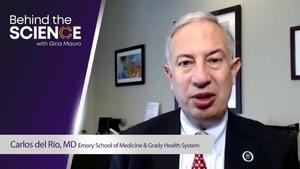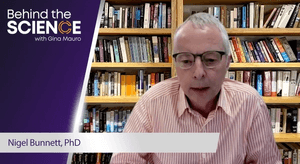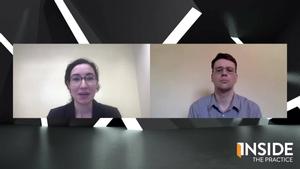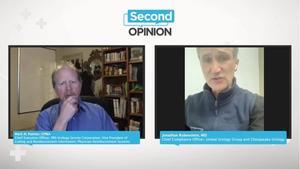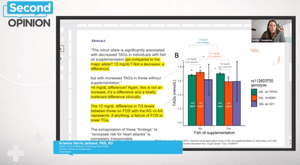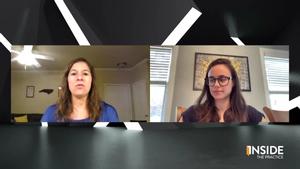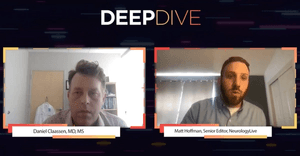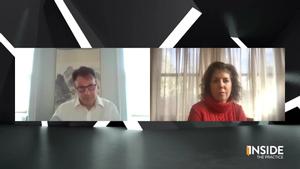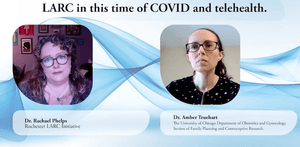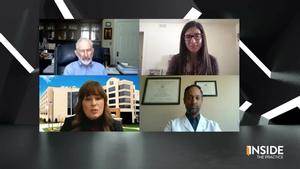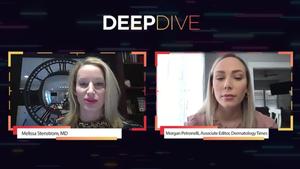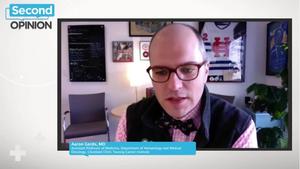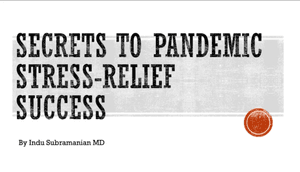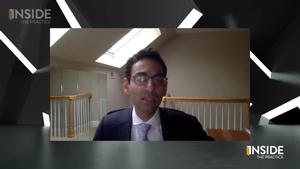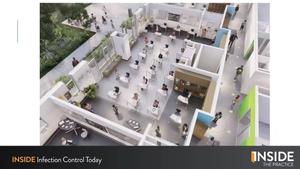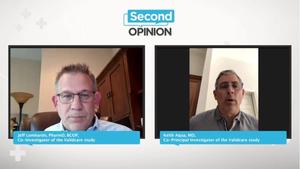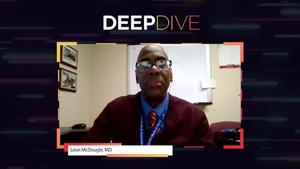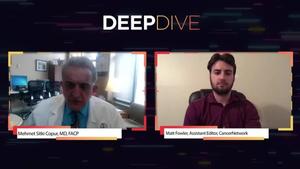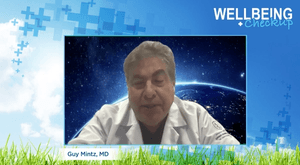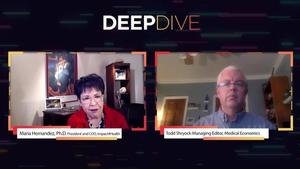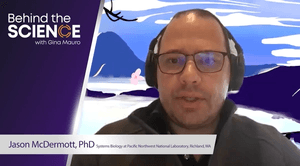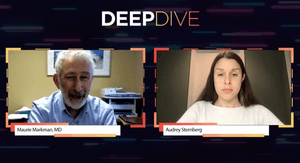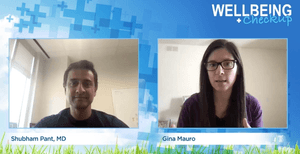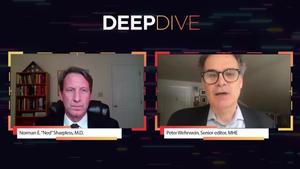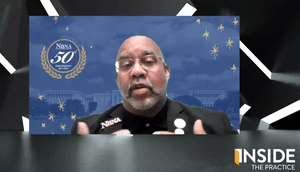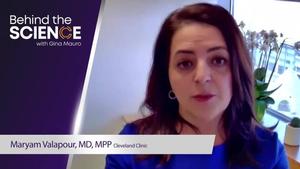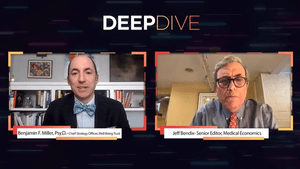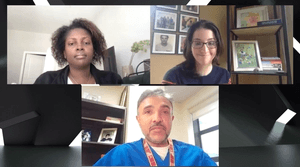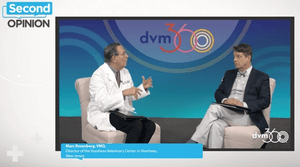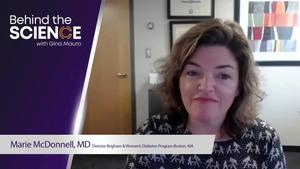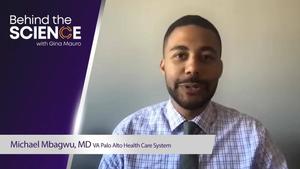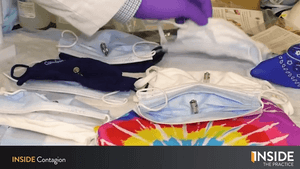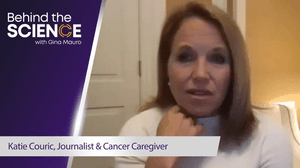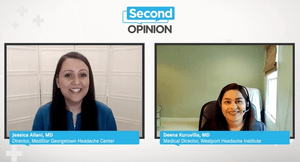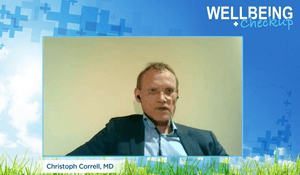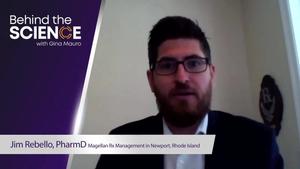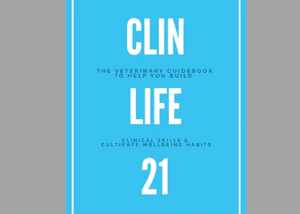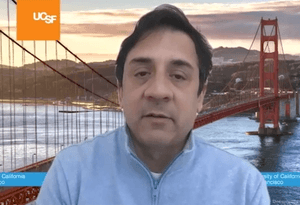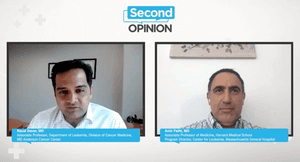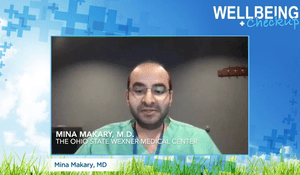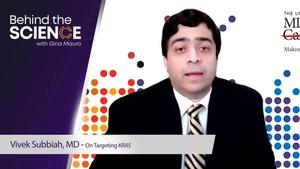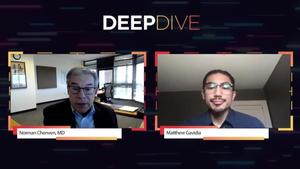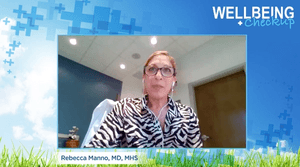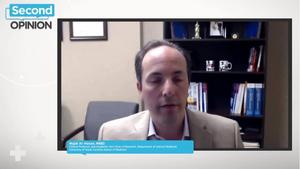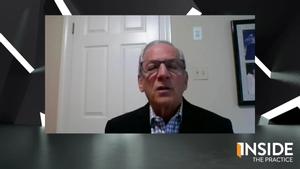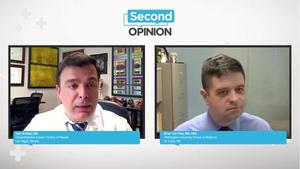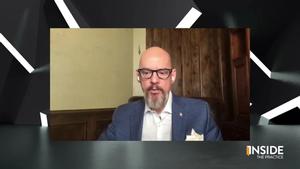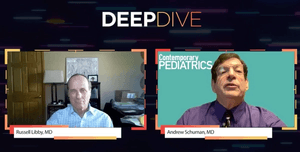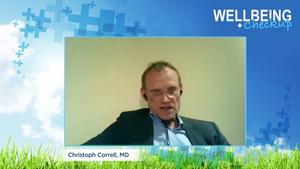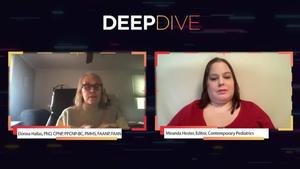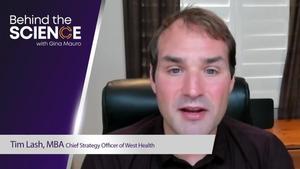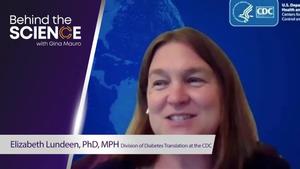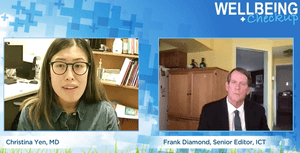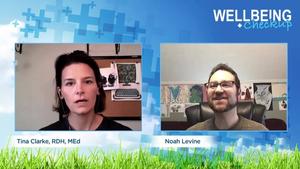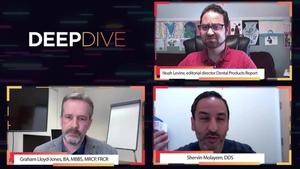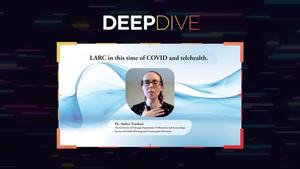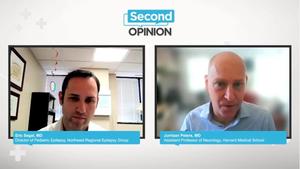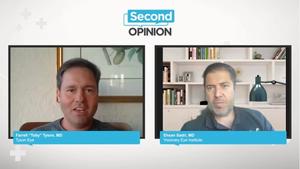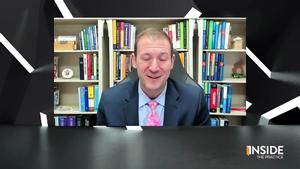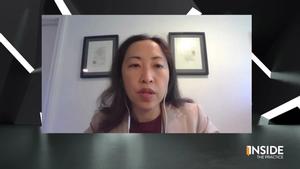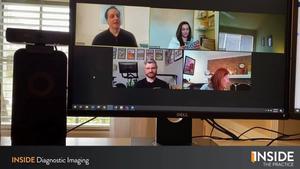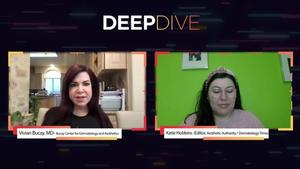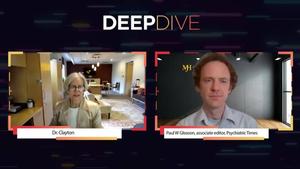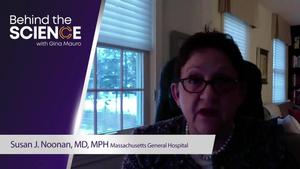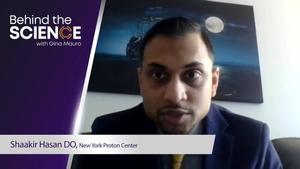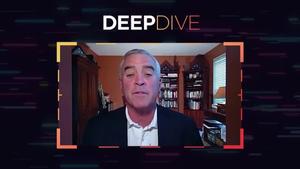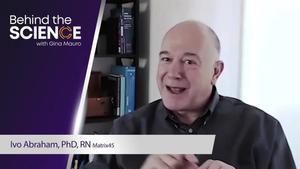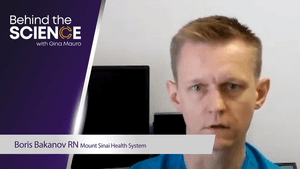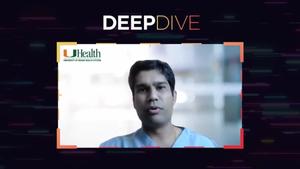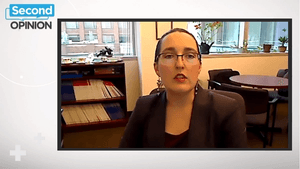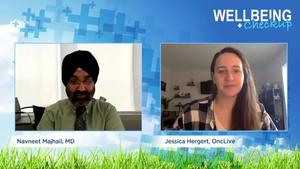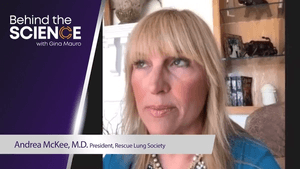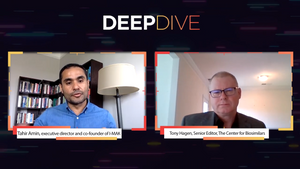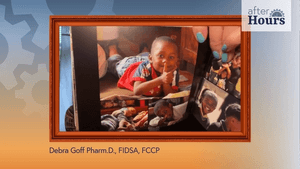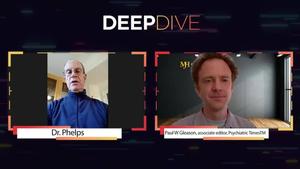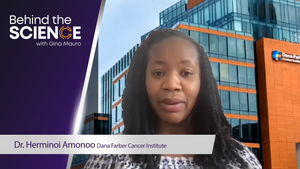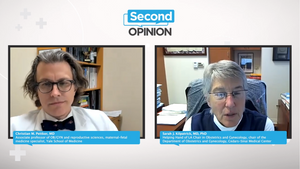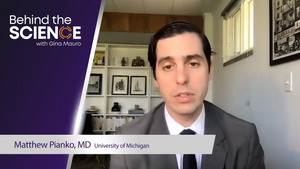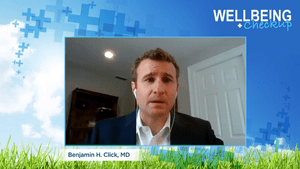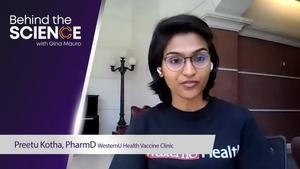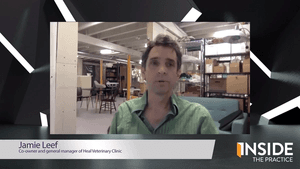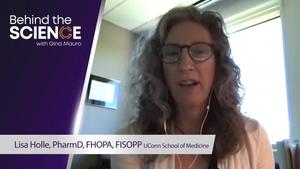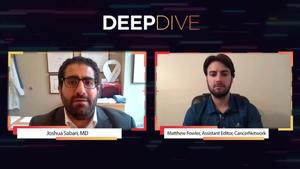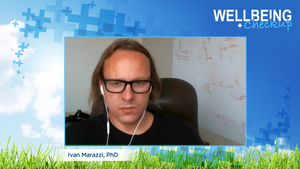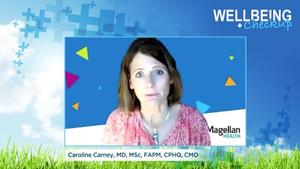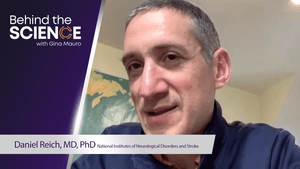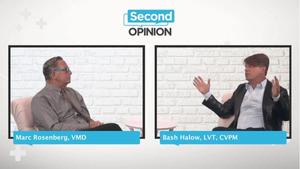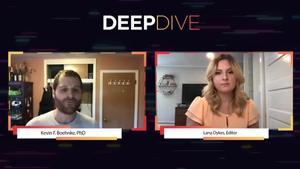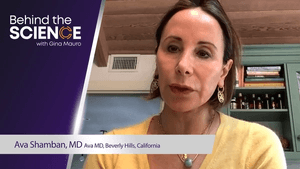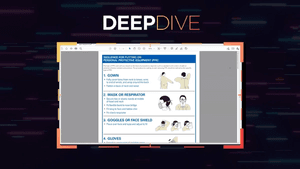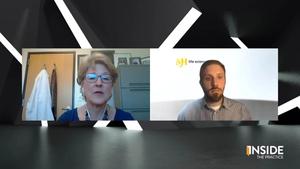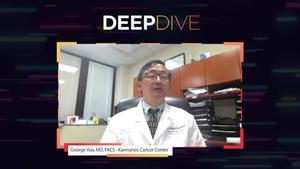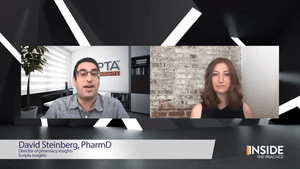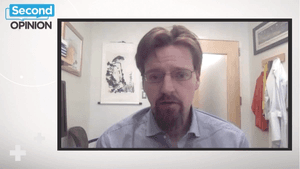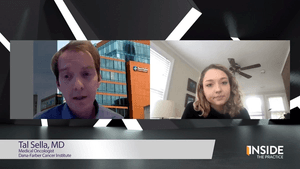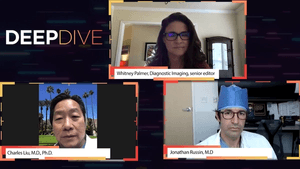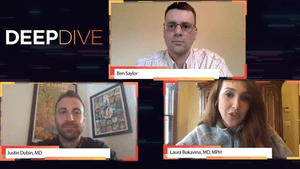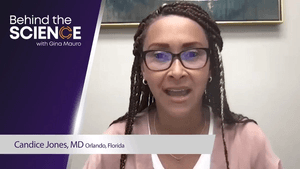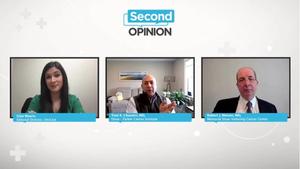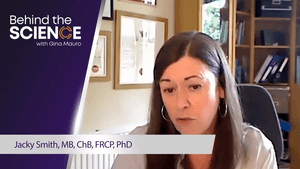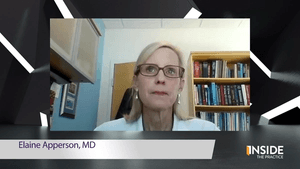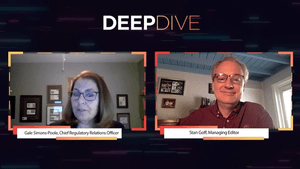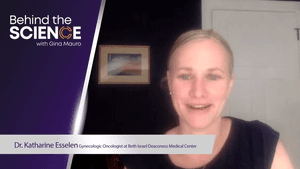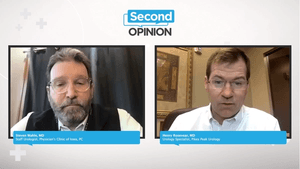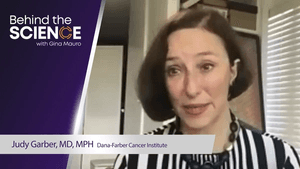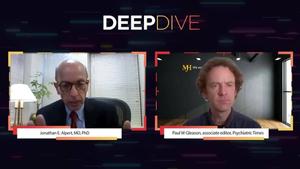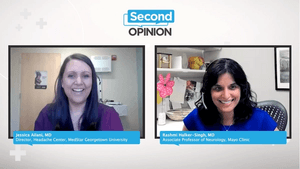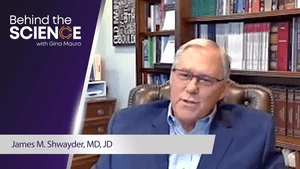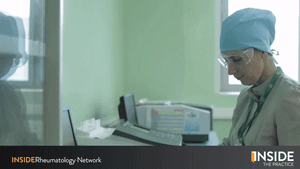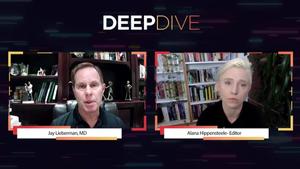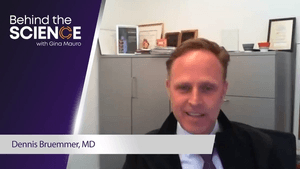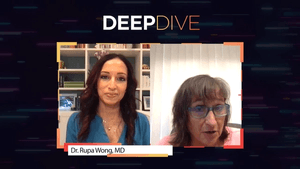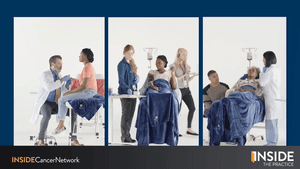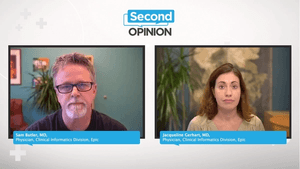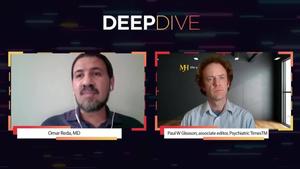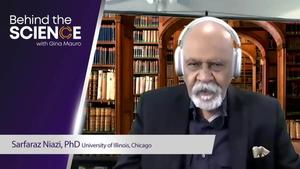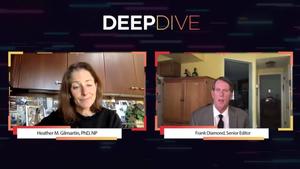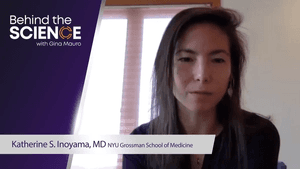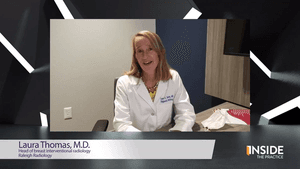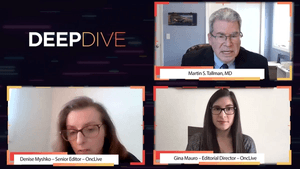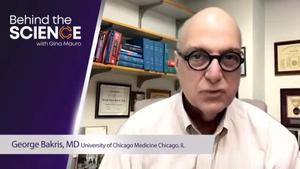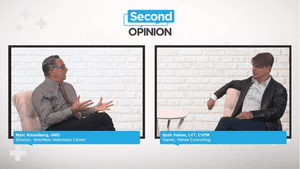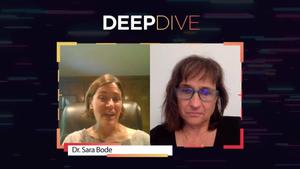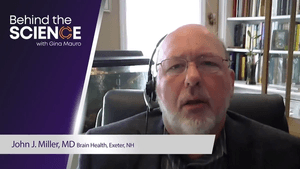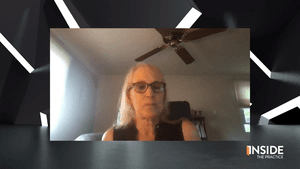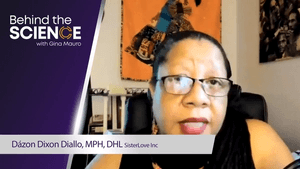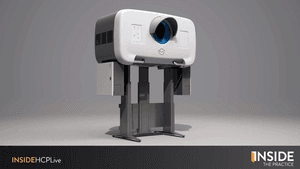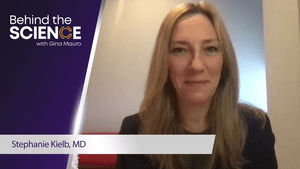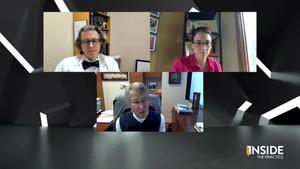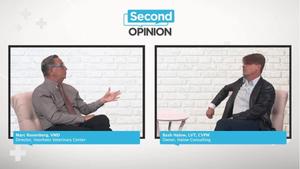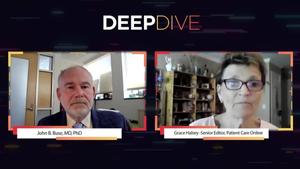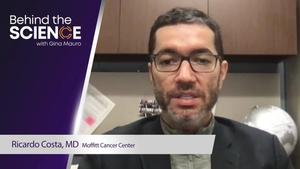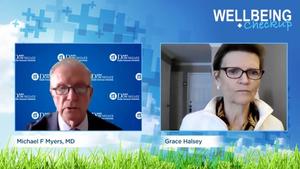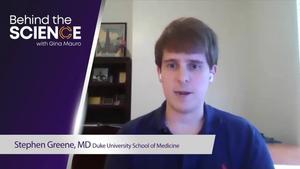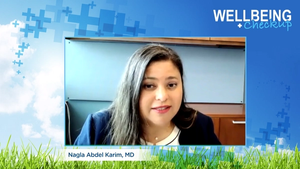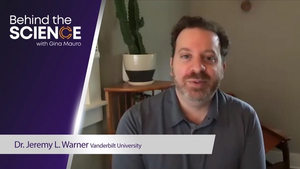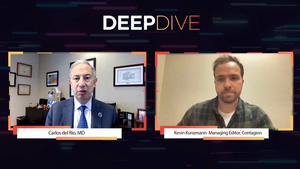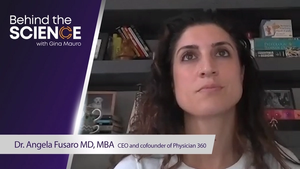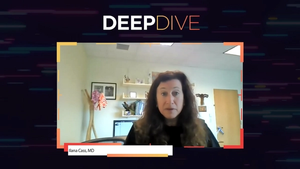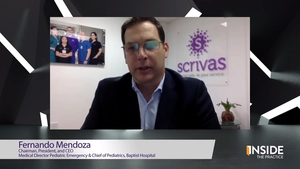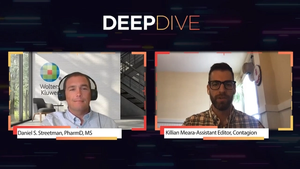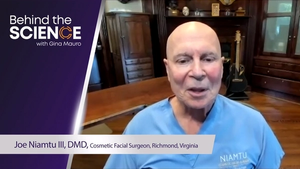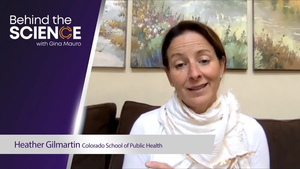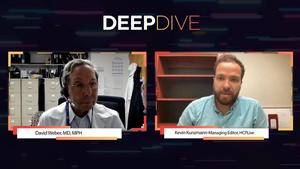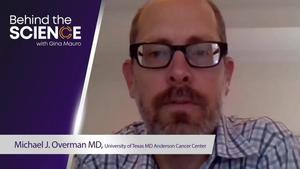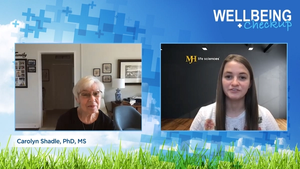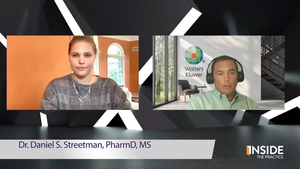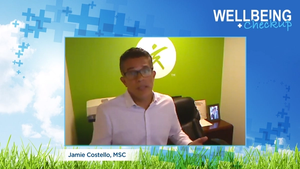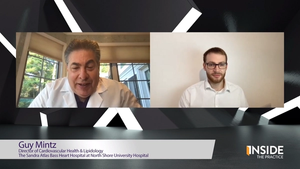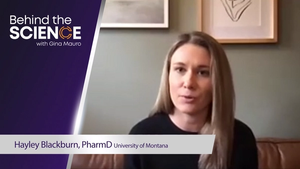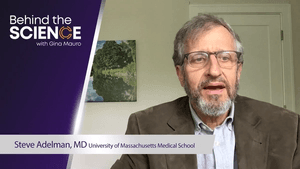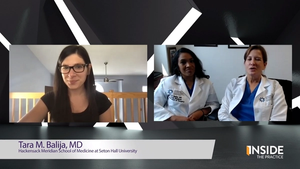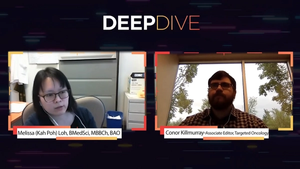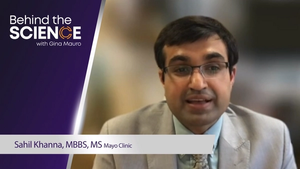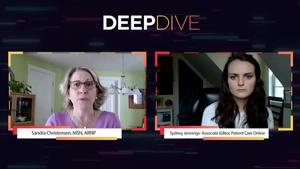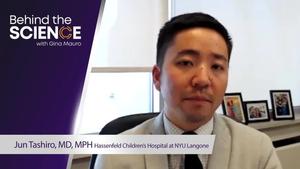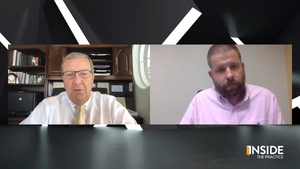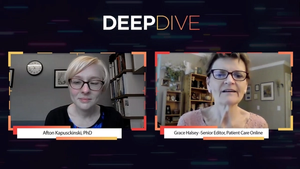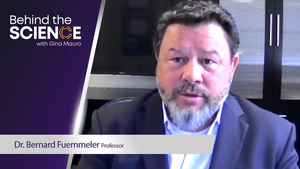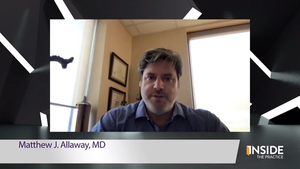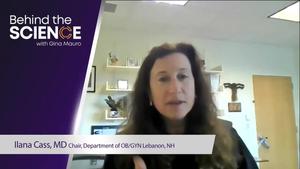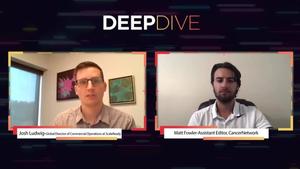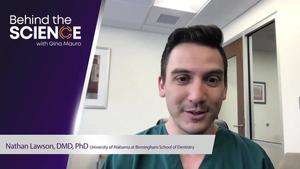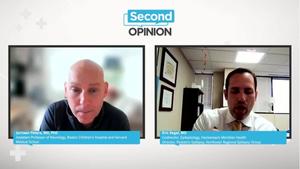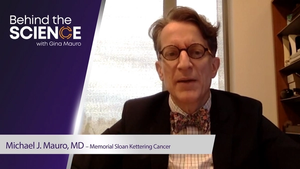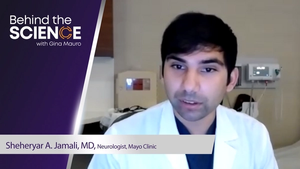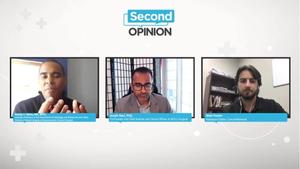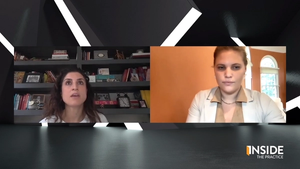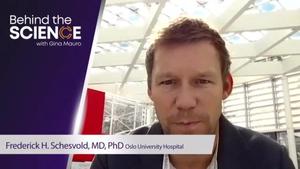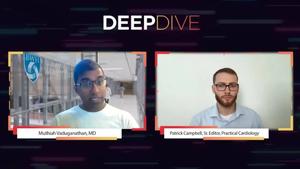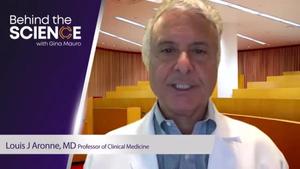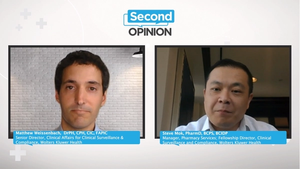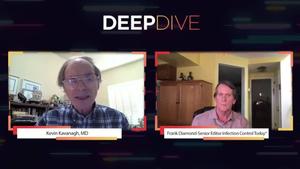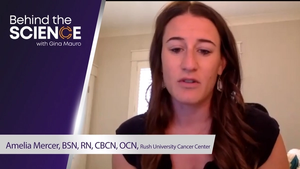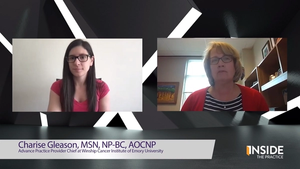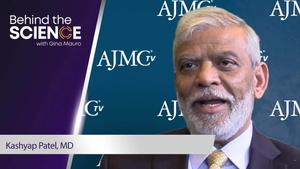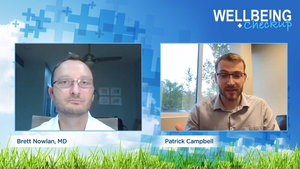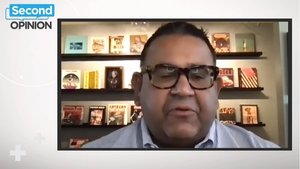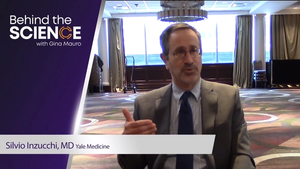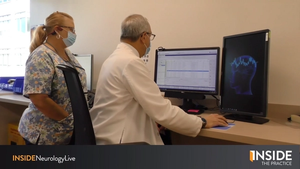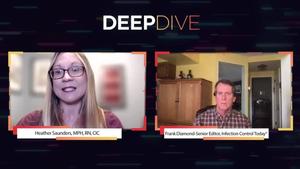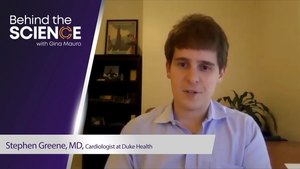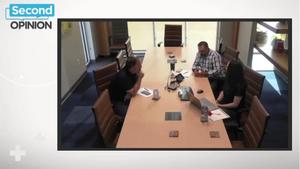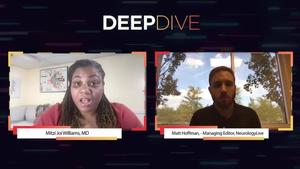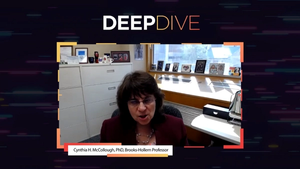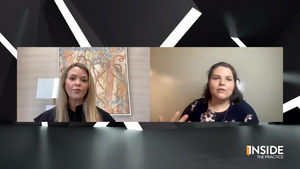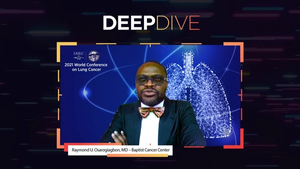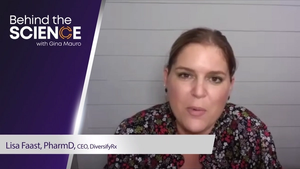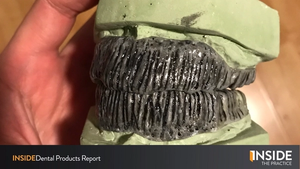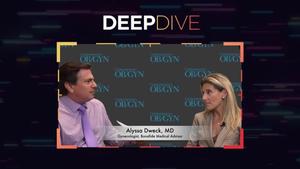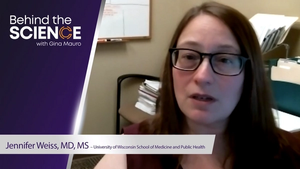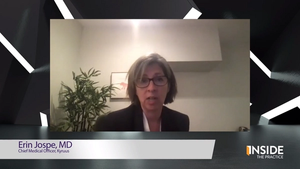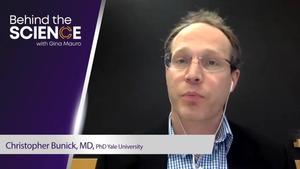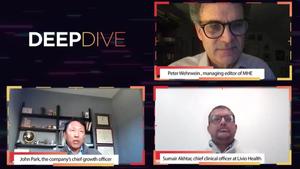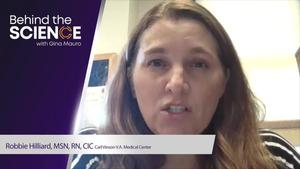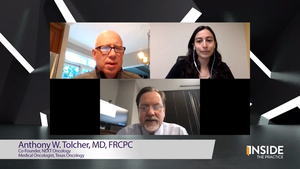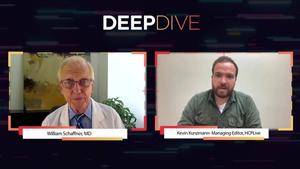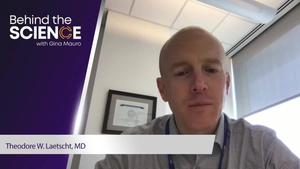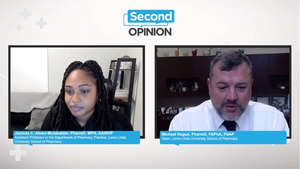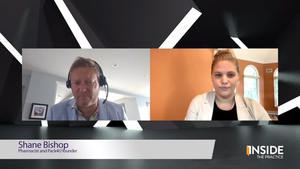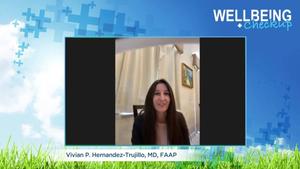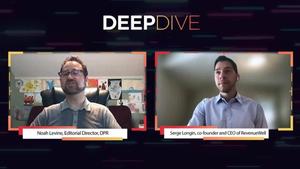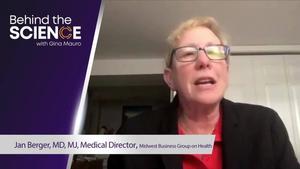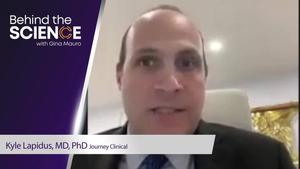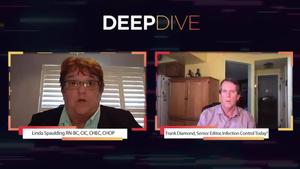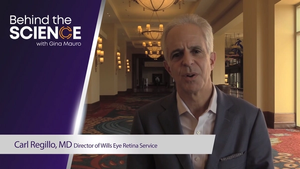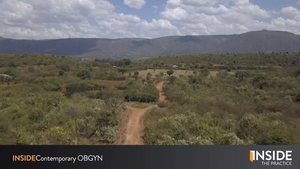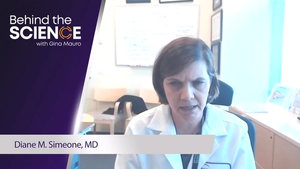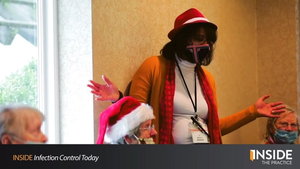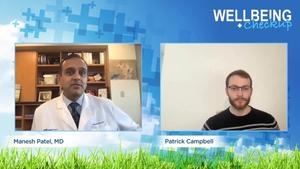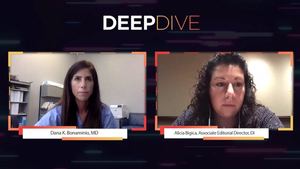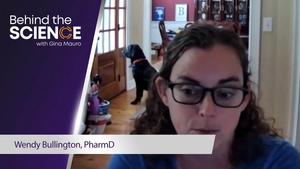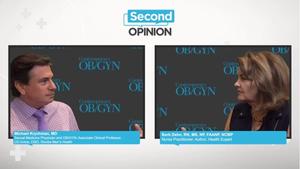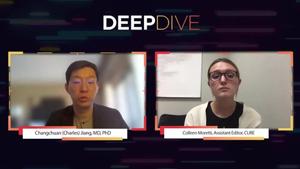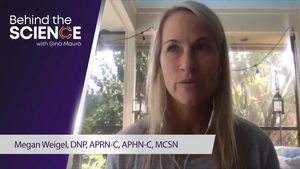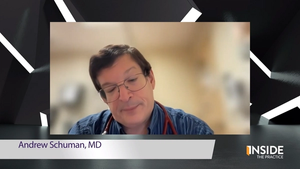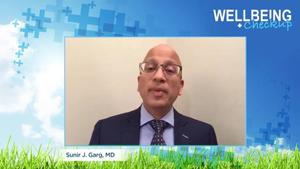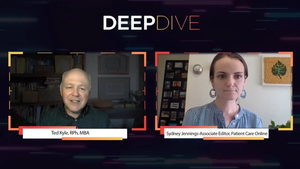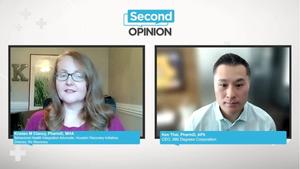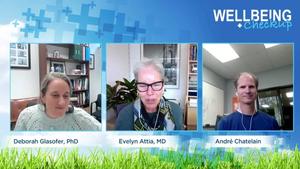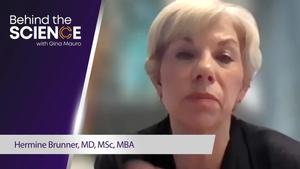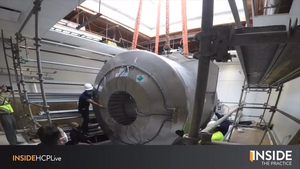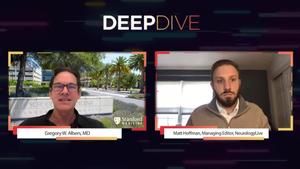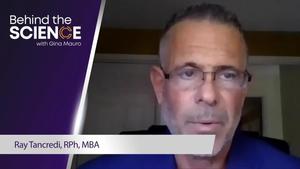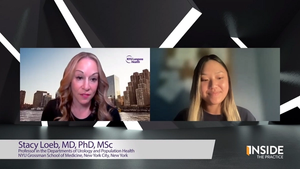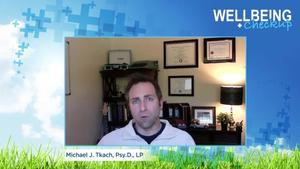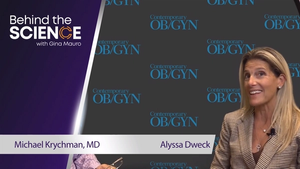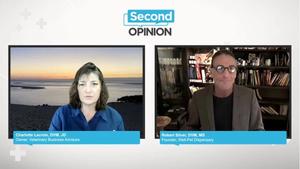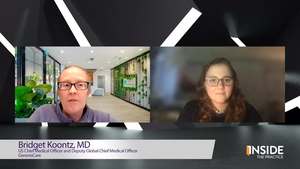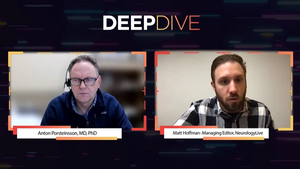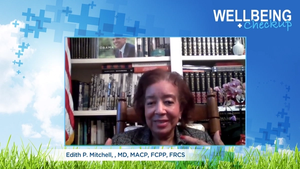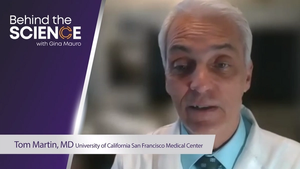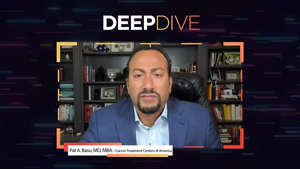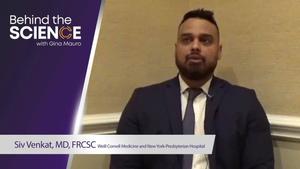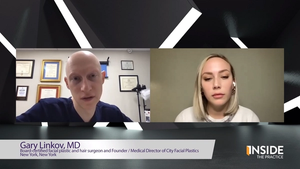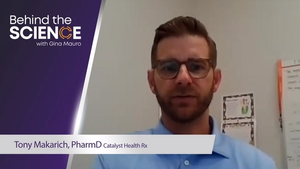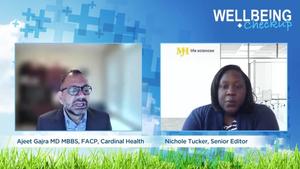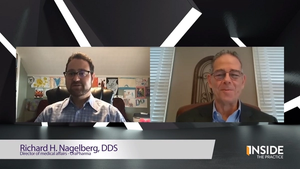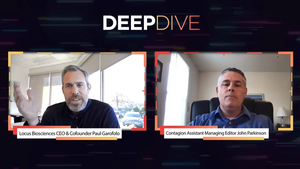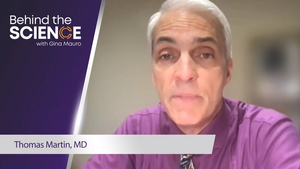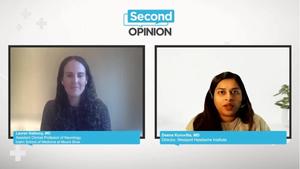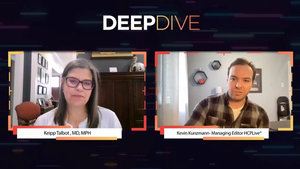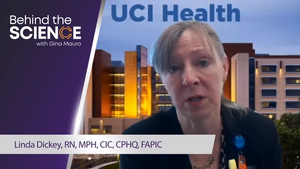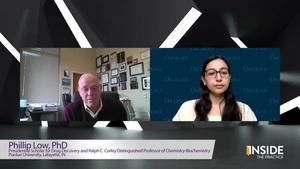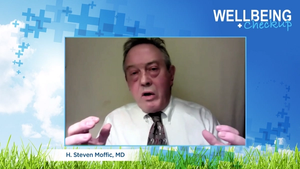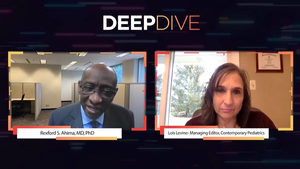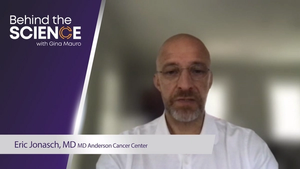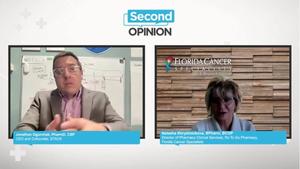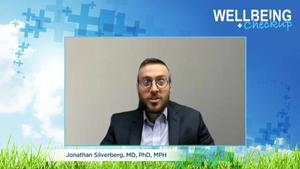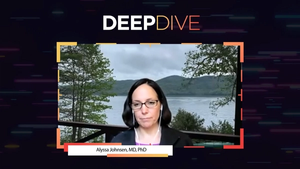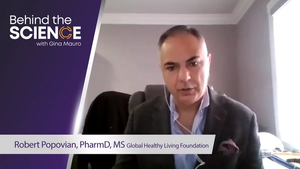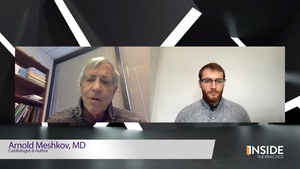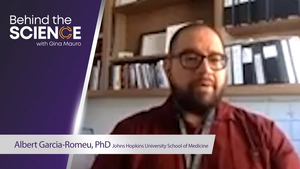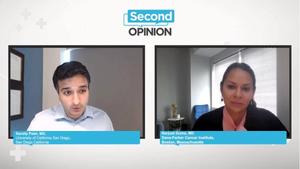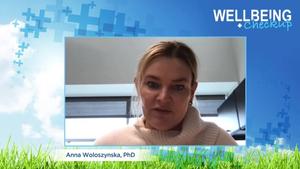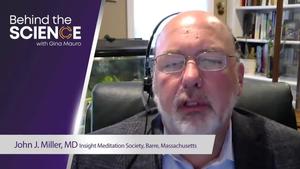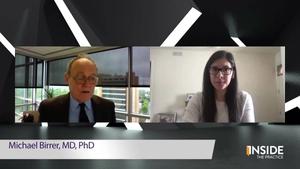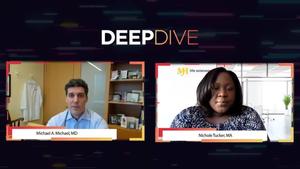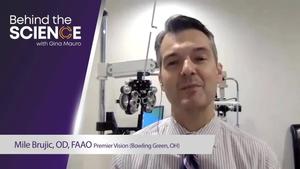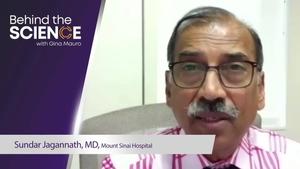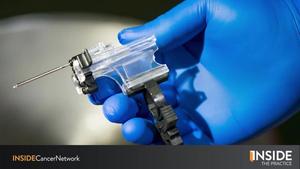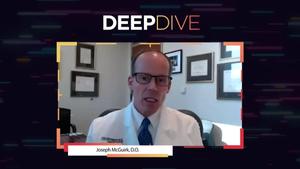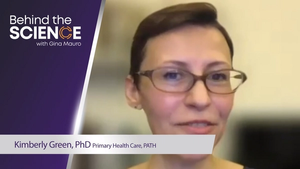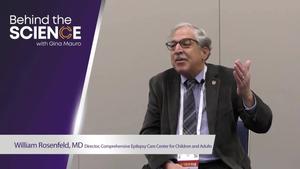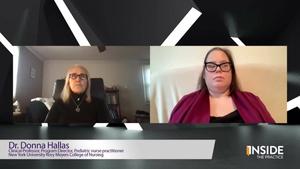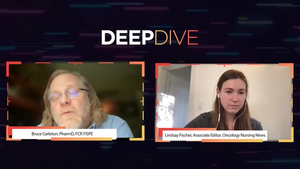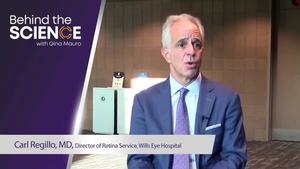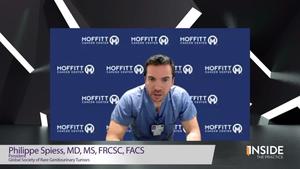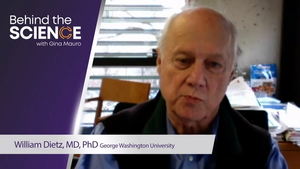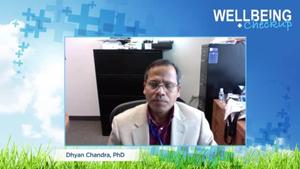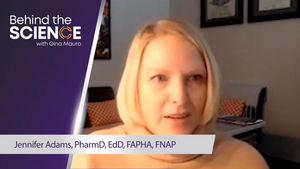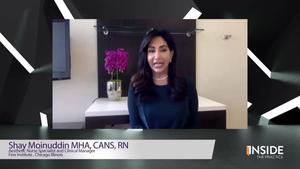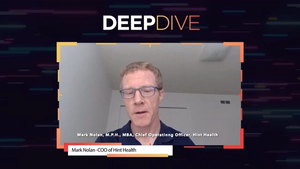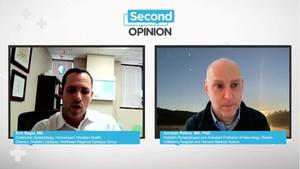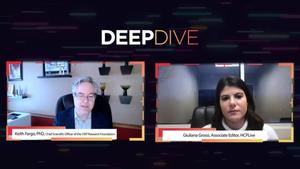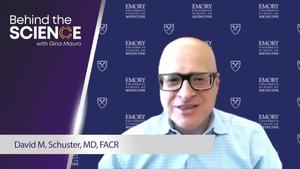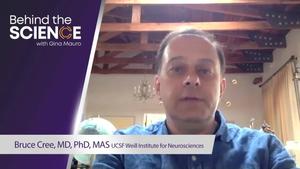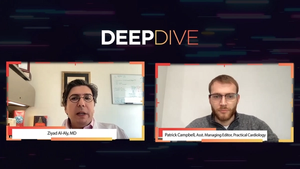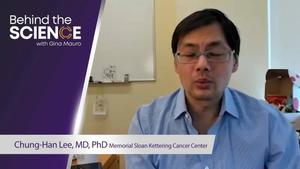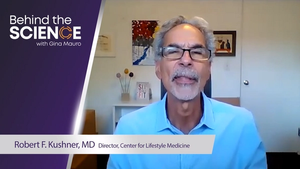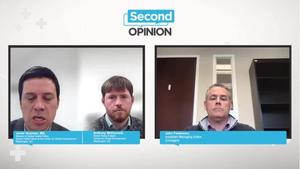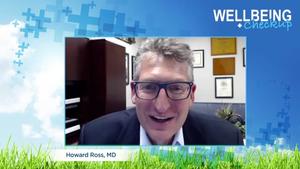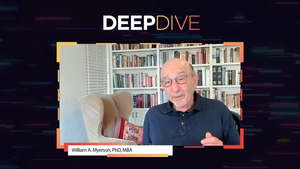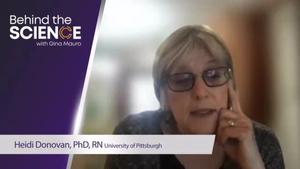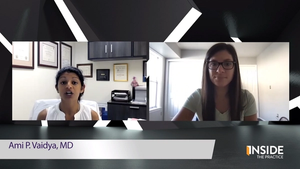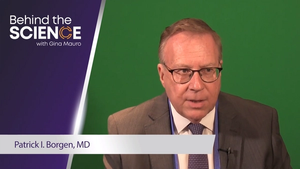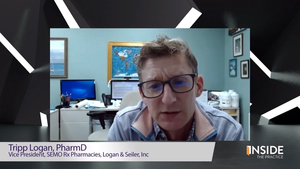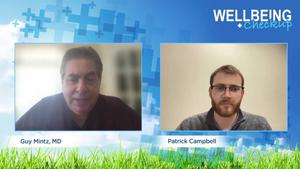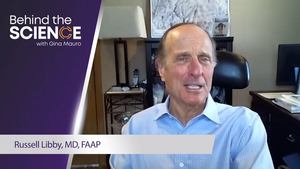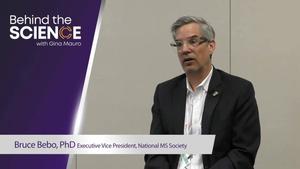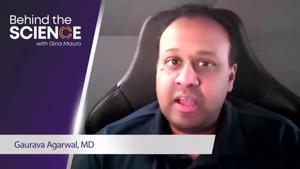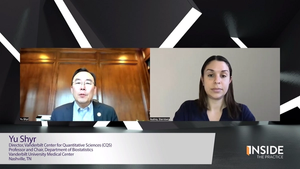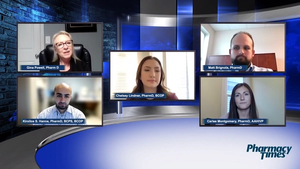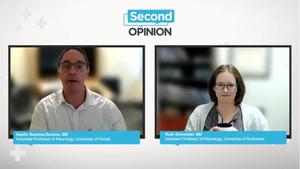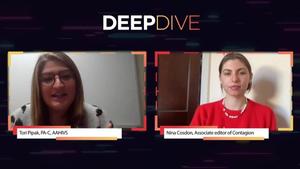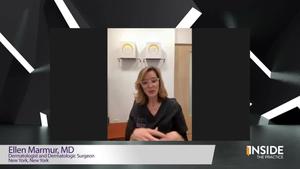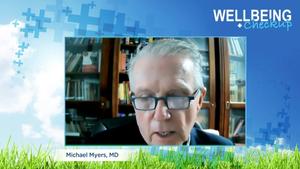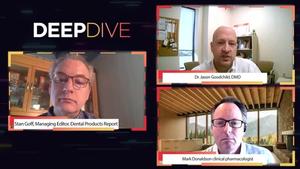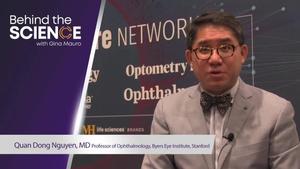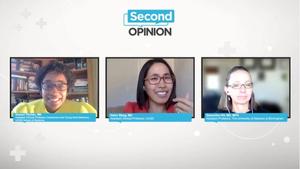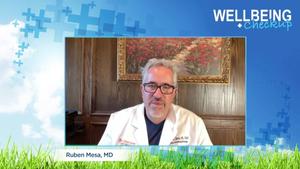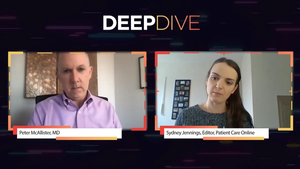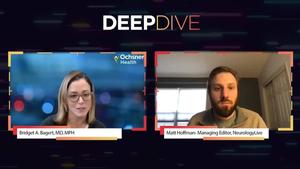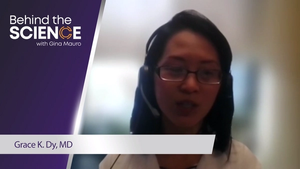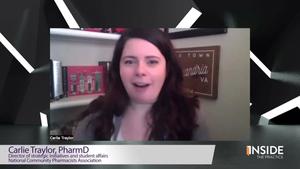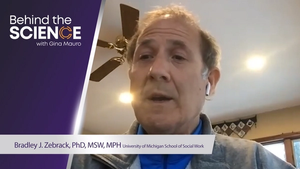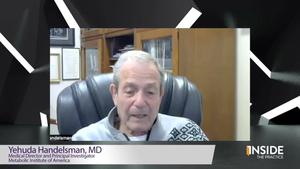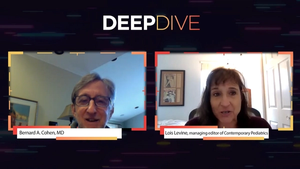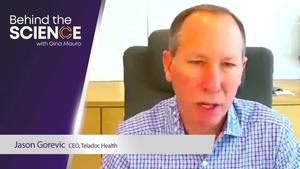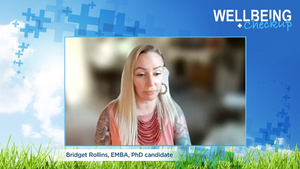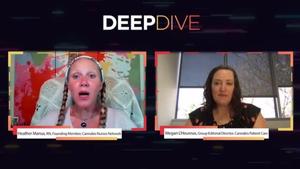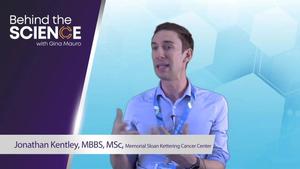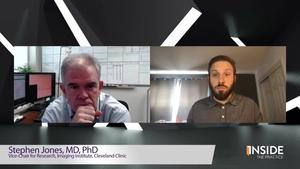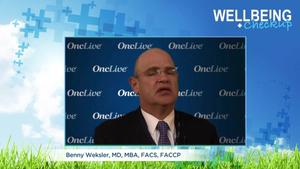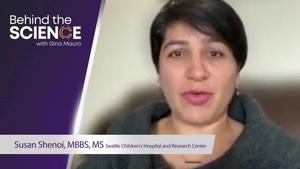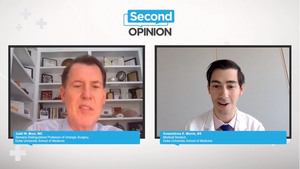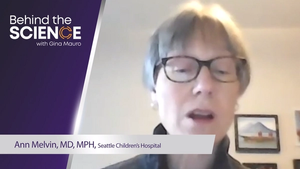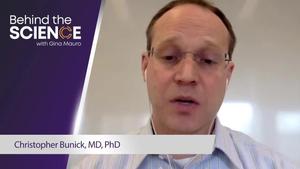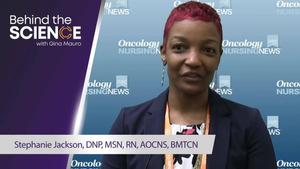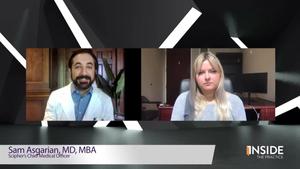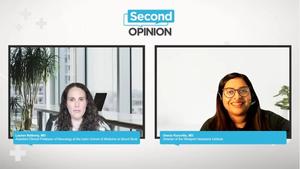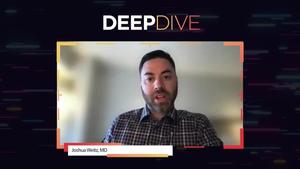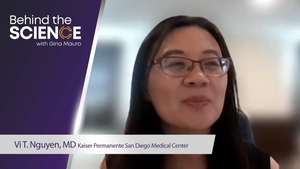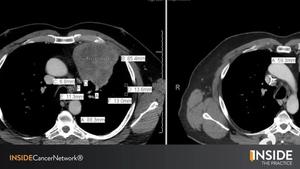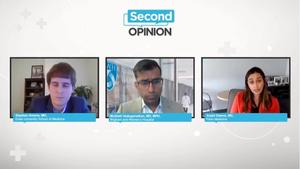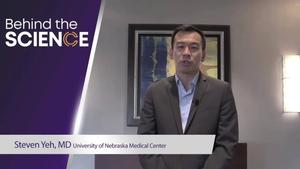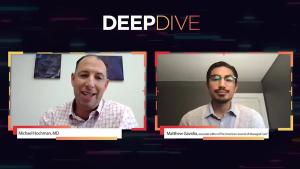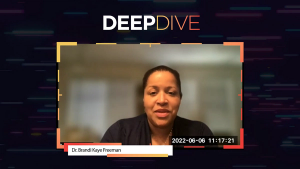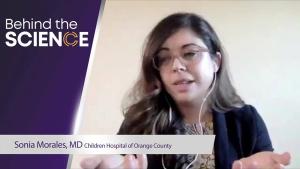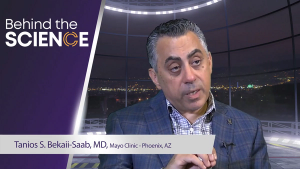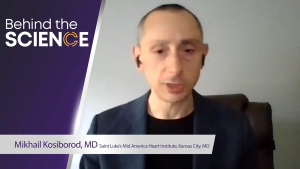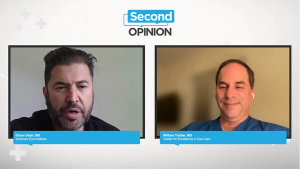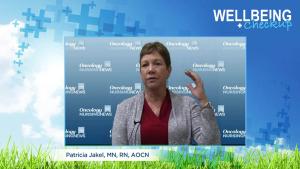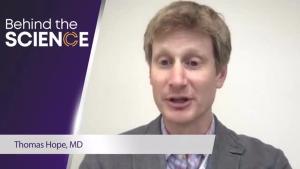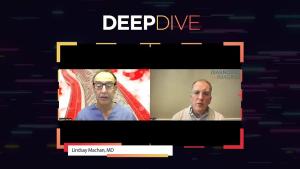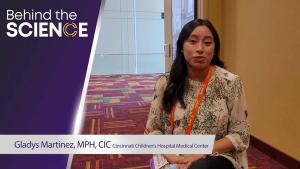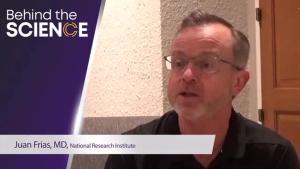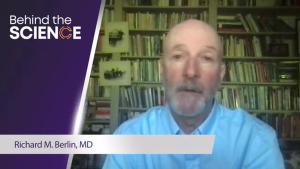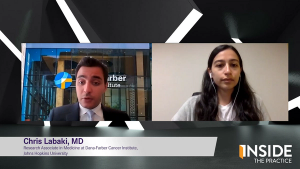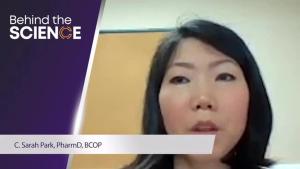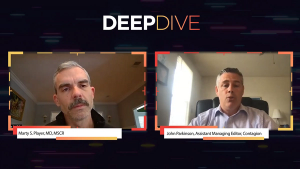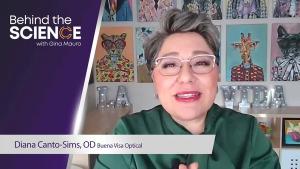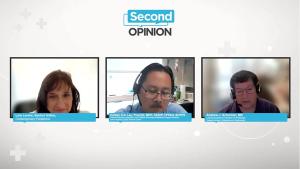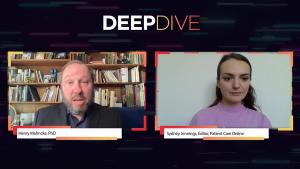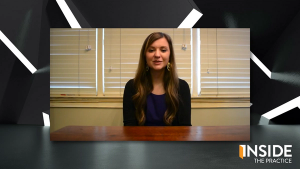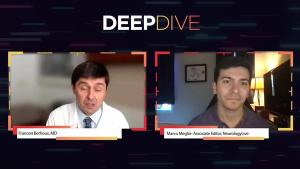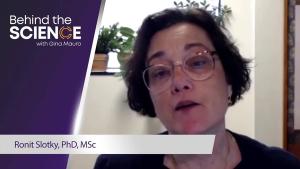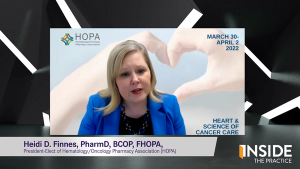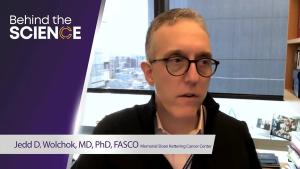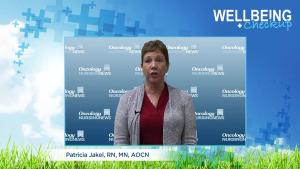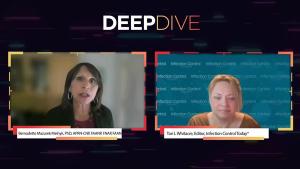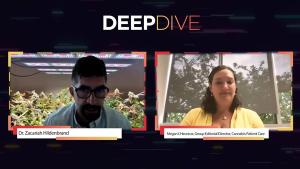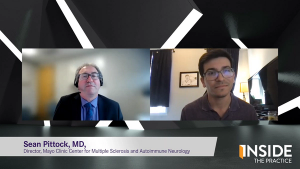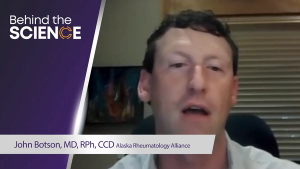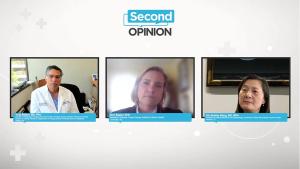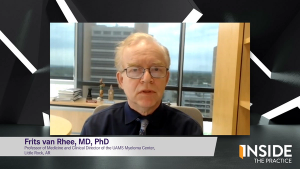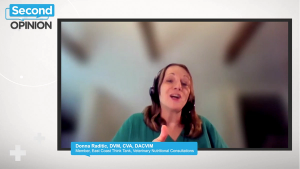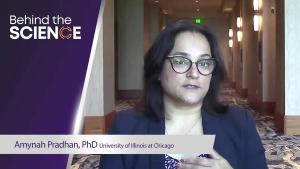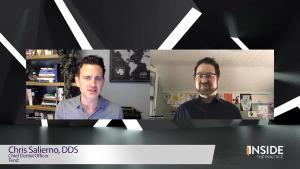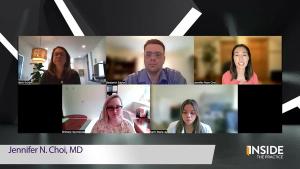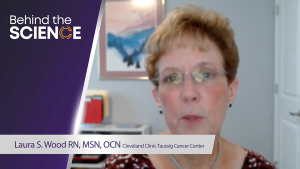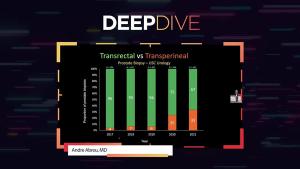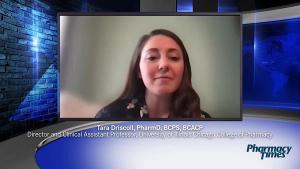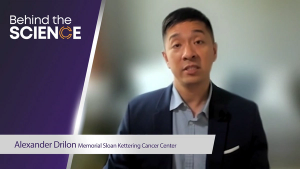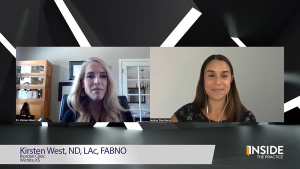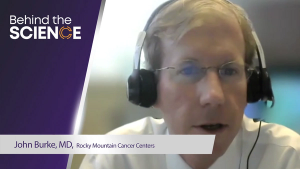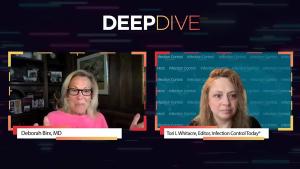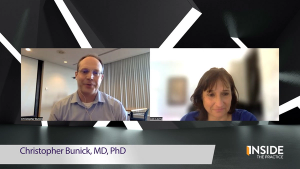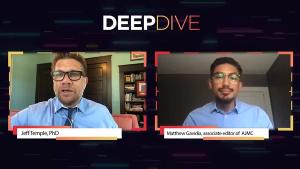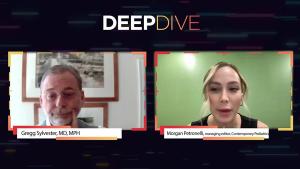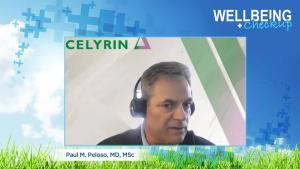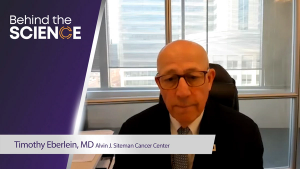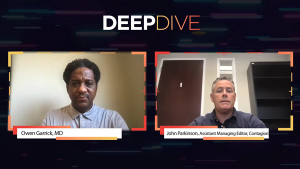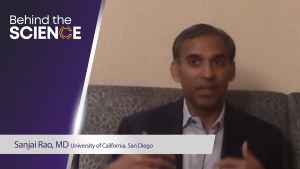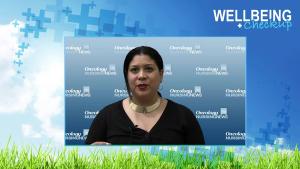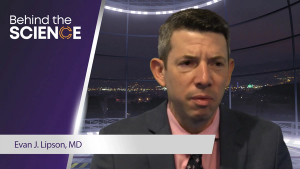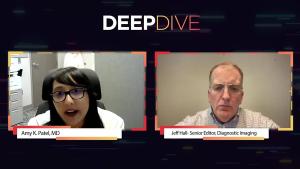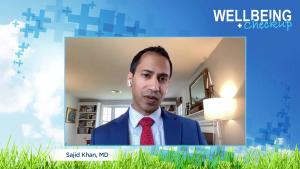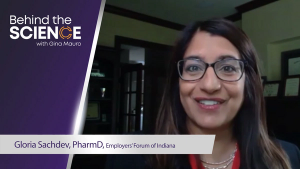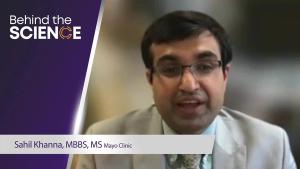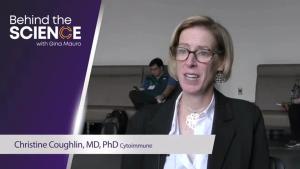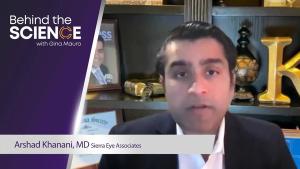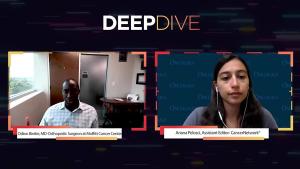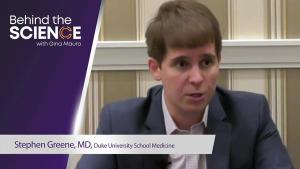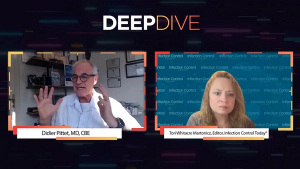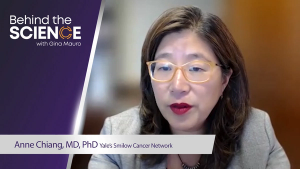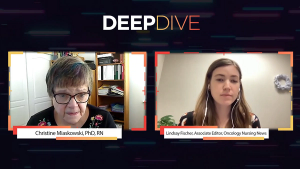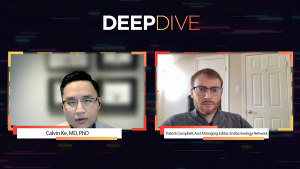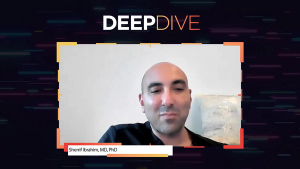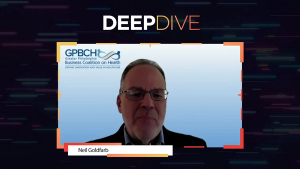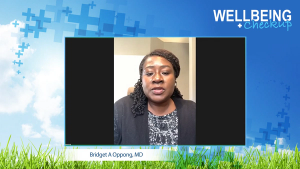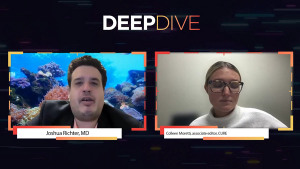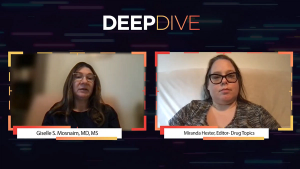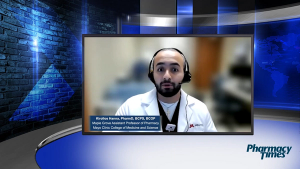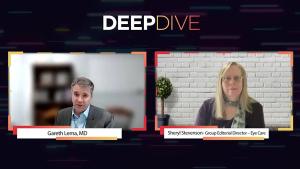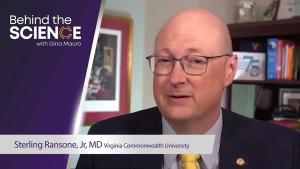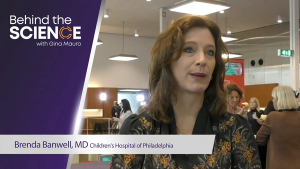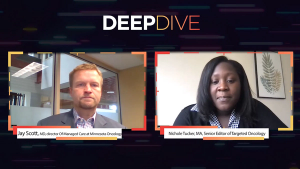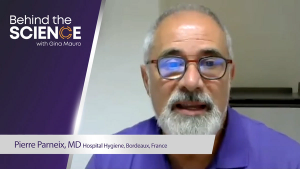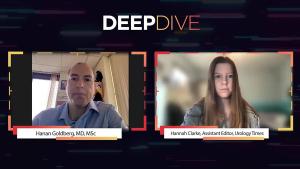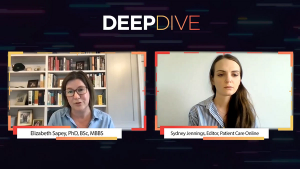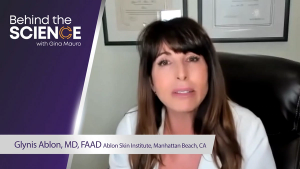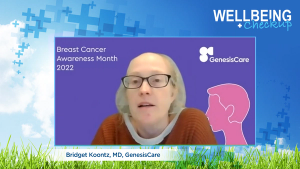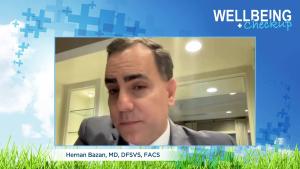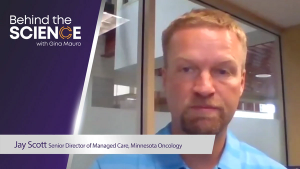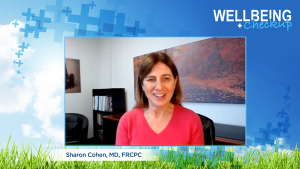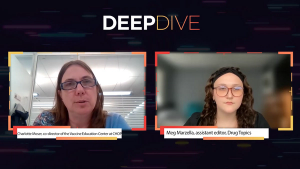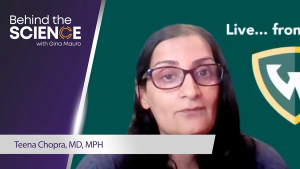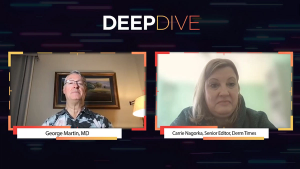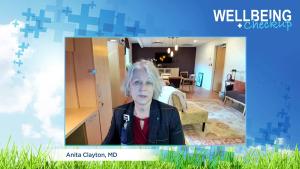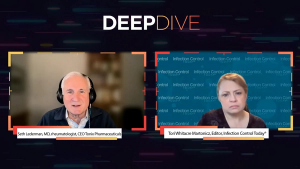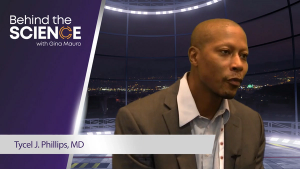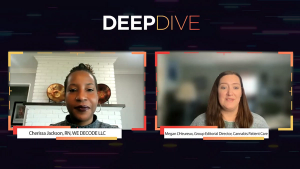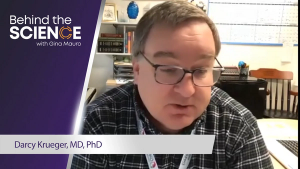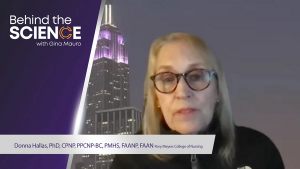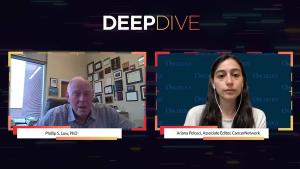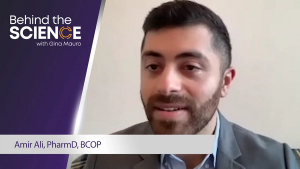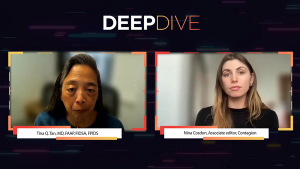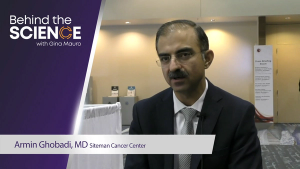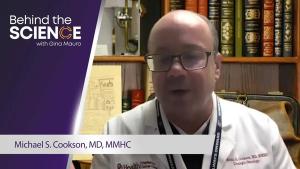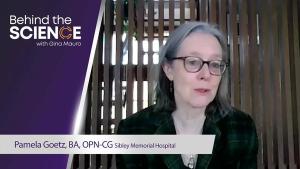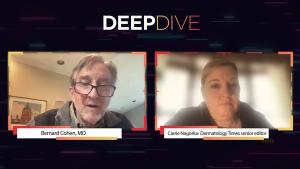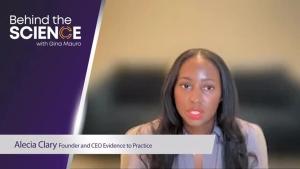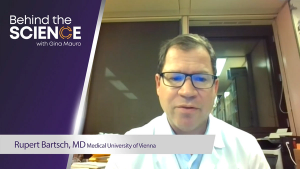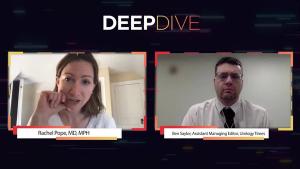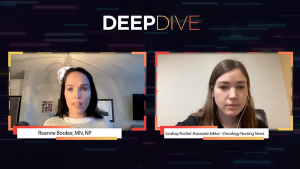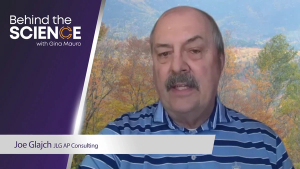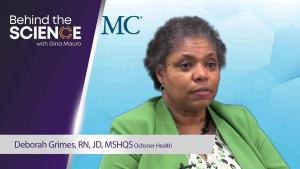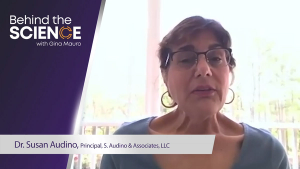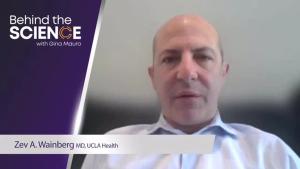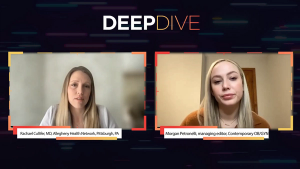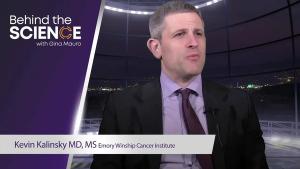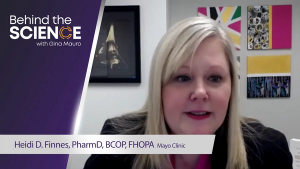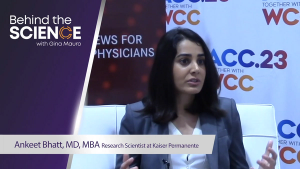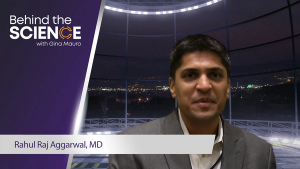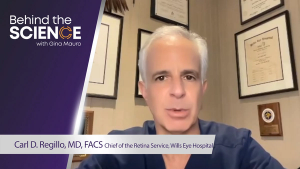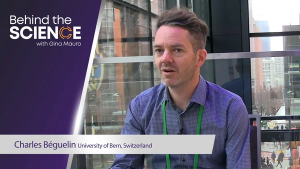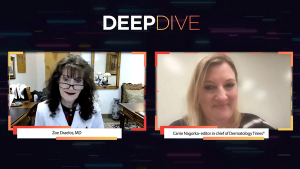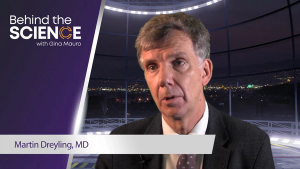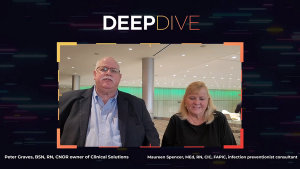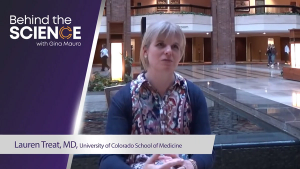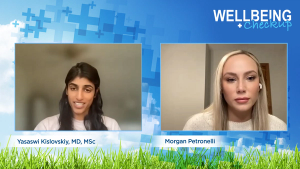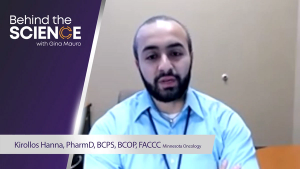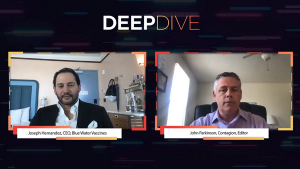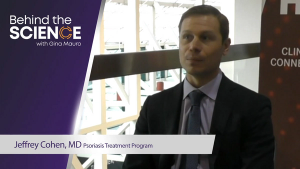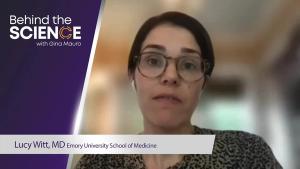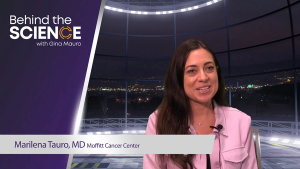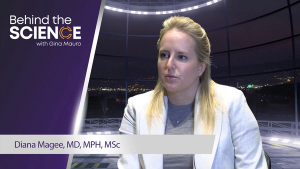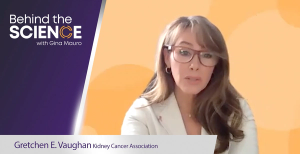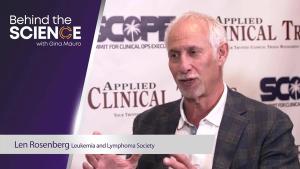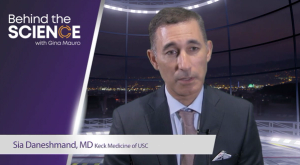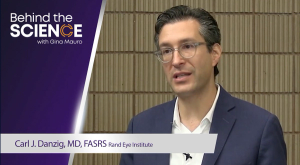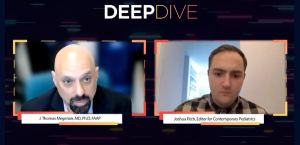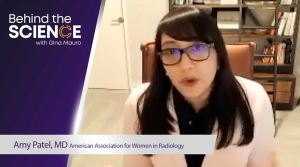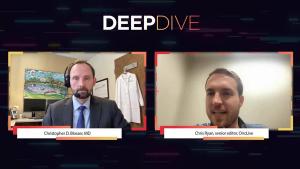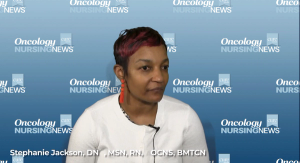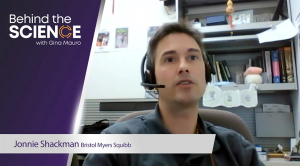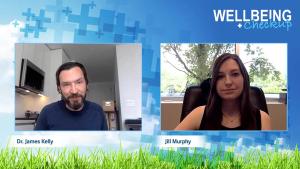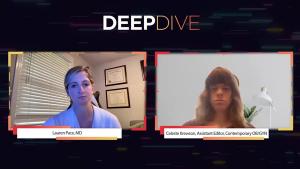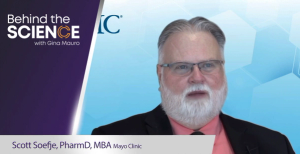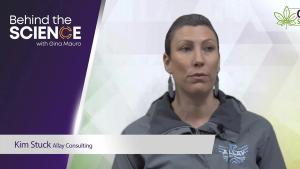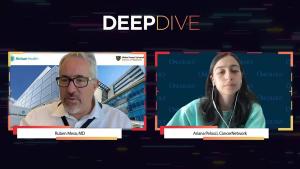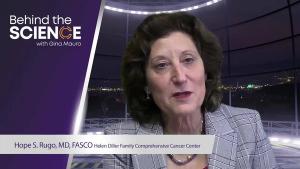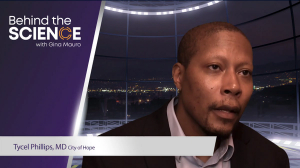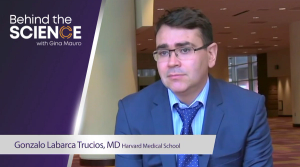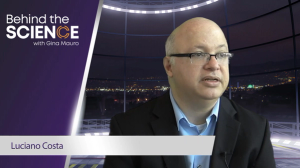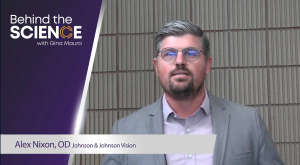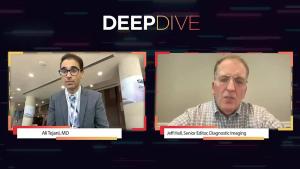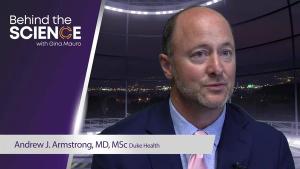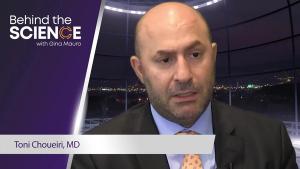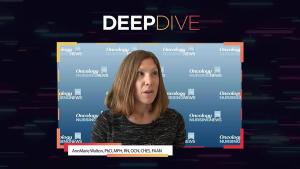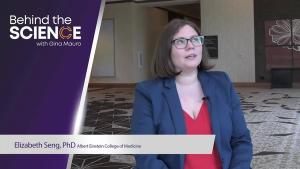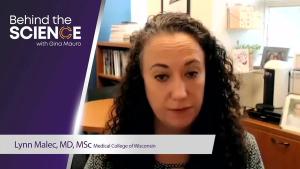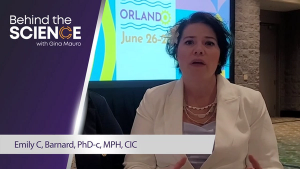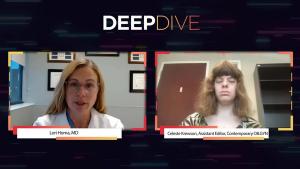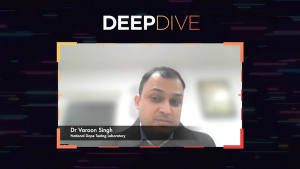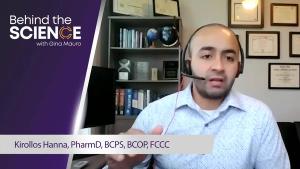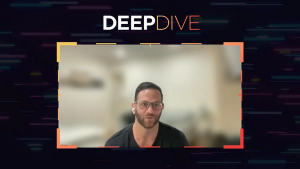Clinical
Inside the Practice: Inside Shared Decision-Making
Dr. Giulia I. Lane joins Inside the Practice to discuss the recent Urology Practice paper “Patient Reported Shared Decision Making in Urology from the Surgical Consumer Assessment of Healthcare Providers and Systems (CAHPS) Survey,” for which she served as first author.
Deep Dive: Deep Dive Into LARC in the Time of COVID and Telehealth
Dr. Rachel Phelps and Dr. Amber Truehart join Deep Dive to discuss the impact of COVID-19 on contraceptive care. They also talk about the role of telehealth and in-person visits to help patients with this important part of their healthcare during this difficult time.
Deep Dive: Deep Dive Into Skin Cancer Screenings
Dr. Melissa Stenstrom joins Deep Dive to discuss the importance of skin cancer screenings, as well as encouraging regular sun protection usage among patients. She also talks about the role of telemedicine in skin cancer screenings, her top product recommendations for sun protection and tips on managing patient expectations.
Second Opinion: Liver Effects of CBD
Dr. Jeff Lombardo and Dr. Keith Aqua, both co-investigators of the Validcare study on observing potential liver effects in adults who are using a form of hemp-derived cannabidiol (CBD) for a minimum of 60 days, join Second Opinion to highlight key insights, including what prompted the study, preliminary results, their meeting with the FDA, and what’s next.
Deep Dive: Deep Dive Into mRNA vaccines
Dr. Mehmet Sitki Copur joins Deep Dive to discuss the background, benefits, and current research regarding messenger RNA (mRNA) vaccines and how they could impact the future of cancer care. The two approved mRNA vaccines for the prevention of COVID-19 present an opportunity to learn more about the potential applications of mRNA vaccines for cancer immunotherapy moving forward.
Inside the Practice: Inside Chest Pain
From heartburn to heart attack, chest pain is linked to a host of medical conditions ranging from mild to potentially deadly. Dr. Timothy Henry joins Inside the Practice to discuss everything you need to know about chest pain, including how to determine when a patient needs to seek emergency care.
Deep Dive: Deep Dive Into 2020's Cancer Diagnosis Decline
Dr. Norman Sharpless, head of the National Cancer Institute, joins Deep Dive to discuss the 50% decline in U.S. cancer diagnoses in 2020 after the COVID-19 pandemic hit the country. He also discusses what the abrupt decline might mean for future diagnoses and how that could affect treatment.
Deep Dive: Deep Dive Into the American Society for Clinical Oncology
Dr. Julie Gralow joins Deep Dive to discuss her new position as chief medical officer of the American Society for Clinical Oncology (ASCO). Dr. Gralow speaks about her goals and vision for ASCO and provides updates on ASCO’s TAPUR trial in oncology.
Deep Dive: Deep Dive into Pandemic Mental Health Issues
Dr. Benjamin Miller joins Deep Dive to discuss how only 1 in 3 primary care practices in the United States have a mental health expert on staff, compared to 90% of in other parts of the world. As more primary care physicians get tapped to distribute COVID-19 vaccines, Dr. Miller talks about how the United States is failing to address the growing mental health epidemic within the pandemic.
Inside the Practice: Inside Rheumatoid Arthritis
While people with rheumatoid arthritis may be tempted to avoid exercise, it can actually help strengthen their muscles and increase flexibility. Jack March, a physiotherapist specializing in rheumatoid arthritis, joins Inside the Practice to explain the key benefits of exercise for managing the condition and demonstrates some crucial exercises for wellbeing.
Deep Dive: Deep Dive Into New Prescription Laws
Dr. Charles Lee joins Deep Dive to discuss the importance of a new law in Oregon that requires pharmacies to print prescription labels in multiple languages. Dr. Lee talks about how patients with limited english proficiency are more likely to make mistakes on medication dosing.
Inside the Practice: Inside Colorectal Cancer Screenings
Ronald Brooks, Senior Medical Director at Independence Blue Cross in Philadelphia, joins Inside the Practice to discuss Go to Know - a campaign that sets out to increase colon cancer screenings among African Americans. Ron speaks about how the campaign was conceived, what it aims to do, and the increased risks of colon cancer among African Americans.
Inside the Practice: Inside Fertility Discussions with Patients
Emily Beard, RN, OCN, CBCN, the program coordinator of breast cancer at Northside Cancer Institute in Atlanta joins Deep Dive to discuss how clinicians can speak about fertility with patients. She also stresses the importance of being engaged in nonprofits that are relevant to your specialty, and how and why clinicians can find time to be engaged.
Behind the Science: Behind Health Care Cost and Coverage
With issues surrounding health care cost and coverage being further exacerbated amid the COVID-19 pandemic, a recent survey by Kaiser Family Foundation and the Purchaser Business Group on Health indicates that a majority of executive decision-makers at large employers would support greater government intervention to address these concerns.
Behind the Science: Behind Cardiometabolic and Diabetes Crossover in Ophthalmology
A panel of experts joins Behind the Science to discuss the rising prevalence of diabetes in the US population—one which is also aging toward greater diabetes-driven vision impairment risks including diabetic retinopathy and diabetic macular edema—has physicians wondering why there’s not more collaboration between ophthalmology and diabetes specialists who are often treating the same patients.
Second Opinion: EPISTOP's Impact on Clinical Care
Dr. Eric Segal and Dr. Jurriaan Peters discuss the recently published EPISTOP trial in tuberous sclerosis complex, including its strengths and weaknesses, its implications for clinical practice, and how they approach patient management for this rare epilepsy.
After Hours: Cooking Oncologist
Dr. Inga Lennes joins After Hours to talk about her love of cooking and healthy eating. Dr. Lennes posts her dishes on her Instagram @IngaKitchen. She says cooking offers her an opportunity to shift gears after a long day at work as well as provide nourishing food for her family, making this a hobby that’s easy to stick to. She also shared some words of wisdom about staying on track with healthy eating and having motivation to cook meals on a busy schedule.
Inside the Practice: Inside the Brain Tumor Center at Siteman
Dr. Albert H. Kim joins Inside the Practice to discuss the Brain Tumor Center at Siteman Cancer Center. The center will bring together multidisciplinary specialists in neurosurgery, medicine, radiation oncology, pathology, immunology, otolaryngology, and endocrinology to conduct cutting-edge research.
Behind the Science: Behind Oncology Struggles
Oncologists and other cancer health care providers join Behind the Science to discuss the greatest challenges they face in their day-to-day work. From losing patients to the difficulty of translating data from bench to bedside, they touch on a range of topics.
Inside the Practice: Inside Maximizing Office Relationships
The importance of a good relationship between dentists and their office managers and the impact this relationship can have on a practice’s success, not just from a financial aspect but also in terms of patient care and employee morale. Two leaders in the field of office management, Heather Colicchio & Lorie Streeter, offer advice and experiences from several dental practices, and they share some ways to maximize this relationship.
Behind the Science: Behind WesternU's Vaccination Clinic
Dr. White and Dr. Kotha go over the ins and outs of the WesternU Vaccination Clinic, specifically the adjustments from when the clinic first opened, the science behind vaccination storage and administration, and the importance of getting a COVID-19 vaccine.
Inside the Practice: Inside Heal Veterinary Clinic's Green Initiative
Jamie Leef, co-owner and general manager of Heal Veterinary Clinic, discusses the solar electric system recently installed at Heal Veterinary Clinic among other measures the hospital has taken to go green. Leef touches on this plus how the new addition has benefited his practice, how clients have responded to the solar panels, and his advice for other clinics considering going green.
Deep Dive: Deep Dive Into Biosynthesized Psychedelic Drugs
Dennis O'Neill discusses the treatment potential for biosynthesized psychedelic drugs for anxiety, depression, alcoholism, and terminal illness, and how BioMediCan is changing the game by sustainably and reliably synthesizing higher-quality psychedelics in large volumes.
Behind the Science: Behind Science & Research in MS
A panel of specialists in multiple sclerosis for their thoughts on the current state of science and research in MS in light of the impact of the COVID-19 pandemic after attending the 2021 ACTRIMS Forum, the first MS-centric society meeting of the year.
Inside the Practice: Inside Complex Drug Approaches at Children’s Hospital Colorado
Dr. Julie Parsons of Children’s Hospital Colorado discusses the unique approach that the hospital takes to managing patients with neuromuscular disease from a comprehensive standpoint, particularly highlighting their Complex Drugs Program.
Inside the Practice: Inside Aducanumab: Key Insights for Pharmacies
David Steinberg will be reviewing the significance of this treatment and the socio-clinical benefit of aducanumab, but will focus on the drawbacks of the drug, including indecisive clinical data and key cost considerations for pharmacists and patients.
Deep Dive: Deep Dive Into Social Media for Practices
Peter Carlos and assistant Jaycee Leonardo discuss social media and the effects social media can have on practices. After gaining 1.7 million followers on TikTok, they use what they have learned through their own personal experiences with their social media to help practices grow on social media.
Deep Dive: Deep Dive Into Academia's Evolving Use of Twitter
Laura Bukavina, MD, MPH, and Justin Dubin, MD, discuss how findings of a recent peer-reviewed study point to a rise in academic urology programs’ engagement on Twitter for marketing purposes. They also discuss their own usage of social media and share advice for medical professionals using social media.
Inside the Practice: Inside a Next Generation Dialysis Device
Dr. Brandon Repko talks about how the WavelinQ EndoAVF system gives physicians a minimally invasive option for creating an AV fistula for patients who need hemodialysis to survive. Repko is part of a postmarket study called CONNECT-AV following patients treated with the device for an additional 24 months.
Second Opinion: CheckMate 9-ER Carcinoma Conversations
Upon its publication in the New England Journal of Medicine, the phase 3 CheckMate-9ER trial garnered significant attention across social media. Study authors Toni K. Choueiri, MD, and Robert J. Motzer, MD, discussed the significance of the trial and shed light on ongoing research in advanced RCC.
Deep Dive: Deep Dive Into Women's Health
Laura E. Riley, MD. Riley is chair of Obstetrics and Gynecology at Weill Cornell Medicine and Obstetrician and Gynecologist-in-Chief at New York-Presbyterian Hospital in New York City. She specializes in obstetric infectious disease and is a member of the American College of Obstetricians and Gynecologists (ACOG) COVID-19 Task Force.
Behind the Science: Behind Chronic Cough
Chronic cough is any cough that lasts more than 8 weeks. For some patients there is an underlying cause that can be treated, but for others, it does not resolve with treatment. These patients can spend months, sometimes years, visiting multiple doctors and specialists before they are diagnosed with a refractory chronic cough and provided the tools to help manage their cough.
Deep Dive: Deep Dive Into Paycheck Protection Program
Gale Simons-Poole updates us on the Paycheck Protection Program and what small business owners—including dentists and clinicians—need to know about loan forgiveness. Topics include the basics of PPP loan forgiveness, what borrowers need to qualify, common misconceptions about PPP forgiveness, and some of the most common mistakes that borrowers make when applying for PPP loan forgiveness.
Behind the Science: Behind Managing Patient Pain
Oncologists’ understanding of a patient’s pain, as well as how to respond to it, have changed over time with new research and technology. This week, CURE is sharing the best methods health care providers use to understand and manage their patients’ pain levels. They explore various topics, from the concern of the opioid epidemic to medical marijuana.
Second Opinion: When the Doctor Becomes the Patient
In this video, urologists and long-time friends Steven Wahle, MD, and Henry Rosevear, MD, compare their experiences of the health care system from the patient point of view, discuss different urology practice types, and give their thoughts on recent coding changes.
Deep Dive: Deep Dive Into Health Economics and Outcomes Research
As disparities in health care coverage and access have become spotlighted amid the COVID-19 pandemic, health economics and outcomes research (HEOR) may play a significant role in addressing gaps present in disadvantaged communities and the health care system. Dr. Amy Abernethy speaks on recent innovations within HEOR, how the FDA used data in their response to the pandemic, and the current state of the agency amid an ongoing search for a new FDA Commissioner.
Second Opinion: The Physician-Patient Relationship
Dr. Jessica Ailani and Dr. Rashmi Halker-Singh discuss a number of challenges physicians face in their day-to-day professional lives, including the situation in which patient decides that they want to switch their treating doctor, how to deal with getting a negative review from a patient, and the importance of having a support community in your professional life.
Inside the Practice: Inside Chronic Cough
There are a number of clinical trials going on to test treatments for chronic cough, but they have a big challenge: these trials all have a large placebo effect. This large placebo effect puts trials at risk of being unblinded, making it difficult to actually understand the pharmacological efficacy of the treatments being studied.
Inside the Practice: Inside New Drugs for Viral Infections
Michael Samsonov discusses the repositioning of existing drugs for newly emerged viral infections with a focus on olokizumab. We delve into the importance of repositioning existing drugs during the COVID-19 pandemic, the real-world evidence tools his team is utilizing, and future research he is planning on doing in the future to address this opportunity.
Deep Dive: Deep Dive Into Children and COVID-19
Pharmacy Times interviewed Jay Lieberman, MD, a pediatric infectious disease specialist and senior medical director of PRA Health Sciences to discuss the future of COVID-19 disease and vaccines for adolescents and children, specifically in light of his perspective on the enrollment of his twin daughters in the Moderna COVID-19 vaccine trial.
Deep Dive: Deep Dive Into Myopia, Children and COVID-19
Dr. Rupa Wong, Rupa Wong, MD, an ophthalmologist practicing at Honolulu Eye Clinic, weighs in on myopia in children, discusses how the pandemic impacted eye health in children, and best practices to maintain optimal eye health as children get ready for the new school year.
Inside the Practice: Inside Mismatched Unrelated Donor Transplantation
Dr. Jeffery Auletta discusses recently published research regarding mismatched unrelated donors stem cell transplant in patients with acute leukemias and myelodysplastic syndrome. The findings indicates that HLA-matched unrelated donors may offer better outcomes for patient’s vs half-matched related donors.
Behind the Science: Behind Interchangeability Designations for Biosimilars
Interchangeability designations are regulatory labels assigned to certain FDA-approved biosimilars that allow for the product to be substituted for a reference product at the pharmacy level. The idea behind them is that pharmacists can provide patients with biosimilars instead of reference products without seeking approval from a physician, thus making biosimilars more easily accessible to patients, similarly to how generic drugs are. These experts give their opinions on whether they feel that these designations are meaningful and necessary and why.
Inside the Practice: Inside Tooney’s Last Resort
Dr. Laurel Himes describes the animal sanctuary located at Beach Animal Hospital—Tooney’s Last Resort. She touches upon how it was founded, juggling between being a practice manager and helping run this philanthropy, plus she shares details of the unique pets that have stayed at the animal sanctuary.
Behind the Science: Behind Comprehensive Epilepsy Care
A trio of epilepsy experts from NYU Langone’s Comprehensive Epilepsy Center, including Blanca Vazquez, MD; Katherine S. Inoyama, MD; and Daniel Friedman, MD, discuss their current roles and the work that they’re involved in at the center, as well as detailed what separates NYU’s approach to providing this level of care to individuals with epilepsy from other institutions.
Inside the Practice: Inside Raleigh Radiology
At Raleigh Radiology in North Carolina, they have implemented an accreditation program that is training lay persons to be patient navigators – individuals who will help newly diagnosed patients traverse the complicated path of breast cancer treatment. Here, Dr. Laura Thomas, head of breast interventional radiology program, and patient navigator Miagy Alvarez share what the goal of the program is and how it works.
Deep Dive: Deep Dive Into Hematology-Oncology
Martin S. Tallman, MD, a Professor of Medicine at Weill Cornell Medical College and the Chief of the Leukemia Service at Memorial Sloan Kettering Cancer Center, discusses his role as President of the American Society of Hematology, as well as developments and challenges facing the hematologic oncology field.
Inside the Practice: Inside Pediatric Nursing
Donna Hallas, clinical professor at New York University Meyers College of Nursing, discusses how her pediatric nursing students dealt with being deployed into adult units when COVID first hit; and how she coached parents to incorporate more play time with their children to alleviate the stress and anxiety of the pandemic.
Behind the Science: Behind Possibilities for an HIV/AIDS Vaccine
With 2021 marking the 40th anniversary of the first cases of HIV/AIDS, The American Journal of Managed Care® spoke with several experts on the possibility of a vaccine in our lifetime, as well as what criteria such a vaccine must satisfy. Can it both prevent new infection and reduce current viral load? The speed at which vaccines against COVID-19 were developed has only served to highlight the lack of one in the HIV/AIDS space.
Inside the Practice: Inside EyeLib
Dr. Michael Assouline joins to discuss new technology for screening for and diagnosing ophthalmic conditions. EyeLib is described as an AI-device that “allows for rapid fully automated advanced and comprehensive ophthalmological diagnoses and consequent referrals to the appropriate specialists.” Essentially, the idea is that all the medical devices used at the beginning of a check-up are combined into one streamlined machine.
Behind the Science: Behind Music in the OR
In many workplaces, you’ll find employees listening to music as they go about their jobs, and surgeons, it seems, are no exception to this. For this episode of “Behind the Science,” we spoke to 5 urologists who discuss their music preferences when working in the OR.
Deep Dive: Deep Dive Into Post-Stroke Management
Dr. Mitchell Elkind, the sitting president of the American Heart Association, offers insight into the organization’s recently released scientific statement calling for improved comprehensive post-stroke management, with a particular focus on the crucial role primary care providers can play. Elkind additionally spoke to how this guidance ties into the recent updated secondary prevention guidelines issued in June 2021, and how the a holistic approach to stroke care is vital to good outcomes for patients.
Deep Dive: Deep Dive Into Competing Type 2 Diabetes Treatments
Dr. John Buse discusses treatment of type 2 diabetes on the long-awaited results of a first-of-its-kind study that compared 4 common drugs for type 2 diabetes against each other to evaluate efficacy and safety as an add-on, second-line treatment to control hyperglycemia.
Behind the Science: Oncology Lessons from the Pandemic
The COVID-19 pandemic changed so many things about our daily lives, including how medicine in practiced, and how patient care is administered. As we look forward, oncologists from Moffitt Cancer Center and Mayo Clinic discuss the lessons, services, and changes to practice that will endure in a post-COVID world for the oncology community.
Deep Dive: Deep Dive Into Climate Change and Dermatology
Dr. Misha Rosenbach takes us on a deep dive into climate change and its effect on dermatology. From increases in vector-borne diseases to wildfires causing in uptick in atopic dermatitis, climate change affects more than just the environment, but also our health. Dr. Rosenbach explores not only the effects of climate change, but also provides insightful tips on how physicians can help.
Behind the Science: Behind the Most Exciting Area of Cardiology
In this segment, 5 leading cardiologists offer their perspective on what they see as the most exciting area in cardiology. In recent decades, cardiology is among the most exciting specialties in medicine. Practical Cardiology senior editor Patrick Campbell asks leading experts in cardiology with the simple question: What is the most exciting aspect of cardiology today?
Wellbeing Checkup: Maintaining Mental Hygiene
Mental wellness is of the utmost importance, especially for those in the healthcare and oncology fields. Nagla Abdel Karim, MD, a professor of medicine, and medical director, Georgia Cancer Center, discusses the importance of maintaining good mental hygiene, as well as the need for outlets and resources to discuss these topics for cancer care providers.
Behind the Science: Behind Patient Needs
With the COVID-19 pandemic exacerbating emotional strain as well as time away from home for many in the medical field, how are health care professionals finding ways to give patients their best attention and efforts? Several doctors explain the methods in which they channel in on patients’ needs and alleviate stress and distractions, from time management to maintaining resilience and positivity despite the difficulties faced.
Deep Dive: Deep Dive Into COVID-19 Booster Shots
Dr. Carlos del Rio spoke on the FDA’s authorization of a booster COVID-19 vaccine dose for immunosuppressed patients this week, supported by data showing that immunocompromised patients including organ transplant recipients generally fare worse in COVID-19 vaccine response.
Behind the Science: Behind Pandemic-Related Trends
Keeping up with the latest pandemic-related trends can be a real challenge in today’s fast-paced healthcare space. In this segment, four medical experts will be discussing what they see as notable pharmacy and drug-related trends ushered in by the COVID-19 pandemic.
Deep Dive: Deep Dive Into the Fetal Life Protection Act
Ilana Cass, MD discusses New Hampshire’s recently enacted abortion ban, which prohibits abortions after 24 weeks gestation, even in cases like rape, incest and fatal fetal anomaly. The ban became law in June as part of the state’s 2-year budget plan, and includes criminal and civil penalties for health care providers who perform abortions after 24 weeks gestation.
Deep Dive: Deep Dive Into COVID-19 in Immunocompromised Populations
Dr. Daniel Streetman joins Deep Dive to discuss what ways the immunocompromised population has been impacted by the COVID-19 pandemic. He talks about the risk of COVID-19 for immunocompromised people, how they respond to COVID-19 vaccines, what they can do to remain safe during the pandemic, booster doses of vaccines for immunocompromised people and if future variants are a concern for this population.
Behind the Science: Behind How Zoom Dysmorphia Has Affected Aesthetic Providers
In the beginning of COVID-19 pandemic, communication with outside individuals was scarce and oftentimes hard to facilitate. As people were spending more time looking at themselves while on Zoom, this gave rise to another issue -- Zoom dysmorphia. Over the course of the pandemic, more and more dermatologists and aesthetic providers were seeing an increase in patients wishing to change their appearance through both invasive and noninvasive cosmetic procedures. In this episode of Behind the Science, a group of aesthetic providers give their perspective on Zoom dysmorphia and how it has affected both their patients and their practice.
Deep Dive: Deep Dive Into Race In Healthcare
Dr. Kulleni Gebreyes, director of the Health Equity Institute at Deloitte, joins Deep Dive to discuss race and healthcare inequities, the constructs of race in healthcare, how addressing inequities makes economic sense but also whether the goal of eliminating healthcare inequity is too aspirational, too lofty of a goal.
Deep Dive: Deep Dive Into COVID-19 Vaccine Booster Dose Authorization
Dr. David Weber joins Deep Dive to discuss the logistics and reasoning behind the FDA's decision around COVID-19 vaccine booster dose authorization—both for severely immunocompromised patients as well as the general adult population. Dr. Weber gave insight into the pros and cons of the US pursuing COVID-19 vaccine booster doses at a time when just over half the population is fully vaccinated.
Deep Dive: Deep Dive Into In-Person Learning For Children With Autism & ADHD
Dr. Andrew Cutler discusses how pediatricians can best prepare their patients with ADHD and autism for both a return to in-classroom learning, and for those going to school for the first time since the beginning of the COVID-19 pandemic.
Inside the Practice: Inside COVID-19 Considerations for Immunocompromised Individuals
Dr. Daniel Streetman discusses COVID-related considerations for immunocompromised individuals and how these individuals are affected by other immunizations such as the flu vaccine. He will further be discussing what efforts pharmacists should take to encourage these patients to get vaccinated and the delta variant. He will discuss the profile of an immunocompromised patient and current findings.
Deep Dive: Deep Dive Into The Gum Disease and Mental Health Connection
A recent study documented a connection between patients with gingivitis and patients with clinical depression. Dr. Sam Low joins us to discuss the potential link between oral health and mental health, the oral systemic connection and why gum health should be promoted more by dentists, as well as by medical doctors.
Inside the Practice: Inside A Lipid Clinic’s Response to COVID-19
Dr. Guy Mintz, who serves as the co-director of the lipid center at the Sandra Atlas Bass Heart Hospital, looks back at how the lipid center has been impacted by the ongoing pandemic and how they have adapted to meet the needs of their patients.
Behind the Science: Behind Climate Change and Global Health Equity
What is a pharmacist’s role in addressing climate change and global health equity? In this series, pharmacy education professionals discuss the role of the pharmacist in addressing climate change and environmental factors, as well as what educational institutions can do to prepare their students for environmental stewardship.
Deep Dive: Deep Dive Into Infection Preventionist Challenges
Infection preventionists hold a unique place in a hospital hierarchy. States do not mandate that hospitals have an infection preventionist on staff. They also don’t mandate that professionals who work as infection preventionists need to have certification as such. Lisa Waldowski talks about the challenges that infection preventionists face, challenges involving COVID, and also non-COVID-related challenges.
Inside the Practice: Inside New Breast Cancer Tech
For patients with breast cancer whose disease has spread to the axillary lymph nodes, the use of a new reflector device technology in the early neoadjuvant chemotherapy setting can help to more accurately pinpoint cancerous nodes for resection, and potentially improve outcomes. Leslie L. Montgomery, MD, and Tara M. Balija, MD, discuss the benefits of a novel reflector device in patients with breast cancer, its efficacy in identifying clipped axillary lymph nodes, and the potential future use of this device in other cancer types.
Deep Dive: Deep Dive Into Telemedicine Experiences
The COVID-19 pandemic forced medical practices to rapidly change their in-person visits to virtual ones, but how do their patients feel about these new forms of health care? In a recent study, a survey-based assessment of varied telemedicine experiences was evaluated by a group of investigators led by Kara L. Watts, MD, who discusses their findings in this interview.
Deep Dive: Deep Dive Into New Tools for Geriatric Assessment in Cancer Care
Melissa Loh, BMedSci, MBBCh, BAO, discusses the challenges of utilizing geriatric assessment in oncology and steps that the ACCC guidelines can provide to institutions that want to incorporate geriatric assessment into practice.
Deep Dive: Deep Dive Into Australian Wildfire Impact on Wildlife
On this episode of Deep Dive, Phil Tucak describes the devastating aftermath of the Australian wildfires and their impact on wildlife, plus other detailed information on the topic including wildlife care facilities that have been established, a recent mouse plague, and more.
Behind the Science: Behind the The Latest in C. Difficile Treatment
C. difficile treatments including first lines of therapies, treatment guidelines, and emerging treatments like fecal microbiota transplants or FMT are aiding clinicians and their patients and creating some optimism for everyone. There is, however, a lack of diagnostics and still concerns about prescribing patterns for antibiotics which can lead to this healthcare associated infection. Looking at C diff from a big picture perspective, here is what the medical community sees as positive trends and what challenges remain.
Inside the Practice: Inside Remote Disease Monitoring for Seniors
Dr. Alan Smith talks about 100Plus, a remote patient monitoring system that now includes an AI-powered health assistant called Ava, which is specifically designed for senior populations. The device can help monitor patients with chronic disease like diabetes and hypertension.
Behind the Science: Behind Future Cancer Research Changes
Despite years of advancements in the field of cancer research, oncologists agree there are many changes to be made to optimize patient experience and recovery. From reduced financial toxicity to increased clinical trial participation, oncologists shared their insights on what sort of changes they’d like to see for patients and research in the years to come.
Inside the Practice: Inside Transrectal vs Transperineal Biopsy
Urologist Matthew J. Allaway, MD, gives an overview of transrectal vs transperineal biopsies, discusses how his own cancer battle influenced his professional path, and how his PrecisionPoint system aids in the detection of prostate cancer.
Deep Dive: Deep Dive Into Making Cell and Gene Therapy Practical
Josh Ludwig spoke with CancerNetwork about how ScaleReady, a joint venture between industry leaders launched in January, is equipped to make cell and gene therapy practical and viable. Ludwig touched on the partnership, as well the G-Rex platform, important processes for successful commercialization of cell and gene therapy, and what’s next for ScaleReady.
Deep Dive: Deep Dive Into Improving Healthcare Quality
Stephanie Mercado, CEO and Executive Director of NAHQ (National Association for Healthcare Quality) discusses NAHQ’s mission to improve healthcare quality and what improvements, as well as shortcomings have been made. Mercado also shared what steps need to be taken in healthcare as a whole to continue improving the quality of care.
Inside the Practice: Inside Colorectal Cancer Screening Initiative in Rural Clinics
Dr. Jennifer Weiss explains the research and goals behind a four-year endeavor at the University of Wisconsin-Madison Carbone Cancer Center exploring ways to improve screening rates for colorectal cancer in rural clinics. She also provides background on the disease, which has seen a rapid increase in early onset cases for unknown reasons.
Deep Dive: Deep Dive Into Better Implementing Cardiovascular Research
Christie Ballantyne, MD, Director of the Center for Cardiometabolic Disease Prevention at Baylor College of Medicine, discussed the possible issues his field sees in the rate of innovation and research relative to the process of regulation. Ballantyne also highlighted upcoming drug classes he has the most interest in for cardiovascular disease management, as well as his reasoning for why currently available agents are not being best utilized still.
Behind the Science: Behind Motivations for Neurologic Research
Three experts in the care of neurologic disease offer a look into the motivations behind some of their most recent explorations into the trends in this patient population, ranging from evaluations of disparities in care, smoking cessation rates among patients, and the risk factors for ischemic stroke.
Second Opinion: Updates in Breast Cancer Screening
The conversation focused on an article published in the journal ONCOLOGY titled, “Routine Breast Cancer Screening in Average-Risk Women Younger Than 50 Years: Current Paradigms Based on National Guidelines.” The two experts discussed the current paradigms for breast cancer screenings, risks and benefits of screening women between the ages of 40 and 49 years, different imaging techniques and the role each technique plays, as well as the future direction of breast cancer screening.
Deep Dive: Deep Dive Into Positive Parenting
Next month, the American Academy of Pediatrics will be publishing Dr. Candice Jones' book, “High Five Discipline: Positive parenting for happy, healthy, well-behaved kids.” We took a deep dive into lessons that both pediatricians and parents can glean from this book, from the difference between positive and negative parenting, to how to handle those sometimes-tumultuous teenage years.
Inside the Practice: Inside Physician 360 and the Benefits of Telemedicine for Pharmacists
Dr. Angela Fusaro discusses Physician 360, a telemedicine program that connects patients to health care providers. Dr. Fusaro discusses how Physician 360 works and the mission and design behind the telemedicine program. She discusses how COVID shine light on the way small independent pharmacies are underutilized and overlooked. Additionally, she talks about how this varies/compares to going to the doctor for a test and the quality of patients’ lives in designing these kits and why translating clinical insight into marketable products so effective in today’s world.
Behind the Science: Behind Adjustments at Oncology Clinics
The editors at CancerNetwork® met with some thought leaders in the field of oncology to discuss their research and how these findings have the potential to impact the standard of care going forward. During some of these discussions, we checked in to see how the lasting effects of the COVID-19 pandemic have led to adjustments at oncology clinics and what new standard are likely here to stay as a result.
Deep Dive: Deep Dive Into Reaching Eligible Patients for Sacubitril/Valsartan
In this segment, Dr. Muthiah Vaduganathan breaks down a recent study he led, which was published in JAMA Cardiology, examining the potential patient population and impact of optimal prescribing based on a label expansion from the FDA for Sacubitril/\Valsartan in February 2021.
Behind the Science: Behind New Drugs for Obesity
The epidemic of chronic obesity in the US is driving increases in a wide range of other dangerous and deadly chronic illnesses. Prevention and management of overweight and obesity are rightly the concern of primary care but there are myriad challenges for both patients and physicians to arresting or reversing the process of unhealthy weight gain. There now are several physiologic that act on the physiologic underpinnings of obesity and may significantly enhance the success of patients’ efforts at behavioral change (eg, diet and physical activity).
Second Opinion: Antibiotics in COVID-19 Patients
Dr. Matthew Weissenbach, and Dr. Steve Mok both from Wolters Kluwer Health discuss a recent Pew Charitable Trusts study looking at antibiotic use in hospitalized COVID-19 patients. They provide an overview of the data associated with the study, discuss the findings, and offer some insights looking at antibiotic usage in this patient population.
Deep Dive: Deep Dive Into Infection Prevention
Doctor Kevin Kavanagh has been out in front of developments during the COVID pandemic, sometimes way out in front. He called for booster shots for older Americans weeks before the CDC did. He also foresaw, and wrote about, the dangers the delta variant presents before most other medical experts did. But what made this retired ear, nose and throat surgeon take such a deep dive into the world of infection prevention?
Inside the Practice: Inside Oncology-Related Urgent Care
An immediate care facility aimed at bridging the gap between cancer centers and emergency rooms is coming to Winship Cancer Institute of Emory University. Charise Gleason, MSN, NP-BC, AOCNP, the advance practice provider chief at Winship Cancer Institute of Emory University, discusses why having a dedicated cancer urgent care center would improve patient care by making cancer treatment plans seamless while also helping patients avoid exposure to infectious diseases in emergency waiting rooms.
Deep Dive: Deep Dive Into Forensic Psychiatry
James L. Knoll, IV, MD, gives an overview of his long career in forensic psychiatry, where he has worked with difficult and potentially dangerous patients. In this interview he discusses the relationship between psychiatric illnesses and criminal behavior, the challenges of treating patients in a correctional setting, and how to leave a stressful workplace behind at the end of the day.
Behind the Science: Behind Disparities in Health Care
Although disparities in health care were already well known and researched, the COVID-19 pandemic really highlighted the impact disparities have. At The American Journal of Managed Care’s Patient-Centered Oncology Care conference, speakers explained some actionable steps that can be taken to address disparities in the short term.
Behind the Science: Behind Collaboration Between Heart Disease & Diabetes Specialists
Experts attending and presenting at The Metabolic Institute of America (TMIOA) 5th Annual Heart in Diabetes meeting in New York, NY, this month. The question asked to our experts was: "What is still needed to improve the collaboration between heart disease and diabetes specialists?"
Deep Dive: Deep Dive Into Better Medical/Dental Collaboration
CareQuest Institute for Oral Health, in collaboration with Dental Data Exchange Project recently developed and published the first implementation guide to help bridge the communication gap between primary care and oral health care. This publication—the HL7® CDA® R2 Implementation Guide: Dental Data Exchange, Release 1, STU 1 - US Realm—is designed to facilitate care coordination and create best practices for electronic exchange of patient data between dental and medical professionals. We spoke with Sean Boynes, DMD, CareQuest Institute for Oral Health’s vice president of health improvement about what’s in the implementation guide and the impact they hope it will have on patient care, and cooperation between medical and dental care providers
Inside the Practice: Inside Jefferson University’s Comprehensive Epilepsy Center
Dr. Michael Sperling gives us an inside look at the Jefferson University approach to epilepsy care, the institution’s firsthand use of novel interventions and methods, and their process for broaching the topic of epilepsy surgery with patients who are ideal candidates.
Deep Dive: Deep Dive Into Infection Prevention at Nursing Homes
Heather Saunders, MPH, RN, CIC, is an infection preventionist and a member of ICT’s Editorial Advisory Board. She’s the Director of Infection Control for the Office of Population Health at Johns Hopkins University and she joins Deep Dive to talk about the many issues surrounding infection prevention at nursing homes.
Second Opinion: Remodeling or Building Veterinary Hospitals
On this episode of Second Opinion, Josh Herrman, AIA, DBIA, vice president of design at Hutton; Matt Byrum, AIA, LEED AP, architectural team lead at Hutton; and Jennifer Szambecki, MBA, CPM, marketing director at Hutton sat down with dvm360 to discuss design build—their preferred project method delivery when remodeling or building a veterinary hospital. They shared why they are in favor of design build, debunked common myths associated with it, plus provided more tips on ensuring a successful experience.
Deep Dive: Deep Dive Into Treating Millennials With Multiple Sclerosis
Dr. Mitzi Joi Williams, a board-certified neurologist and MS specialist based in Atlanta, Georgia, offered her perspective on the unique aspects of care when it comes to treating millennial patients with multiple sclerosis. She spoke to their differences from older generations in understanding their disease and their desire to be involved in the decision-making process when it comes to disease-modifying therapies and care goals.
Deep Dive: Deep Dive Into CT - 50 Years of Healthcare Breakthroughs
Fifty years in - CT remains a cornerstone of medical imaging, aiding not only in diagnosis of disease or trauma, but also in helping to plan and guide therapeutic interventions as well as monitor their outcomes. Diagnostic Imaging spoke with Cynthia H. McCollough, PhD, to discuss how CT is currently utilized and highlighted the many ways we can optimize its use in different clinical scenarios, especially when taking into account the technology that allows us to personalize the experience for each patient.
Inside the Practice: Inside Hurricane Season Preparation
Sarah Jackson speaks on how her dermatology practice has to prepared for hurricanes such as Hurricane Ida. She describes how her past experiences influences her current preparedness protocol and the details of how she protects important business documents and treatments.
Behind the Science: Behind Using Halloween to Market Your Pharmacy
Lisa Faast, CEO of DiversityRx, offers her marketing expertise to discuss easy, actionable, and effective ways that pharmacies can leverage Halloween to boost visibility and engage customers. Jane Nicholson, owner of Mahaska Drug, discusses the impressive Halloween events that her community pharmacy is hosting this year. Joe Moose, owner of Moose Pharmacy, talks about how his staff get into the Halloween spirit and the importance of pharmacies engaging with their surrounding communities. Nancy Brace highlights the Halloween-themed events at Medicap Pharmacy and the uplifting feedback from patients.
Deep Dive: Deep Dive Into Differences in Health Outcomes
As social determinants of health became further exacerbated by the COVID-19 pandemic, findings of ShareCare’s Community Well-Being Index highlighted the significant differences in health outcomes present in rural and urban areas. In the interview, Elizabeth Colyer, senior vice president of ShareCare, discusses these findings and further considerations for managing community well-being of affected communities.
Inside the Practice: Inside Teeth for Monsters
Not everyone who studies the techniques used in the dental industry goes on to have a career fixing people’s teeth. For make-up artist Matt Turull, learning the skills of a dental lab technician was a pathway to creating better teeth for his work doing make-up for movie and TV productions. He joins Dental Products Report editorial director Noah Levine to discuss the “theatrical dentistry” work he does using the materials and techniques of a dental lab to craft teeth that help actors and actresses embody their characters, whether they need a distinctive gap in an otherwise normal smile, or sharp fangs while playing an otherworldly monster.
Inside the Practice: Inside Changing Consumer Access Preferences
Dr. Erin Jospe is a board-certified physician and remains clinically active with 20+ years of experience. She earned her MD from The John Hopkins School of Medicine, and completed clinical training at Beth Israel Deaconess Medical Center and Harvard Medical School. Dr. Jospe discusses how consumer access preferences have changed throughout the pandemic and what independent practices can respond to these changing demands.
Deep Dive: Deep Dive Into A Nurse Turned Medical Cannabis Patient
Many medical professionals still believe in the stigma of medical cannabis use. Oftentimes, a personal experience is the only thing that will ultimately change a person’s perspective on medical cannabis. Nique Pichette, MSN, RN, falls into this category. She was against cannabis until she had a recurrence of breast cancer and was left with little other treatment options. Now in remission, Nique believes in the benefits of medical cannabis for a variety of illnesses and helps educate the medical community. Our discussion talks about her personal journey, the way it impacted her nursing career, her current role as a nurse seeking higher education for medical cannabis, and more.
Behind the Science: Behind JAK Inhibitor Box Warnings
In this interview, we explore how the FDA box warning given to certain JAK inhibitors after study results on tofacitinib were released. We talked to multiple dermatologists about their thoughts on this warning. We wanted to know how this will affect the drug pipeline, and how dermatologists should explain the situation to their patients.
Deep Dive: Deep Dive Into Palliative Care
Sumair Akhtar, chief clinical officer at Livio Health, and John Park, the company’s chief growth officer explore palliative care, the differences between palliative care and hospice, and some of the obstacles to providing palliative care to patients who need it.
Inside the Practice: Inside the VCS and NEXT Oncology Partnership
Dr. Anthony W. Tolcher, of NEXT Oncology and Texas Oncology, and Dr. Alexander I. Spira (SPY-RA), of the Virginia Cancer Specialist Research Institute and the Phase 1 Trial Program, join Inside the Practice to discuss a new partnership that will allow more patients to enroll to phase 1 trial. NEXT Oncology and the Phase 1 Trial Program of Virginia Cancer Specialists have come together to give patients who have tried multiple other lines of therapy another chance at successful cancer treatment. In the interview, Tolcher and Spira discuss what they hope will come out of this partnership and where they see potential moving forward.
Deep Dive: Deep Dive Into COVID-19 Vaccine Booster Dose Regulation
Dr. William Schaffner chatted at the inflection point of COVID-19 vaccine booster dose regulation: the Vaccines and Related Biologic Products Advisory Committee (VRBPAC) had just given unanimous support to Moderna’s and Johnson & Johnson’s booster dose applications, and the FDA was days away from revamping the eligibility and availability of those doses and the already emergency-authorized dose from Pfizer-BioNTech.
Behind the Science: Behind Research Focuses on Toxicity During ESMO 2021
During the 2021 European Society of Medical Oncology Congress, multiple presentations took a closer look at toxicity to answer clinical questions of whether certain drugs lead to a high occurrence of key adverse events and how oncologists can take some inevitable toxicities into consideration when deciding on treatment for their patients.
Second Opinion: Building Trust in Vaccines
Michael Hogue and Jacinda C. Abdul-Mutakabbir sat down to discuss the importance of trust when tackling the issue of vaccine hesitancy, especially among communities of color. During the discussion, Hogue and Abdul-Mutakabbir discussed how teams from Loma Linda University went door-to-door inviting patients to receive COVID-19 vaccines, demonstrating the importance of a personal connection. They also discussed how vaccine hesitancy could differ when it comes to booster vaccines.
Inside the Practice: Inside Pack4U
Shane Bishop, pharmacist and Pack4U founder, discusses how Pack4U has created a pharmacy network, making it easier for pharmacies to deliver medications and provide personalized care within their communities. He dives into the $500 billion dollar medication adherence issue that exists and discusses innovative patient-care models and the use of technology to improve adherence, patient health outcomes and quality measures.
Wellbeing Checkup: Informing Patients About Food Allergy Complications
Indicative of her selfless nature, Dr. Hernandez-Trujillo has personally dealt with the COVID-19 pandemic by remaining stalwart in her dedication to informing patients and caregivers about the complications of food allergy. Additionally, she has spent much time caring for her family which includes her two daughters, both of whom are affected by food allergies.
Deep Dive: Deep Dive Into Better Practice-Patient Communication
Communication between health care providers and their patients are critical during patient appointments, but the communication outside of those appointments is just as critical both for the health of the patient and the success of the practice. We spoke with Serge Longin, co-founder and CEO of RevenueWell, a digital communications provider for dental practices, who shared insights on how to connect with patients in ways that meet the needs of both patients and practices, as well as the benefits of newer technologies that enable more flexible communications without sacrificing privacy or security.
Behind the Science: Behind Prioritizing Preventive Care Amid COVID-19
As the pandemic laid bare disparities in social determinants of health and health equity, employers have been tasked with reforming health policies that historically overlooked preventive care and public health services. A panel of experts from Midwest Business Group on Health and Huron addressed how these organizations can better integrate preventive services in their health and benefit strategies, as well as address other care needs that grew in prominence amid COVID-19.
Deep Dive: Deep Dive Into Drug Development Through Pathway Approach
The COVID pandemic is driving interest in the importance of the immune system to human health, and platform technologies to preventing and treating disease. There are roughly 60 million patients in western society dealing with immune mediated diseases. Tackling drug development through a pathway approach opens the potential to treat multiple diseases with one therapy. New ongoing research by Janssen Immunology continues to validate their “pipeline in a pathway” model to treating immune mediated diseases in multiple therapeutic areas including psoriasis, psoriatic arthritis, Crohn’s, ulcerative colitis and more.
Behind the Science: Behind Ketamine Therapy
Ketamine assisted therapies are an emergent treatment option for a number of mental health conditions, including major depression and addiction. However, regulations and best-practices are still uncertain, and the future of ketamine-based treatment is still unknown. In this series, pharmacists discuss their view of the current challenges facing ketamine therapy and speculate on the future of the practice.
Inside the Practice: Inside a Key Driver of Cancer Cell Development
Alan Tackett, PhD, Professor of Biochemistry and Molecular Biology Deputy Director of Winthrop P. Rockefeller Cancer Institute, and Scharlau Family Endowed Chair for Cancer Research at UAMS College of Medicine, discusses research he led on a key driver of cancer cell development.
Deep Dive: Deep Dive Into Respect for Infection Preventionists
Linda Spaulding RN-BC, CIC, CHEC, CHOP, is an infection preventionist and a consultant who helps hospitals and other health care systems (but mostly hospitals) solve their infection prevention problems. At the beginning of the COVID-19 pandemic in March 2020, IPs were not only respected, they were the much-sought-after experts whom other health care professionals turned to when they had questions about how best to protect their patients and themselves from SARS-CoV-2. Flash forward some 20 months and IPs are once more being treated as the step-children in health care, says Spaulding.
Inside the Practice: Inside FAME - Improving Women’s Health in Rural Africa
On this episode, Nurse Barb joins Michael Krychman, MD, to discuss her involvement with FAME, the Foundation for African Medicine Education (FAME)—an organization devoted to advancing quality medical care and education in rural Tanzania. Dehn also discusses the Global Fellowship Program for ob/gyns she is spearheading for FAME, and ways any physician can get involved.
Behind the Science: Behind Recent Research in Pancreatic Cancer
November is Pancreatic Cancer Awareness month and a good time to reflect on recent advancements in the treatment of patients with these difficult to treat tumors. Since pancreatic tumors rarely produce symptoms at earlier stages of the disease, patients typically present with disease that is in advanced stages when it is most difficult to control. Additionally, options for systemic therapies are limited. The editors at CancerNetwork® met with some thought leaders specializing in the treatment of pancreatic cancer to discuss recent research that has the potential to significantly impact care and ongoing trials that clinicians should be aware of.
Inside the Practice: Inside Foulkeways Christmas Show
Thanks to the COVID-19 vaccines, nursing homes and other long-term care facilities have become less of a threat to residents this year. That wasn’t the case in 2020, when nursing homes were the nexus of COVID-19. Nearly 20% of the approximately 750,000 Americans who’ve died in the COVID-19 pandemic have been nursing home residents. How do you bring holiday cheer to this most vulnerable population who not only had to fight off COVID-19, but also the isolation that came with it? Around Thanksgiving last year, Mary Knapp, director of health services at Foulkeways at Gwynedd, decided to start planning a Christmas show. A Christmas show not only for the residents, but performed by the residents.
Wellbeing Checkup: Creating a Conference with Wellbeing in Mind
While some meetings and conferences have begun the return to in-person settings, the American Heart Association and others have chosen to err on the side of caution and host virtual meetings. In an interview with Practical Cardiology, Dr. Manesh Patel, Program Committee Chair of the AHA 2021 Scientific Sessions, to discuss how the committee constructed a virtual program that encourages engagement but is not overwhelming or burdensome on attendees.
Deep Dive: Deep Dive into Breast Imaging in Radiology
During breast cancer awareness month and beyond, the role of breast imagers in radiology expand far beyond administering a mammogram or screening ultrasound. For radiologist Dana K. Bonaminio, MD, interfacing with patients and spreading awareness of the importance of breast cancer screening are highlights of her career, which she has dedicated to breast imaging.
Behind the Science: Behind Clinical Perspectives on Antimicrobial Stewardship
During the COVID-19 pandemic, the emphasis and urgency was placed on treating the novel coronavirus. As a result, many important initiatives such as antimicrobial resistance (AMR) were put on hold. For example, studies have shown more antibiotics were prescribed during the first year of the pandemic. As the pandemic now begins to evolve into a new phase, clinicians can once again turn back again to the AMR issue. Clinicians offer insights into what medical community is doing right in this area where the challenges remain.
Second Opinion: Women's Health - Soy & Estrogen
Soy is a phytoestrogen, with many myths and misconceptions as far as estrogen receptors are concerned. When it comes to soy, some people can metabolize it differently. And sometimes, it can act like an estrogen, which is critical in menopause-related research. In this episode, Barb Dehn, NP, dives into the latest research surrounding soy and estrogen receptors. She highlights the importance of increasing clinician knowledge of receptors to provide tailored care to patients.
Behind the Science: Behind Top Takeaways From ECTRIMS 2021
After wrapping up the 37th annual Congress of the European Committee for Treatment and Research in Multiple Sclerosis, or ECTRIMS, a group of medical professionals from various backgrounds offered their insight into the overall themes and takeaways from the meeting, and their perspective on the greatest advancement the field has seen in 2021.
Inside the Practice: Inside Pediatrician Shadowing
Dr. Andrew Schuman, clinical assistant professor of pediatrics, Geisel School of Medicine at Dartmouth, in Lebanon, New Hampshire discusses how he mentors pre-med and medical students (including some of his former patients) by allowing them to shadow him throughout the day, and how it can offer not only a tonic from burnout, but pay it forward to our future health care workers.
Deep Dive: Deep Dive Into Weight Bias in Health Care
On this episode of Deep Dive, obesity expert Ted Kyle joins us to discuss the prevalence of weight bias in health care, how media portrayal of patients with obesity exacerbates the issue, strategies primary care clinicians can use to check their own weight bias, and the advocacy work he is currently spearheading to change the narrative of weight stigma in health care.
Inside the Practice: Inside COVID-19 Veterinary Industry Adaptation
Roy Jain, MBA, chief operating officer at Blue River Pet Care and Priscilla Cherry, vice president of operations at Blue River Pet Care share how they adapted practice operations amid COVID-19 and accommodated the influx of “pandemic pets” by prioritizing the safety and mental well-being of their staff and clients, leveraging technology, and beyond.
Wellbeing Checkup: Eating Disorders
Evelyn Attia, MD, Deborah Glasofer, PhDm and André Chatelain join Wellbeing Checkup to discuss eating disorders, the lack of training and education for healthcare professionals, how a recent eLearning course helped alleviate some of this gap during the pandemic, and future applications for eLearning in healthcare in general and specifically regarding eating disorders.
Deep Dive: Deep Dive Into Staying Financially Healthy During the Holiday Season
Despite the expenses that can come with the holiday season, planning ahead and sticking to the budget can keep health care professionals financially healthy during Black Friday. In an interview, Tim Ulbrich, PharmD, discussed common financial problems that occur around the holidays, shopping traps to avoid on Black Friday, and some potentially beneficial financial purchases to make on Black Friday.
Deep Dive: Deep Dive Into Impacting Stroke Care With RapidAI
Gregory W. Albers, MD shared his insight into the development and clinical use of RapidAI, a platform that leverages artificial intelligence to create enhanced, high-quality images from noncontrast CT, CT angiography, CT perfusion, and MRI diffusion and perfusion data, aiming to expedient diagnoses, treatment, and transfer decisions that impact the clinical care of patients with stroke.
Behind the Science: Behind Asembia’s 2021 Specialty Pharmacy Summit
This edition of Behind the Science features five speakers at the Asembia’s 2021 Specialty Pharmacy Summit. The Asembia meeting is one of the largest devoted to specialty pharmacy — the branch of pharmacy services devoted to delivering and managing medications for complex conditions. The editors at Managed Healthcare Executive and the speakers at the Asembia meeting dived into a wide array of topics: telehealth and specialty pharmacy, the effects of the COVID-19 pandemic on the sector, how social determinants of health need to be factored into pharmacy management decisions and the new, expensive drugs coming on the market.
Deep Dive: Deep Dive Into Data Sharing
Matthew A. Michela has been a healthcare industry executive for 30 years, serving in leadership positions in both the payer and care management sectors. He joined Life Image in 2015 with the mission of democratizing data to create an interoperable healthcare ecosystem that creates a connected view of a patient’s journey. By evolving and transforming the Life Image network into an innovative digital platform for the sharing of any and all clinical information including medical images, healthcare professionals can see data in a comprehensive way. This enables them to better learn from the data, make better informed clinical decisions, improve the patient care experience, and ultimately make new discoveries.
Inside the Practice: Inside Medical Professionals’ Environmental Footprint
Stacy Loeb, MD, PhD, MSc, discusses what urologists can do to be more sustainable both at home and in the workplace, including plant-based diets, environmental consciousness at conferences, and telemedicine. She also discusses the background and findings of the study, “Climate change impact of virtual urology meetings,” presented recently at the 2021 American Urological Association Annual Meeting.
Wellbeing Checkup: Addressing Addiction in the Workplace
Dr. Michael Tkach discusses the topic of addiction in the workplace. He talks about mental health issues that can arise from the unique struggles that we all experience at work and how to cope. He also adds some insights for employers who may need to talk with employees about their addiction.
Deep Dive: Deep Dive Into the Mission of ACORI
Randall A. Oyer, MD, Association of Community Cancer Centers (ACCC) President for 2020-2021, and Medical Director of the Ann B. Barshinger Cancer Institute at Lancaster General Health, discusses the mission of the ACCC Community Oncology Research Institute (ACORI), and the unmet need it fulfills in the oncology community.
Deep Dive: Deep Dive Into Improving the Uptake of Biosimilars
In leading the biosimilar adoption effort at Intermountain Healthcare, Dr. Steven Yates speaks with The Center for Biosimilars on his organization’s approach to improving uptake of biosimilars. With issues ranging from provider education to manufacturer and payer relationships, Dr Yates further discusses potential regulatory action and other efforts to streamline use of biosimilars.
Deep Dive: Deep Dive Into Activity in the Alzheimer's Pipeline
After a year of controversy and conversation in Alzheimer disease that saw the first approval for the field in 2 decades, Dr. Anton Porsteinsson shared his perspective on the progress made and commented on the agents moving through the pipeline and the state of things heading into 2022.
Deep Dive: Deep Dive into Flexible Work Environments in Radiology
The pandemic has brought on a new era of flexible work in healthcare, as providers now utilize telehealth technology in their day to day. For Dr. Elizabeth Hawk, a radiologist and single mother, more flexible work arrangements can be incredibly beneficial, but for women in radiology, a more flexible work environment may also have its drawbacks. In this episode of Deep Dive, Dr. Hawk expands on the pros and cons of flexible work environments and the implications it may have on women in radiology.
Inside the Practice: Inside Hair Loss
Gary Linkov, MD, board-certified facial, plastic and hair surgeon and founder and medical director of City Facial Plastics in New York, New York highlights the world of hair loss. He describes not only how to treat and prevent the condition, but how his own experience with hair loss helps him treat patients.
Behind the Science: Behind Increasing Medication Adherence Through Patient Relationships
Tony Makarich, PharmD and vice president of clinical services at Catalyst Health Rx, joined to discuss the benefits for health care providers of a relationship and team-based pharmacy model. He dives into Catalyst Health Rx's current pharmacy model that values relationships with convenience for medication home delivery and assures that providers do not lose sight of the impact they have on their patients.
Deep Dive: Deep Dive Into Mental Health and Pregnancy Loss
Based on a presentation she gave at the 2021 American Society for Reproductive Medicine (ASRM)’s Annual Meeting, Dr. Alice Domar outlines the importance of mental health for patients with pregnancy loss. Get Dr. Domar’s advice on what not to say to patients, when the right time may be to discuss treatment options/counseling services, and how to be emotionally considerate toward patients throughout the process.
Inside the Practice: Inside Bridging Periodontal Communication Gaps
On this episode we look at the challenges dentists face when communicating with both patients and other health care providers about periodontal disease. While it can go largely unnoticed in undiagnosed patients, periodontitis is among the most widespread infectious diseases around the globe and numerous studies link periodontal issues to other conditions including diabetes and heart disease. Yet patients rarely understand the full gravity of the condition and often refuse treatment. Additionally, medical doctors rarely refer diabetic patients or others with periodontal comorbidities to a dental professional for a periodontal evaluation. Dr. Richard Nagelberg, a full time practicing dentist and director of medical affairs for OraPharma, is hopeful that a new free tool created by OraPharma can be used to both improve periodontal diagnostics as well as patient understanding of the condition and communication about the disease with other health care professionals. Dr Nagelberg joins Dental Products Report editorial director Noah Levine to talk about the challenges presented by periodontal disease and how using the MyPerioHealth app with a patient can help.
Deep Dive: Deep Dive Into Bacteriophage’s Potential
Antimicrobial resistance is a paramount concern in medicine. And as it can take many years to develop new antibiotics, alternative therapies are being considered. For example, bacteriophage is a therapeutic platform being used internationally and is emerging her in the United States. Locus Biosciences CEO Paul Garofolo provides an overview of bacteriophage and its potential therapeutic applications.
Deep Dive: Deep Dive Into a CMO Role
Rodrigo Cerdá, M.D., M.P.H., who was recently promoted to the position of executive vice president of health services and chief medical officer of Independence Blue Cross (IBX), discusses the role of medical director at IBX and how the medical review functions at the company are organized. Wehrwein and Cerdá also discussed prior authorization and how IBX is addressing social determinant of health and health equity issues.
Deep Dive: Deep Dive Into Influenza Research
Dr. Keipp Talbot discussed with us the currently increasing rate of influenza in the US, as well as the state of research into flu vaccination—a topic which has significant scrutiny right now given the efficacy of COVID-19 vaccines. Among those options for advancing flu vaccines were products designed for older and/or immunocompromised patients, as well as mRNA technology. Additionally, she discussed how, contrary to common belief, flu research may be better informed by sequencing and screening strategies implemented by COVID-19 response—not the other way around.
Behind the Science: Behind Infection Prevention
Linda Dickey, RN, MPH, CIC, CPHQ, FAPIC, is the new president of the Association for Professionals in Infection Control and Epidemiology—APIC. She talks about what it takes to become an infection preventionist, and the challenges the infection preventionist field faces. For instance. APIC is pushing to have states mandate that anybody working with the title infection preventionist be certified as such, and that nursing homes must have a full-time IP on staff.
Inside the Practice: Inside Pafolacianine
Phillip Low, PhD, Presidential Scholar for Drug Discovery and Ralph C. Corley Distinguished Professor of Chemistry-Biochemistry from Purdue University joined Inside the Practice to discuss the creation and approval of pafolacianine. This agent was approved in November 2021 to be utilized during surgery to identify malignant ovarian lesions. In the interview, Low discusses how the idea came to be, implementing this as a standard of practice, and the potential to utilize this agent for other cancers.
Second Opinion: The Structure of Medical Data
Jonathan Ogurchak, PharmD, CSP, sat down with Natasha Khrystolubova, BPharm, BCOP, to discuss the need for a better structure for medical data and ways that this data can be linked throughout the continuum of care. In the discussion, Ogurchak and Khrysolubova discussed questions around HIPAA compliance, accessibility, ethics, and privacy. They agreed that there is a massive amount of patient data thanks to trackers and wearable devices, but allowing all of those data sources to align with the health care system is a major priority to improve patient care.
Inside the Practice: Inside Prescription Kiosks
Asteres® chairman and BioIQ CEO, Sean Slovenski joined Inside the Practice to discuss 24/7 automated pharmacy pickup. ScriptCenter allows your pharmacy staff to maintain control of filling and checking prescriptions, while ScriptCenter takes care of the secure storage, tracking, pickup, and payment of your pharmacist-filled prescriptions. Asteres® develops ScriptCenter kiosks and lockers for secure and safe pickup of prescriptions and healthcare products.
Wellbeing Checkup: Resilience
Noting the historic implications of the COVID-19 virus, Dr. Jonathan Silverberg has weathered the pandemic by providing patients with care through a hybrid system of telehealth and in-person visits. He notes the changes in the healthcare system as well as the resilience of patients and physicians alike.
Deep Dive: Deep Dive Into Immune Mediated Diseases
Drug development via a pathway approach creates the potential to treat multiple diseases with a single therapy. Alyssa Johnsen, MD, PhD, joins Deep Dive to discuss how the ongoing research by Janssen Immunology continues to confirm their IL-pathway model to treating immune mediated diseases.
Behind the Science: Behind Biosimilars Availability
Robert Popovian, PharmD, MS, chief science policy officer at Global Healthy Living Foundation, and Bret Jackson, president of the Economic Alliance for Michigan, join Behind the Science to discuss the strength of multiple policy initiatives that have been tested at the federal and state level to get biosimilars into the hands of patients who need them.
Inside the Practice: Inside Authorship
Author of the “Chasing the Widowmaker: The History of the Heart Attack Pandemic,” Dr. Meshkov leveraged his 40 years of experience studying and practicing cardiology as the basis of his book, which he hopes provides a comprehensive overview. In this segment, Meshkov, who serves on the editorial advisory board for Practical Cardiology, discusses his foray into authorship as well as the challenges he faced as a first-time author.
Deep Dive: Deep Dive Into Battling Pathogens
Arjun Srinivasan, MD, is the Associate Director for Healthcare Associated Prevention Programs, Division of Healthcare Quality Promotion at the Centers for Disease Control and Prevention. One of Doctor Srinivasan’s concerns is the growing threat posed by pathogens that are becoming immune to antibiotics. In the interview, he talks about ways the government might try to encourage pharmaceutical companies to develop new, more effective antibiotics.
Behind the Science: Behind the Future of Psychedelic Medicine
In a webcast discussion, Pharmacy Times interviewed a panel of experts on the future of psychedelic medicine and the role of the pharmacy in that future. Specifically, the experts discuss psychedelic medicine access and what would different distribution models could look like to provide the best access points for patients. Additionally, the experts touch on who they think should be authorized to either administer or obtain psychedelic medicine and if the administration of psychedelic drugs should only be in the hands of certain health care professionals, such as psychiatrists.
Deep Dive: Deep Dive Into Treating BRAF-Mutant Metastatic Melanoma
Ahead of a presentation during the 18th Annual International Symposium on Melanoma and Other Cutaneous Malignancies®, Dr. Michael of Memorial Sloan Kettering Cancer Center discusses recent advances in treatment for patients with metastatic melanoma.
Deep Dive: Deep Dive Into Medical Cannabis Research Challenges
Dr. Jean Talleyrand, Co-Founder and Vice-Chairman of the Clinical Endocannabinoid System Consortium (CESC) and founder of MediCann, joins us to discuss medical cannabis research and ongoing projects he is involved in. As a third generation medical provider, Dr. Talleyrand offers his insight into how medical cannabis can be added as a tool for any doctor to consider.
Behind the Science: Behind Nurse Takeaways from Conferences
With an influx of novel agents hitting the oncology scene across both breast and hematologic spheres, it can become more complicated to differentiate between agent-related patient education and administration details. Therefore, Oncology Nursing News® spoke with 4 oncologists who presented at either the 2021 San Antonio Breast Cancer Symposium of the 63rd American Society of Hematology Annual Meeting & Exposition about the main findings from their presentations and nurse-specific considerations regarding the experimental agents.
Inside the Practice: Inside Transperineal Prostate Biopsies
Dr. Matthew Allaway, DO, spoke with CancerNetwork about a prostate cancer biopsy technique that uses the transperineal approach to better detect cancer in harder to reach areas of the prostate. Along with this, Allaway touched on the American Cancer Society’s annual report, “Cancer Facts & Figures 2022” and detailed the important findings from a companion study to that information.
Deep Dive: Deep Dive Into Patient Experience During Clinical Trials
CAR-T cell therapy has dramatically changed the game for many cancer types. Recent findings in a trial examining a second-line CAR-T therapy option for large B-cell lymphoma showed a potential to shift the standard of care. In an interview with CURE®, Joseph McGuirk, D.O., discussed the inspiring ways in which CAR-T therapy advancements are transforming the cancer landscape.
Behind the Science: Behind Long-Term Acting Injectables for PrEP
Long-acting injectables are being studied for both HIV care and prevention and could help in changing the treatment paradigm from a daily oral regimen to a once monthly or even every 2 month injection for therapy. They have shown promise as a potential alternative to people dealing with pill fatigue, stigma, and quality of life issues associated with daily oral therapy. Clinicians offer insights into what medical community is doing right in this area where the challenges remain.
Deep Dive: Deep Dive Into Patient-Centered Contraception Counseling
Christine Dehlendorf, MD, MAS, is passionate about returning women to the center of decisions made about contraception and family planning. To some the term “patient centered counseling” may sound overused, even gimmicky. But when the topic is how, when, or if a woman wants to conceive, the first job of the clinician is to elicit the patient’s needs and desires as the patient defines them, not to forge ahead based on a preconceived notion of what “a patient like this” should want or should do. Her research focuses on how to facilitate this shift of choice fully back into the patient’s hands.
Behind the Science: Behind Takeaways from the American Epilepsy Society Meeting
In conversations with NeurologyLive on the floor of the American Epilepsy Society’s Annual Meeting, 5 experts in epilepsy and seizure disorders shared their insight into their biggest takeaway from the annual meeting—which was in-person for the first time since 2019.
Deep Dive: Deep Dive Into Cisplatin-Induced Hearing Loss
Oncology Nursing News® meets with the lead investigator of a study which revealed that children under 5 are at the highest risk of hearing loss following treatment with cisplatin chemotherapy. Dr. Bruce Carleton discusses the benefits and risks associated with this life-saving therapy, and the challenge of balancing these risks when treating young children with cancer.
Behind the Science: Behind Faricimab
On January 28, the FDA approved faricimab (Vabysmo) for the treatment of adults with neovascular age-related macular degeneration (nAMD) or diabetic macular edema (DME). The new approval for the intravitreal-injected bispecific antibody therapy is the first granted to a drug with its targeting pathways, deviating from the popular standard-of-care anti-VEGF therapy drug class for these two conditions—the leading causes of irreversible vision loss in the US. It also comes at a time when many ophthalmologists are seeking means to improve treatment durability and extended time between regimens of intravitreal injection therapy for their patients, who are generally burdened by the administration process and are prone to high risk of treatment discontinuation—and, as such, eventual blindness.
Wellbeing Checkup: Biosimilars as Diffusers
In the oncology space, biologic drugs can be very expensive for patients. This can put added stress onto clinicians who may be wary about prescribing a biologic therapy to these patients without knowing whether the patient can afford the medication. Biosimilars, which high are clinically similar molecules that reference originator biologic medications and are offered at a lower price, offer a way to help patients, and practices, save money. Kathy Oubre, MS, delves into how financial toxicity brought on by the inability to afford expensive biologics impacts both patients and providers and hones in on how biosimilars offer a way around those concerns.
Deep Dive: Deep Dive Into High-Quality Care of Women’s Health
Sarah Temkin, Associate Director for Clinical Research in the Office of Research on Women’s Health at the National Institutes of Health, discusses how the NIH Office of Research on Women’s Health are involved in health care and pharmacy practice. She talks about clinical data pertaining to biological and sociological variables and clinical trials that have been conducted. Additionally, she addresses the upcoming goals and projects on the horizon for the NIH ORWH that may impact the pharmacy field.
Wellbeing Checkup: The Thriving Physician
As the country approaches the two-year mark of the COVID-19 pandemic, the healthcare workforce is being battered by burnout. Wayne Sotile, founder of the Sotile Center for Resilience and the Center for Physician Resilience and co-author of the book The Thriving Physician, joins us today to discuss ways to counter the crush of work.
Deep Dive: Deep Dive Into Supporting Women Leaders in Neurology
Dr. Kathleen B. Digre focuses on opportunities for women leaders in the field of neurology. We spoke at length about her past and present leadership roles, and she shared her perspective on how the field has changed and provided more opportunity for females in the space.
Inside the Practice: Inside Global Society of Rare Genitourinary Tumors
The Global Society of Rare Genitourinary Tumors launched during the pandemic, hoping to give a voice to those who have or treat rare cancers in this space. In a recent interview, Philippe E. Spiess, MD, MS, FRCSC, FACS, and Andrea Necchi, MD, share how they aim to develop an environment that emphasizes education, patient advocacy, and clinical research for this subspecialty—one that has historically failed to receive the spotlight as much as other, more common cancers. Spiess and Necchi serve as President and Vice President of this organization.
Behind the Science: Behind COVID-19 and Obesity
Editors of Managed Healthcare Executive spoke with four healthcare professionals about the relationship between COVID-19 and obesity. The professionals were asked “at what degree is obesity a risk factor for severe COVID-19 and what are the reasons for obesity increasing the risk?” Each gave their individual views on the matter.
Deep Dive: Deep Dive Into Racial Bias in the Electronic Health Record
Findings of a recent Health Affairs study showed that race and bias were significantly associated with negative patient descriptors in the electronic health record. On today’s Deep Dive, Michael Sun, first author of the study and a medical student at the Pritzker School of Medicine at the University of Chicago, discusses the impact of potentially stigmatizing language on racial and ethnic health care disparities and building awareness among clinicians.
Second Opinion: Marketing for Your Practice
As social media continues to play a key role in how practices operate, is traditional marketing no longer necessary? Steve Dale and Bill Schroeder tackle the benefits and disadvantages of both while exploring how both can be used to reach as many clients as possible.
Deep Dive: Deep Dive Into Racial Barriers in Clinical Lung Cancer Research
In recognition of Black History Month, Ozuru O. Ukoha, MD, highlights barriers that may hinder participation of Black patients in clinical lung cancer research, how these disparities impact outcomes, and how initiatives such as the American Lung Association’s Awareness, Trust and Action campaign may work to increase enrollment. He not only discusses short-and long-term goals of the campaign, but what the oncology community as a whole can do to be more inclusive of diverse patient populations.
Deep Dive: Deep Dive Into Female Physician Burnout
Women physicians today are suffering from record-breaking levels of burnout. Tammie Chang, MD, was one of those women. When she began to feel dangerously burnt out, she decided to write a self-help book for women struggling to balance their personal and professional lives. Tammie writes for these women in hopes that they can become empowered and learn to set healthy boundaries in their daily lives.
Inside the Practice: Inside the Aesthetics Industry
Shay Moinuddin, MHA, CANS, RN, who has been with the Few Institute since 2008 and manages the day-to-day operations there, talks with us about stackable aesthetic treatments, how the aesthetic world has changed in the last 10 years, and how allied health care workers should be utilized in the practice. Shay has had extensive training in injecting all brands of FDA-approved dermal fillers and neurotoxins and brings her perspective as a non-physician injector to this discussion.
Deep Dive: Deep Dive Into Primary Care Direct Contracting
In this episode of Deep Dive, Peter Wehrwein, managing editor of Managed Healthcare Executive, speaks with Mark Nolan, chief operating officer of Hint Health. Hint Health is a company in the business of supporting primary care direct contracting. Direct contracting cuts out insurance companies. Instead of accepting insurance payment, practices are paid a flat fee. Wehrwein and Nolan discuss how direct primary care differs from concierge care and how CMS’ value-based payment models and ACOs fit with what Hint is doing.
Wellbeing Checkup: The Value of Integrated Behavioral Health Services
Matt Iwaniec, PsyD, a licensed clinical health psychologist with the stem cell transplant and CAR-T therapy program at Allegheny Health Network, discusses the importance of integrated behavioral health services in providing accessible care to patients with cancer. This, in turn, reduces stress across the entire care team, notes Iwaniec.
Deep Dive: Deep Dive Into Charcot-Marie-Tooth Disease
Charcot-Marie-Tooth (CMT) may be the most common condition involving the peripheral nervous system. However, it's estimated that only 150,000 Americans and 3 million people across the globe live with it, making it a rare disease. In an interview with Giuliana Grossi, Associate Editor, HCPLive, Dr. Keith Fargo discusses some of the challenges in the field and addresses the importance of being cognizant of the blood-nerve barrier when treating patients and developing therapies for CMT.
Behind the Science: Behind Updates on Advances for Rare Disease Day
In recognition of the recent celebration for Rare Disease Day, a number of experts in the care of rare diseases spoke to some of the advances and challenges experienced by the field in the past few years. They include: Hong Sun, MD, PhD, on the importance of Rare Disease Day; Sabrina Paganoni, MD, PhD, on the incremental advances being made in ALS drug development; Bruce Cree, MD, PhD, on the need for more patient education on neuromyelitis optica spectrum disorder; James Howard, MD, on the potential for combination approaches to generalized myasthenia gravis; and Tahseen Mozaffar, MD, on the potential of gene therapies for Pompe disease.
Inside the Practice: Inside Cannabis Pharmacy
Medical marijuana is having a moment: as of February 2022, 37 US states permit the use of medical cannabis products. These products are used to treat a variety of medical conditions, from cancer to epilepsy to glaucoma, but specific laws vary by state. And in New York, all dispensaries must have a licensed pharmacist on-site to counsel patients about the treatments available to them. Drug Topics® sat down with Jeff Lombardo, PharmD, to discuss the ins and outs of working in cannabis pharmacy.
Deep Dive: Deep Dive Into COVID's Long-Term Cardiovascular Effects
In this segment, Practical Cardiology sits down with Dr. Ziyad Al-Aly to discuss a recent study he led examining long-term cardiovascular outcomes among patients with COVID-19. An analysis with data from more than 10 million patients, Al-Aly’s work provide insight into the immediate risk of negative cardiovascular outcomes associated with COVID, but also shed light on long-term effects and the impact of COVID-19 severity on this apparent increase in risk for negative outcomes.
Behind the Science: Behind Kidney Cancer Awareness Month
March is Kidney Cancer Awareness month and a good time to reflect on recent advancements in the treatment of patients with renal cell carcinoma. Recent years have brought numerous new therapies and combination regimens to this space, with breakthrough research ongoing. Following the recent 2022 Genitourinary Cancers Symposium, Chung-Han Lee, MD, PhD, Daniel M. Geynisman, MD, and Toni K. Choueiri, MD, spoke with editors at CancerNetwork® to discuss recent advances that have the potential to significantly impact care and ongoing trials that clinicians should be aware of.
Deep Dive: Deep Dive Into Sterile Processing Technicians
Damien Berg, BA, BS, CRCST, AAMIF, vice president of strategic initiatives for the Healthcare Sterile Processing Association (HSPA, formerly IAHCSMM), previews the upcoming annual meeting and offers a behind-the-scenes look into the critical work of sterile processing professionals within the healthcare system.
Behind the Science: Behind Pharmacotherapy for Obesity
The notion that the key to obesity management is to “eat less, move more,” is a deeply rooted cultural belief that can still be resistant to the current truth that obesity is a chronic, relapsing disease. Obesity medicine experts confirm that while dietary change and exercise are essential to the success of a weight management program, used alone they will not sustain meaningful weight loss for persons with overweight, obesity, or severe obesity. Enter the generation of new drugs that target the specific underlying physiology of obesity and work along with diet, exercise, and other interventions to augment and sustain weight loss. Editors at Patient Care Online spoke with leading obesity medicine investigators about how the new medications can be integrated into primary care where patients are seen first and most consistently as they struggle against the disease of obesity.
Second Opinion: Antimicrobial Resistance
Antimicrobial resistance (AMR) has been an ongoing major public health issue for some time. In 2019, antimicrobial resistance was the leading cause of death worldwide, surpassing even HIV and malaria in mortality according to a study published in the Lancet in January. When the COVID-19 pandemic emerged in 2020, many public health issues such as antimicrobial resistance took a back seat. In fact, antibiotic prescribing increased during this time as providers scrambled to care for patients. Now as COVID-19 cases continue to show a downward trend, antimicrobial resistance has become a significant priority again, and more of an emphasis is being placed on antibiotic prescribing practices. Anthony McDonnell and Dr. Javier Guzman discuss the findings of the study and the effects COVID-19 may have had in the prescribing practices.
Deep Dive: Deep Dive Into Advancing Psychoanalytic Thought
What can we do to advance psychoanalytic thought? In this installment of Deep Dive, Heidi Anne Duerr, MPH, associate editorial director of Psychiatric Times, interviews William A. Myerson, PhD, MBA, of the Sigourney Awards and the Center for Psychoanalytic Studies, about the latest Sigourney Award recipients and how the Sigourney Award is enhancing psychoanalytic thought worldwide.
Behind the Science: Behind Value-Based Insurance Design to Enhance Health Equity
In bringing together national leaders from across the healthcare spectrum, this year’s virtual V-Bid Summit will address the opportunities and challenges regarding strategies to reduce health care disparities and enhance equity. Dr Mark Fendrick, director of the University of Michigan Center for Value-Based Insurance Design, spoke with The American Journal of Managed Care® on the key discussions to be held at the meeting, with panelists Katy Spangler, principal at Spangler Strategies, and Dr Dora Hughes, chief medical officer at the CMS Innovation Center, also previewing their talks as well.
Deep Dive: Deep Dive Into Pre-Exposure Prophylaxis Monoclonal Antibodies
Monoclonal antibodies have become a beacon of hope for patients at high risk of COVID-19 who may not have a full response to the vaccines, or for whom vaccination isn’t an option. In an interview with Pharmacy Times, Alfred L’Altrelli, senior director of pharmacy at UPMC Presbyterian-Shadyside, discussed how pharmacists are ensuring patient access to these important treatments.
Inside the Practice: Inside Keeping a Dental Practice Open to Change
Dentistry is a rapidly changing field and new technologies and clinical approaches are constantly being introduced. Keeping a practice up to date requires dedication and flexibility. In this interview Dental Products Report contributor Lisa Newburger speaks with Editorial Advisory Board member Jeff Rohde, DDS about how and why he tries to keep his practice on the cutting edge, and why it’s so important to keep his entire team engaged in the process.
Inside the Practice: Inside Community Outreach for Community Pharmacies
Tripp Logan, vice president of SEMO Rx Pharmacies, discusses the importance of community outreach programs for community pharmacies. He addresses the programs his practices do to aid the community, specifically in public health, such as teaming up with Meals on Wheels and addressing vaccine hesitancy.
Wellbeing Checkup: Transitioning to a Post-COVID World
In this segment, Practical Cardiology sits down with chief advisory board member Dr. Guy Mintz to discuss how he has handled the constant transitions caused by the COVID-19 pandemic and how shortages in staffing have caused medical centers to adapt.
Deep Dive: Deep Dive Into Prescription Savings
Drug pricing can be overwhelming—even for the well-informed—but companies like SingleCare are striving to help patients afford their medications. Ramzi Yacoub, PharmD, Chief Pharmacy Officer at SingleCare, sat down with Drug Topics® to discuss the ins and outs of medication discount cards and coupons.
Deep Dive: Deep Dive Into the Burn Reversal Method
James Beckman, MD, is the creator of a topical application that stops the progression of a first or second degree burn and reverse the symptoms already present as soon as possible after the burn. We discuss the science behind this burn reversal method, the complexities of working with burned skin, and what needs to be considered when working with a burned patient.
Behind the Science: Behind Highlights From ACTRIMS Forum 2022
After the first in-person Americas Committee for Treatment and Research in MS Forum since the onset of the COVID-19 pandemic, a variety of experts in the care of MS spoke to some of the research highlights, lingering needs, and hot topics in the field.
Deep Dive: Deep Dive Into Proper Ventilation to Reduce Infection
Cedric Steiner, a nursing home administrator, talks about how crucial proper ventilation is in reducing infection, not only in nursing homes but in all buildings. He also outlines some best approaches to this problem. If you work indoors—and that’s most of us—you’ll want to pay attention.
Inside the Practice: Inside Cancer-Immu
CancerNetwork’s Audrey Sternberg spoke with Yu Shyr, PhD, professor and chair of the Department of Biostatistics at Vanderbilt University Medical Center and director of the Vanderbilt Center for Quantitative Sciences, about Cancer-Immu, an open-access resource that uses available data to link onco-immunological genomic data and immunophenotype with biological insights that may be used for selection of immune checkpoint blockade. In the interview, Shyr discusses clinical challenges with immunotherapy use, how the developers of Cancer-Immu aim to solve these problems, and who ideal users of the platform are.
Deep Dive: Deep Dive Into Holistic Care for People Living With HIV
HIV is a lifelong prognosis, which is why the Positive Health Clinic offers lifelong care to its patients holistic care that addresses every aspect of their patients’ lives. Allegheny Health Network’s Positive Health Clinic (PHC) serves people living with HIV, holistically addressing their patients’ needs. Tori Pipak, PA-C, AAHIVS, a physician assistant, has worked at the PHC for 5 years. The PHC is funded by a Ryan White grant, which allows them to provide a multitude of services that people living with HIV typically could not receive through the traditional healthcare system. Some of these include social services for housing and utilities, food services like SNAP benefits, and mental health services.
Inside the Practice: Inside Transitioning to Aesthetic Procedures
In this interview, Ellen Marmur, MD, discusses the history of fillers at her practice and how her love for traditional dermatology, such as helping patients with psoriasis or atopic dermatitis, led her to discover a passion for aesthetics. The topics of how filler is used, managing patients expectations, and the future of combination treatments are all discussed.
Deep Dive: Deep Dive Into Best Practices for Dental Prescribing Decisions
In this episode of Deep Dive, pharmaceutical experts Jason Goodchild and Mark Donaldson share best practices for prescribing decisions for dental practices, including newer synergistic methods, along with updates on managing patient pain and taking steps to combat the opioid crisis. Many of today’s practices can keep patient pain levels low without always going the opioid route first.
Deep Dive: Deep Dive Into Gepants for Migraine Prevention
On this episode of Deep Dive, headache specialist Dr Peter McAllister joins us to discuss migraine prevention and specifically the role that the newly approved oral migraine preventive medications may play in treatment of migraine in primary care settings.
Deep Dive: Deep Dive Into Epstein-Barr Virus as a Cause of Multiple Sclerosis
Dr. Bridget A. Bagert sat down with NeurologyLive to discuss a hot topic of clinical concern in multiple sclerosis: Epstein-Barr virus. After 2 decades of research suggesting a link between EBV and MS, the findings of a recently published paper provided the most robust dataset to date, with analyses suggesting there may be a causal link between EBV infection and MS disease onset. Bagert, an expert in the field of MS who has focused on this link in her clinical research, offered her perspective on the findings the what is known to this point.
Inside the Practice: Inside a Fellowship Program Aimed at Community Pharmacists
Carlie Traylor, PharmD, discusses the Community Pharmacy Fellowship from the National Community Pharmacists Association and CPESN that connects community pharmacist and focuses on 3 main themes: transformation, managerial skills, and patient care.
Behind the Science: Behind Improving Cancer Survivorship
Psychosocial issues, such as fear of recurrence, can affect both the quality of life and outcomes for patients with cancer. For today’s episode of Behind the Science, two oncology experts discuss what’s being done to address the emotional side of cancer, and why it's important.
Inside the Practice: Inside Conducting a Scientific Meeting
Dr. Yehuda Handelsman discusses how he has navigated his role as the medical director and principal investigator of the Metabolic Institute of America for more than 20 years, which includes taking lead on the organization’s pair of annual conferences: The World Congress on Insulin Resistance and Diabetes and the Heart in Diabetes.
Deep Dive: Deep Dive Into Allergen of the Year
In 2021, the American Contact Dermatitis Society named acetophenone azine, an allergen found in such substances as soccer shin guards and flip flops, the “allergen of the year.” What does this mean to this pediatric population; how can pediatric health care providers treat this allergen; and what exactly does it mean to be the “allergen of year?” Dr. Bernard A Cohen, the dermatology column editor for Contemporary Pediatrics, explains it all.
Behind the Science: Behind the Future of Telehealth
Telehealth usage has soared. An HHS report says Medicare telehealth visits increased 63-fold between 2019 and 2020, although it has tapered off some since. Some of that increase can be attributed to the relaxation of Medicare rules that were part of the federal government’s declaration of a public health emergency (PHE). The PHE has been extended another 90 days and an appropriations bill earlier this year said the waivers of the telehealth rules will extend 151 days after the public health emergency is over. Still, there are lot of questions about which if the waivers might be made permanent and how that will affect the usage of telehealth.
Wellbeing Checkup: Toxic Work Environments
On this episode of “Wellbeing Checkup,” the vice president of Thrive Pet Healthcare who is currently a PhD candidate with a dissertation focus on the high suicide rates in veterinary medicine, touches upon toxic work environments at the clinic and their impacts on mental health.
Deep Dive: Deep Dive Into Medical Cannabis Nurses
Nurse Heather Manus discusses her role in helping to pass a new medical cannabis bill in California called SB 311, also known as “Ryan’s Law,” which requires healthcare facilities to allow the use of medical cannabis on their premises for terminally ill patients with a valid medical cannabis card or recommendation from their physician. Heather also offers a preview of her talk at the upcoming Cannabis Science Conference West and shares important information for nurses to gain more education about medical cannabis.
Behind the Science: Behind Equitable Care in Dermatology
Equitable care has been a long-standing issue in dermatology characterized by a lack of diversity in clinical trials and management criteria that fails to account for diverse skin types. Key opinion leaders at the 2022 American Academy of Dermatology Annual Meeting spoke with The American Journal of Managed Care® on factors that continue to exacerbate health disparities for minority populations and current efforts to address these concerns in dermatology.
Inside the Practice: Inside the Use of Cleveland Clinic’s 7T MRI
In this episode of Inside the Practice, Dr. Stephen Jones, a radiologist by trade, offers an in-depth look into the advances in magnetic resonance imaging that Cleveland Clinic is now leveraging in clinical practice. Specifically, he speaks to the capabilities of new 7-Tesla MRI machines, which Cleveland Clinic has now installed on-site in Ohio.
Second Opinion: Prostate Cancer Case
Dr. Judd W. Moul, MD, editorial board member for the journal ONCOLOGY® and James H. Semans, MD, Distinguished Professor of Urologic Surgery at Duke University School of Medicine, leads a discussion with medical student Kostantinos E. Morris, BS, on the case of a patient who presented to their clinic with elevated prostate-specific antigen levels and multiple imaging tests that appeared to indicate an absence of malignancy. They discuss why they continued to investigate the cause of the elevate PSA levels, how they overcame the patient’s hesitation for more testing, and the ultimate outcome of the case.
Behind the Science: Behind the Impact of ART and PrEP on HIV Care and Prevention
Therapies within HIV care and prevention have come a long way in recent years. Not only is there the addition of new antiretroviral therapies (ART) being approved, but novel delivery of these medicines such as long-acting injectables are seeing greater utility and offering patients flexibility with newer treatment options. In addition, the advent of pre-exposure prophylaxis (PrEP) therapy is helping people who are at risk of HIV. Clinicians and stakeholders offer insights and perspective on these vital HIV care and prevention therapies and their true impact.
Deep Dive: Deep Dive Into Genetic Testing in Colorectal Cancer
During Colon Cancer Awareness Month, Rachel Pearlman, MS, LGC, speaks to the importance of genetic testing in colorectal cancer. Although universal tumor screenings still have an important place in the treatment landscape, she notes that it shouldn’t be the only factor driving genetic testing anymore. She explains how universal testing is not effective in catching all cases of Lynch syndrome and a significant portion will not pick up mismatch repair variants. Additionally, she speaks to her work on the Ohio Colorectal Cancer Prevention Initiative and how the efforts have led to exploration of accessible gene testing in other disease types such as endometrial cancer.
Behind the Science: Behind Allied Health Care Workers Role in Practice
In this Behind the Science, the role of the allied health care worker is explored. With many states passing laws to expand their authority as health care providers, there has been a debate as to how big of a role physician assistants, nurse practitioners, registered nurses and more should have in patient care.
Deep Dive: Deep Dive Into Healthcare Provisions of Build Back Better Bill
The experts at Avalere, Ryan Urgo & Neil Lund, shared insights with MHE into the politics of a less ambitious Build Back Better bill and the healthcare provisions it might include. If a "skinny bill" doesn't get passed, the healthcare action of the Biden administration might shift to CMS Innovation Center and payment models, including a successor to the Oncology Care Model.
Deep Dive: Deep Dive Into Filling Gaps in Patient Care
Shirley Lee, CRNP-FNP, MPH, discusses gaps in care and how not closing them can be harmful to patients. Lee is director of a patient navigation program and a nurse practitioner for the Greater Los Angeles Division of Genesis Healthcare Partners and Vice President of Clinical Strategy for Preveta.
Deep Dive: Deep Dive Into Nano-Pulse Stimulation Technology
In this Deep Dive, Nano-Pulse Stimulation (NPS) Technology is up for discussion. What is NPS technology and what is the mechanism of action that it uses to clear benign lesions? Is it covered by insurance and what are the risks of using the CellFX system? All these questions and more are covered in this Deep Dive.
Deep Dive: Deep Dive Into an Untraditional Path to the C-Suite
On this episode of Deep Dive, we learn how Jeffrey Nau, PhD, took the road less traveled to his role as President and CEO at Oyster Point Pharma. His background is unique in that he brings a life-long dedication to the field of ophthalmology and an ability to understand the science in this specific space. Dr. Nau takes us on his journey, where he started as a technician with a multispecialty ophthalmology practice and prepared patients for pre-LASIK consultations and captured retinal images. Next, he worked at an eye bank where he learned how to harvest organs and corneal tissues. From there, he earned his Master of Medical Science with Drexel University’s College of Medicine and spent time at Wills Eye Hospital in Philadelphia conducting ocular oncology research. He transitioned this experience into ophthalmic drug development and offers advice for clinicians who might consider a move from clinical medicine to the pharmaceutical industry.
Inside the Practice: Inside the Topper Cancer Institute
CancerNetwork’s Ariana Pelosci spoke with Suresh G. Nair, MD, Physician in Chief at Lehigh Valley Health Network’s Topper Cancer Institute, about the recent advances made and the top-line tumor tracking system being implemented in the institute. In the interview, Nair discusses the importance of multidisciplinary teams in cancer care, and where he hopes to see the Topper Cancer Institute advance with the future of cancer care.
Second Opinion: Obstructive Hypertrophic Cardiomyopathy
Practical Cardiology advisory board members sit down with the director of Center for Inherited Cardiac Disease at Penn Medicine, Dr. Anjali Owens, to talk about the current state of management for obstructive hypertrophic cardiomyopathy, often referred to as oHCM, and how the FDA approval of mavacamten might impact care moving forward.
Deep Dive: Deep Dive Into AHRQ
Arlene S. Bierman, MD, MS, is director of the Center for Evidence and Practice Improvement in the federal Agency for Healthcare Research and Quality (AHRQ) within the U.S. Department of Health and Human Services. She is a general internist, geriatrician, researcher and author of the article, “Realizing the Dream: The Future of Primary Care Research.” Dr. Bierman sat down with Medical Economics to discuss her vision for current and future research in primary care, and the mission of AHRQ.
Deep Dive: Deep Dive Into Health Coverage of Homeless Americans
For the more than half a million Americans experiencing homelessness each given night, access to quality health care is a prominent issue exacerbated by social determinants of health and coverage issues. On today’s Deep Dive, Michael Hochman, CEO of Scan Group’s Healthcare in Action, speaks with The American Journal of Managed Care® on the street-based medical group approach his organization is taking to reach the medical needs of homeless individuals in California and potential action on a nationwide scale.
Deep Dive: Deep Dive Into Diversity and Equity in Healthcare
Dr. Brandi Kaye Freeman is a physician dedicated to eradicating the health inequities that impact vulnerable populations through evidence-based practices and improved quality of health care delivery. She is Assistant Professor of Pediatrics and the Associate Vice Chair for Diversity, Equity, and Inclusion for the Department of Pediatrics as well as an Attending Physician at the Child Health Clinic at the Children’s Hospital of Colorado. In these roles, she is a practicing primary care physician and health services researcher whose research portfolio includes developing approaches to improve Diversity and Equity in the Healthcare and investigating best practices to help children thrive in early childhood. As a community leader and advocate, Dr. Freeman dedicates numerous hours to improving the health and wellbeing of minority communities.
Behind the Science: Behind Improving Diversity in Clinical Trials
Disproportionate access to clinical trials remains a critical issue contributing to health disparities for underserved populations nationwide, On this week’s Behind the Science, The American Journal of Managed Care® spoke with several early-stage investigators selected as part of the inaugural 52-physician cohort of Bristol Myers Squibb Foundation's Diversity in Clinical Trials Career Development Program on their motivations for improving representation of underserved communities across the oncology landscape and how they would address the long-standing issue of diversity in clinical trials.
Behind the Science: Behind ASCO
The 2022 American Society of Clinical Oncology Annual Meeting continues to hold its place as the most impactful medical meeting for advancements in the field of cancer treatment, with pivotal presentations across a wide range of different tumor types shaking up the standard of care each year. The editors of CancerNetwork® sat down with some of experts in the field of gastrointestinal oncology to discuss which presentations coming out of ASCO 2022 had the greatest potential to impact the current treatment paradigm and make way into clinical practice.
Behind the Science: Behind Prescribing SGLT-2 Inhibitors
The notable history of the sodium-glucose cotransporter-2 (SGLT2) inhibitor class of drugs began with approval in 2014 as a treatment for type 2 diabetes. Since then, they have been approved by the FDA for treating or reducing risk of a spectrum of cardiovascular and renal disease, regardless of diabetes status. Specialists and a primary care clinician answered the question: Who should prescribe these drugs, specialists or primary care clinicians?
Second Opinion: Presbyopia Treatments at Arm’s Length
On this segment of Second Opinion, ophthalmologists Ehsan Sadri, MD, and William Trattler, MD, weigh the advent of various lifestyle eye drops and other advances for presbyopia, an age-related eye condition affects more than 130 million Americans over 40. These innovations are capturing the attention of not only ophthalmologists and optometrists but also primary care physicians and other medical specialists. Drs. Sadri and Trattler dissect the market impact on today’s mainstream consumers.
Deep Dive: Deep Dive Into In-Home Health Care
As health care staffing shortages continue to burden access and quality of care delivery, alternative care options, such as in-home care, may have potential to provide relief to hospital systems while better maximizing patient outcomes and allowing for a more sustainable health care industry. On today’s Deep Dive, Amal Agarwal, MD, MBA, vice president of Home Solutions for Humana and a practicing ER physician, discusses the vast array of quality- and cost-related benefits that in-home care can provide for patients and physicians through embracing the whole patient care approach.
Deep Dive: Deep Dive Into Selective Salpingography
Interventional radiologist Lindsay Machan, MD, discussed his longtime work with selective salpingography and fallopian tube recanalization to assist women with infertility issues, and key findings from a new study that he recently presented at the Society of Interventional Radiology (SIR) conference.
Behind the Science: Behind On-Site Surveys
At the recent Association for Professionals in Infection Control and Epidemiology (APIC) 2022 Annual Conference, held June 13-15, 2022, in Indianapolis, Indiana, we asked the top experts in infection prevention and control for their take on this question: The Joint Commission has just arrived for an on-site survey. What are your first steps and what do you wish you had already done or prepared?
Behind the Science: Behind Rethinking Metformin
Metformin has been first-line therapy for type 2 diabetes for decades, but recent advances antiglycemic therapies and new data from the Diabetes Prevention Program Outcomes Study have led to questions around role metformin has carved for itself in armamentarium. At ADA 2022, Endocrinology Network asked experts what they thought of recent data and whether it was time to rethink metformin as a first-line therapy.
Inside the Practice: Inside a Modern Approach to Veterinary Care
Christie Long, DVM, vice president of Modern Animal Hospital breaks down the hospitals unique and innovative features that make pets, pet parents, and staff feel comfortable at the clinic, including no ringing phones and an open concept.
Inside the Practice: Impact of COVID-19 On Clinical Trials
Chris Labaki, MD, Research Associate in Medicine at Dana-Farber Cancer Institute, a recent study published discussing cancer clinical trials and the rising accrual rates after COVID-19. In the interview, Labaki discussed the results observed between the 2 cohorts, what clinicians have learned from this pandemic, and where he hopes to see this research advance in the future.
Deep Dive: Deep Dive Into Psoriatic Arthritis
Terence Rooney, MD, explains the innovative research methods that Janssen utilizes and the benefits of precision medicine in the treatment of psoriatic arthritis and discusses the recent findings indicating that guselkumab provided patients with psoriatic arthritis with sustained improvements in health-related quality of life through 2 years. Rooney is Vice President and Rheumatology and Maternal-Fetal Immunology Disease Area Stronghold Leader at Janssen.
Deep Dive: Deep Dive Into Primary Care for the LGBTQ+ Community
Primary care providers are often the clinicians who first diagnose patients with HIV or see patients who might be at risk for it. However, it is well-known that medical school students get limited training and education for treating members of the LGBTQ+ community. And many may have limited clinical care experience with these patients in their practices. As such, primary care physician, Dr. Marty Player, offers some insights into gender affirming care and strategies when having conversations around sexual health and topics like PrEP and HIV testing.
Second Opinion: Pediatric COVID-19 Vaccines
The mRNA vaccines by Pfizer BioNTech and Moderna have been approved by the Centers for Disease Control for children as young as 6 months. Today, Contemporary Pediatrics talks with Carlton KK Lee, editor for The Clinical Pharmacologist’s Notebook for Contemporary Pediatrics; Residency Program Director, and associate professor, Department of Pediatrics, John Hopkins Medical Institutions, Baltimore Maryland; and Andrew J. Schuman, clinical assistant professor of pediatrics, Geisel School of Medicine at Dartmouth, Hanover New Hampshire as to who is best equipped to deliver the COVID vaccines to our littlest population.
Deep Dive: Deep Dive Into Cannabis & Brain Health
As more US states legalize cannabis for either medical or recreational purposes, more patients may start using cannabis or be open about discussing their past and/or current use with their clinician. On today’s episode of Deep Dive, Henry Mahncke, PhD, research neuroscientist and CEO of Posit Science, discusses the impact of cannabis use on brain health and shares his tips for how to help patients safely navigate their cannabis use.
Inside the Practice: Inside a Physician Assistant’s Online Brand
In an interview with HCPLive during the Society for Dermatology Physician’s Associates (SDPA) 2022 Annual Meeting this June, Savanna Perry, PA-C, creator of The PA Platform and a physician’s assistant at Evans Dermatology, discussed her meeting session on building social presence as a healthcare professional. Perry first become interested in building an online audience when she took to blogging early into her career as a PA. Eventually her consultation business The PA Platform took off, and Perry expanded her marketing and education efforts to social media. She learned how to incorporate her profession into content that’s catered to people interested in pursuing a career in her field. Perry spoke with us on The PA Platform, her goal across social media, the services she provides aspiring PAs, the importance of combating dermatology misinformation, and advice for colleagues looking to launch an online presence.
Deep Dive: Deep Dive Into the Role of Exoskeletons in Multiple Sclerosis Rehabilitation
In the wake of the FDA approval of the EksoNR robotic exoskeleton for use in multiple sclerosis rehabilitation, Dr. Francois Bethoux, the chair of Cleveland Clinic’s Department of Physical Medicine, spoke with NeurologyLive about the functions of the exoskeleton and its use in a real-world clinic setting. He also touched on the available data, the major take-home points for clinicians, and the need to further analyze large datasets to identify the optimal patient populations for it.
Inside the Practice: Inside In-Person Networking
Heidi D. Finnes, PharmD, BCOP, FHOPA, president-elect of Hematology/Oncology Pharmacy Association (HOPA); senior manager of pharmacy cancer research at the Mayo Clinic Cancer Center; assistant professor of pharmacy in the Mayo Clinic College of Medicine; and director of the Mayo Clinic Cancer Center Pharmacy Shared Resource, discusses the value of in-person networking and educational events at oncology pharmacy conferences so that health care professionals can grow their professional community and their practice in the field.
Deep Dive: Deep Dive Into Veterinary Nutraceuticals
Robert J. Silver, DVM, MS explains the ins and outs of nutraceuticals for musculoskeletal arthritis in pets. This included the nutraceuticals available on the market, plus the advantages of a multimodal approach, controversy surrounding these products, and more.
Behind the Science: Behind Immunotherapy’s Use in Skin Cancers
Immunotherapy has drastically improved outcomes for patients with advanced skin cancers, but more work still needs to be done in this field. Two experts, Jedd D. Wolchok, MD, PhD, FASCO, and Barbara T. Ma, MD, MS, discuss the impact immunotherapy has had on different types of skin cancer, including melanoma and basal cell and squamous cell carcinoma, as well as the potential side effects of these drugs, and where research should turn to next.
Deep Dive: Deep Dive Into Infection Prevention Burnout
Without infection preventionists, the COVID-19 pandemic would have been far worse and lasted far longer. But at what cost to the infection preventionists? Bernadette Mazurek Melnyk, PhD, and her colleagues examined how COVID-19 affected infection preventionists’ mental and physical health, and in an exclusive interview, she discusses how facilities and infection preventionists themselves can mitigate burnout.
Deep Dive: Deep Dive Into Cannabis and Hemp Cultivation Research
Dr. Zacariah Hildenbrand shares his various research interests as well as the challenges facing the cannabis and hemp cultivation industry. Dr. Hildenbrand also shares a preview of his upcoming talk and overall session he will chairing at Cannabis Science Conference East taking place September 14-16 in Baltimore, Maryland.
Behind the Science: Behind Physician Burnout in Rheumatology
Amid the COVID-19 pandemic and beyond, rheumatologists have felt the effects of physician burnout in part due to a shortage of rheumatologists, keeping up with changes in telemedicine, and general COVID-related fatigue. How did these rheumatologists prevent burnout during this time?
Second Opinion: Addressing Cancer-Related Fatigue in Integrative Oncology
Research Scientist Dr. Dori Beeler, of the Levine Cancer Institute of Atrium Health and corresponding author for the manuscript titled “Cancer-Related Fatigue Outcome Measures in Integrative Oncology: Evidence for Practice and Research Recommendations” that was recently published in the May issue of the journal ONCOLOGY®, was joined by co-authors Dr. Shelley Wang, of The University of Texas MD Anderson Cancer Center, and Dr. Viraj Master, of the Winship Cancer Institute of Emory University, to discuss their research. They touched on challenges in treating patients with cancer-related fatigue, such as the subjective nature of patient-reported outcome measures and the limited ability for cross-comparison across trials. In the paper, the authors compare tools for cancer-related fatigue, considerations for choosing between scales, and how to best implement them into clinical trials and daily practice. The experts provide a broad overview of their research in this episode.
Second Opinion: Nutraceuticals in Veterinary Medicine
Dr. Robert Silver and Dr. Donna Raditic discuss nutraceuticals for pets covering their pros and cons, and the National Animal Supplement Council regulations. They also touch upon what further research is needed in this realm and what they see for the future of veterinary nutraceuticals.
Behind the Science: Behind the Latest in Migraine Medicine
While onsite at the American Headache Society’s Annual Scientific Meeting, NeurologyLive caught up with a number of experts in the care and science of headache medicine to hear about some of the hottest topics in the clinical care of migraine. They offered insights into the state of science around status migrainosus, the disparity in funding relative to disease burden, the underlying cellular process in migraine, and the research into psychedelics as therapeutics for headache disorders.
Inside the Practice: Inside Tend – an Urban Dental Group
The dental industry is shifting from its traditional solo practice model to a more focused, group practice approach. This is leading to the rise of new approaches to what a dental practice can look like, and in the case of growing dental practice group Tend, this means sleek spaces designed to appeal to the Instagram generation. In this interview Dental Products Report Editorial Director Noah Levine speaks with Tend’s Chief Dental Officer Chris Salierno, DDS about what makes Tend’s patient experience stand out in the dental industry.
Deep Dive: Deep Dive Into Providing Equitable Care to LGBTQ+ Patients With Cancer
Ash B. Alpert, MD, MFA, highlighted disparities unique to patients with cancer who are part of the lesbian, gay, bisexual, transgender, and queer (LGBTQ+) community. In particular, they touched on 2 studies that they presented at the 2022 American Society of Clinical Oncology Annual Meeting. These studies focused on cancer risk factors unique to transgender patients and the impact of interpersonal violence on cancer risk for this population. Moreover, Alpert discussed what cancer care providers can do to create a more welcoming environment for LGBTQ+ patients with cancer
Inside the Practice: Inside Integrative Oncology
CancerNetwork’s Audrey Sternberg spoke with Kirsten West, a naturopathic doctor who specializes in integrative oncology and recently joined the Riordan Clinic based in Wichita, Kansas. Dr. West has a Fellowship with the Oncology Association of Naturopathic Physicians and holds a Metabolic Approach to Cancer certificate from the Metabolic Terrain Institute of Health. In the interview, West dives into the field of integrative oncology by explaining its importance to the overall cancer care paradigm. She details recent advances in the field and spotlights how she and her colleagues play an important role in the multidisciplinary oncology team.
Deep Dive: Deep Dive Into Monkeypox
Ambassador Deborah Birx, MD, is a world-renowned medical expert and leader whose long career has focused on clinical and basic immunology, infectious disease, pandemic preparedness, vaccine research, and global health. Birx served the United States as an Army Colonel and later, running some of the most high-profile and influential programs at the U.S. Centers for Disease Control and Prevention and U.S. Department of State.
Inside the Practice: Inside Takeaways From South Beach Symposium
This year, the South Beach Symposium Dermatology Conference celebrated its 20th anniversary. Dr. Christopher Bunick, a member of the Editorial Advisory Board of Dermatology Times, offers his takeaways on what made this conference so great, including cadaver workshops and the latest in genomics. Here’s what he had to say.
Deep Dive: Deep Dive Into the Mental Health Crisis in Adolescents
The rising mental health crisis in the United States has shown staggering increases in rates of mood disorders and substance abuse, particularly among youth. On today’s Deep Dive, Jeff Temple, PhD, professor, licensed psychologist, and vice dean for research at University of Texas Medical Branch School of Nursing, discusses external triggers along with the COVID-19 pandemic that have exacerbated adverse behavioral health outcomes in adolescents and strategies for community stakeholders seeking to mitigate this crisis.
Behind the Science: Behind the Best Hospitals for Cancer
Recently, US News and World Report released its annual rankings on “Best Hospitals for Cancer,” in which 913 hospitals are evaluated and the top 50 ranked. Among the top centers were the Hospitals of the University of Pennsylvania and the Siteman Cancer Center at Barnes-Jewish Hospital. Following the report, CancerNetwork® editors sat down with Robert H. Vonderheide, MD, DPhil, director of the Abramson Cancer Center at the University of Pennsylvania in Philadelphia, and Timothy Eberlein, MD, director of the Alvin J. Siteman Cancer Center in Saint Louis, Missouri, about what this honor means to them and what makes their centers stand out from the rest.
Deep Dive: Deep Dive Into Decentralizing Clinical Trials
COVID-19 has extended its tentacles to all things in the medical field including how clinical trials are performed. This can be seen in how the COVID-19 vaccine trials moved these towards decentralization. Listen in how the move towards decentralization has benefits for industry and patients alike. Also, Dr. Owen Garrick, Chief Medical Officer of CVS Health Clinical Trial Services, offers some insights to achieving greater diversity overall in studies.
Behind the Science: Behind Reducing Stigma in Psychiatry
There has been a great push to destigmatize conditions like depression and anxiety in recent years. And while great progress has been made in this regard, stigma remains for other psychiatric conditions, like bipolar disorder, schizophrenia, and borderline personality disorder. During the 2022 Annual Psychiatric Times™ World CME Conference in San Diego from August 11-13, several doctors spoke on this topic. Dr. Culpepper spoke about bipolar disorder and borderline personality disorder, Dr. Schneck spoke about psychiatry in general, Dr. Clayton spoke about postpartum depression, and Dr. Rao spoke about schizophrenia.
Deep Dive: Deep Dive Into HFpEF Patients in the US
Stephen Greene, MD, provides a snapshot of trends in characteristics and outcomes among people with heart failure with preserved ejection fraction in the US by taking a Deep Dive into work he presented at the European Society of Cardiology Congress 2022.
Deep Dive: Deep Dive Into New Breast Cancer Screening Guidelines
With ongoing gaps in mammography screening and patient anxiety that often accompanies screening exams and a possible diagnosis of breast cancer, patient education is critical. Accordingly, in a recent video interview, Amy K. Patel, MD, discussed the potential impact of new patient-oriented breast cancer screening guidelines from the National Comprehensive Cancer Network.
Behind the Science: Behind Fair Pricing for Hospital Services
The lack of hospital price transparency tools has been a longstanding issue limiting the uptake of value-based care services for beneficiaries and employers seeking to reduce financial waste. On this week’s Behind the Science, employer coalition leaders from across the United States spoke with The American Journal of Managed Care® on the issue of hospital price gouging in their respective markets, price negotiation strategies for employers in engaging with providers and health plans, and current and future legislative action to address these concerns.
Deep Dive: Deep Dive Into Pharmacy Market Outlook
This interview, with Carina Dolan, PharmD, Editor in Chief of Pharmacy Market Outlook, discusses the latest Pharmacy Market Outlook report that was released, and it highlights the big picture moving forward for pharmacists in hospitals and health systems.
Deep Dive: Deep Dive Into Contrast-Enhanced Mammography
In a wide-ranging video interview, Wendie Berg, MD, discussed her family history with breast cancer, the founding of www.DenseBreast-info.org, emerging research with contrast-enhanced mammography and the need for a national standard on breast density notifications.
Behind the Science: Behind Recurrent Clostridioides Difficile
Recurrent C. diff can be especially challenging for both patients and clinicians, especially as the former can have numerous bouts that can be painful and affect quality of life issues. One of the more interesting treatment areas within C diff is fecal microbiota transplants or FMTs. Although these treatments are newer they can aid clinicians and their patients and create some optimism for everyone.
Deep Dive: Deep Dive Into Cannabis and Chronic Pain Research
One of the recurring challenges in the medical cannabis space is the difficulty in conducting research because of the plant’s Schedule I status. Although there are some researchers diving in with special licenses to conduct clinical studies, there are others that are looking at real-world users to supply data. For instance, Dr. Daniel J. Kruger is a Research Investigator with the Population Study Center at the University of Michigan and Principal Investigator on a study being conducted with the Releaf app. Here, Dr. Kruger shares his interest and background in these types of surveys and his plans for the current study with Releaf on chronic pain.
Behind the Science: Behind Takeaways from the 2022 CAR-TCR Summit
CGTLive sat down with experts to hear about some popular topics and discussions that took place at the 7th Annual CAR-TCR Summit 2022. Conversations included Dr. Marty Giedlin’s thoughts on the growth of automation and analytics in the cell therapy space; Dr. Christine Coughlin’s perspective on work that needs to be done to improve patient access to cell therapy; Phil Cyr’s comments on his role on a manufacturing discussion panel; Rob Richards’ experience with helping community centers gain access to cell therapies; and Dr. Sid Kerkar’s thoughts on addressing manufacturing challenges.
Behind the Science: Behind the 2022 American Academy of Ophthalmology Meeting
At the American Academy of Ophthalmology 2022 Meeting in Chicago, five experts discuss the biggest news in ophthalmology and what may be considered the defining topic of 2022. The topics discussed include advancements in geographic atrophy, agents in neovascular age-related macular degeneration, and artificial intelligence.
Deep Dive: Deep Dive Into Moffitt Cancer Center Mentorship Program
CancerNetwork’s Ariana Pelosci spoke with Odion Binitie MD, an orthopedic surgeon at Moffitt Cancer Institute, about the mentorship program which connects medical professionals with medical students. This is part of the Faculty Diversity in Oncology program at Moffitt which partnered with the Brain Expansions Scholastic Training program that helps to connect underrepresented or disadvantaged youth to healthcare professionals.
Behind the Science: Behind Heart Failure Society of America's Annual Meeting
The Heart Failure Society of America (HFSA) annual scientific meeting is a showcase for the latest advances in the management of heart failure. As part of their onsite coverage of the meeting, Practical Cardiology asked interview guests what they thought might stand out as the theme or biggest news from HFSA 2022 when looking back at the meeting in the future.
Deep Dive: Deep Dive Into Clean Hospitals
Didier Pittet, MD, MS, CBE, a renowned epidemiologist and credited with revolutionizing patient care processes in hospitals by replacing hand washing with soap and water with the systematic use of alcohol-based handrubs, joins Deep Dive to discuss the Clean Hospitals Day Initiative to discuss the biggest challenges that environmental hygiene personnel face and what can be done about them.
Behind the Science: Behind Targeted Therapies
Targeted therapies — that is, those that target specific biomarkers found on cancer cells — and immunotherapies have brought landmark change to the lung cancer space in recent years. Now patients are living longer, and often with a better quality of life, than those before them who had few treatment options beyond surgery and chemotherapy. In today’s episode of Behind the Science, hear from three experts in the space about how more personalized treatments are shaking up the lung cancer field.
Deep Dive: Deep Dive Into Hearing Tests For Adult Cancer Survivors
Christine Miaskowski, PhD, RN, discusses research showcasing that adult patients receiving either a platinum-based chemotherapy, taxane alone, or a combined regimen of platinum- and taxane-based treatment may be at risk of hearing loss.
Deep Dive: Deep Dive Into Trends in CV Risk and Diabetes
Calvin Ke, MD, PhD, provides further perspective into a study he led examining trends in the association between diabetes and cardiovascular events from 1994 through 2019. Results of the study, which were published in JAMA, provide insight into contemporary trends in cardiovascular risk among people with diabetes as well as the overall impact diabetes on prognosis in the general population.
Deep Dive: Deep Dive Into High-Risk Cutaneous Squamous Cell Carcinoma
Sheriff Ibrahim, MD,PhD, provides key pearls from his co-directed session as the 2022 Annual ASDS Meeting, “Defining ‘High-Risk’ for Squamous Cell Carcinoma: Implications for Treatment Paradigms.” Ibrahim is the founder of Rochester Dermatologic Surgery and an associate professor of dermatology at the University of Rochester Medical Center in Rochester, New York.
Deep Dive: Deep Dive Into Business Coalitions Driving Value-Based Care
The rising health care spend is a significant issue facing employers who are accountable for the health care coverage of over 180 million Americans. On today's Deep Dive, Neil Goldfarb, president and CEO of the Greater Philadelphia Business Coalition on Health (GPBCH), discussed the utility of business coalitions in driving transparency for value-based health care, the accomplishments and persistent challenges GPBCH has had so far, and the future impact of these coalitions as health care delivery continues to evolve.
Deep Dive: Deep Dive Into Immune Deficiency
As treatments for multiple myeloma continue to improve, clinicians must still face a scary reality for their patients: immune deficiency. Researchers and doctors alike are still trying to get a better understanding of which patients are more likely to have severe immune issues, which could lead to life-threatening infections. In this episode of Deep Dive, we’ll hear from Dr. Joshua Richter from the Tisch Cancer Institute at Mount Sinai, about his research in patients with myeloma who have a high burden of infection, and why patient-provider communication is essential in this setting.
Deep Dive: Deep Dive Into Eye Stroke
On this episode of Deep Dive, retina specialist Gareth Lema, MD, PhD, explains the importance of recognizing the signs and symptoms of eye stroke and timely treatment for patients. He also discusses the role of optical coherence tomography and a novel eye stroke program at Mount Sinai Health System that involves collaboration among ophthalmologists, the stroke service, and emergency department physicians.
Behind the Science: Behind Flu and COVID-19 Shots
The 2022-2023 respiratory virus season is the third in which influenza and COVID-19 are cocirculating. And yet while vaccination remains the best protection against severe infection with—and hospitalization for—both, clinicians still deal with patient reservation, reluctance, and refusal. An infectious disease specialist and 2 primary care physicians have suggestions on how to get shots into arms.
Deep Dive: Deep Dive Into Benzene Exposure Risks in Dry Shampoo Products
Multinational consumer goods company Unilever announced a voluntary product recall of various popular dry shampoo aerosol products—including those from brands such as Dove, Nexxus, Suave, TIGI and TRESemmé—due to risk of increased benzene levels, in mid-October. The announced recall, per the FDA, coincided with an internal investigation by the company into the cause of increased benzene exposure risk—identifying the products’ aerosol propellant, provided by an outside supplier, as the source. As the FDA noted, benzene is a human carcinogen that, through increased inhaled, oral or subcutaneous exposure, may increase risk of leukemia and other blood cancers or disorders. While benzene is prevalent in daily indoor and outdoor environments, recalled products generally carry a substantial risk of increased exposure, and the FDA recommends affected consumers stop using recalled products and report adverse reactions to their adverse event reporting program.
Behind the Science: Behind the 2022 ECTRIMS Congress
2022 marked the 38th Annual Congress of the European Committee for Treatment and Research in Multiple Sclerosis. The NeurologyLive team was on-site in Amsterdam and spoke with a number of experts in the clinical care of patients with MS about some of the hottest topics and presentations at this year’s meeting, including anticipated data in radiologically isolated syndrome, underlying mechanisms of fatigue, the welcome lecture on pediatric MS, postpartum treatment in NMOSD, stem cell transplantation, and teleneurology, among other topics.
Behind the Science: Behind Health Care Environmental Hygiene
Along with hand hygiene, health care environmental hygiene is vital to protecting patients’ health while in health care facilities. Infection Control Today spoke to experts who gathered for the Clean Hospitals Day International Conference about the importance of health care environmental hygiene and the challenges that different countries face in fighting health care-acquired infections.
Deep Dive: Deep Dive Into Shared Decision-Making for Prostate Cancer Screening
Hanan Goldberg, MD, MSc, shares notable findings from the study, “Disparities regarding shared decision making in prostate cancer screening,” which was presented at the 74th annual meeting of the Northeastern Section of the American Urological Association. Goldberg is an assistant professor at SUNY Upstate Medical University in Syracuse, New York.
Deep Dive: Deep Dive Into Remdesivir for the Treatment of Severe COVID-19
Dr. Elizabeth Sapey provides an in-depth look at the World Health Organization’s recent decision to recommend the use of remdesivir in patients with severe COVID-19, including results from the PINETREE study that were the “linchpin” for the change and how she uses remdesivir in her own clinical practice.
Behind the Science: Behind the 2022 SDPA Conference
The 2022 Society of Dermatology Physician Assistants (SDPA) Conference was held in Miami, Florida from November 17th to November 20th. Several speakers and attendees spoke about the importance of the information shared at the conference; whether it be a session they’re holding or the exciting advancements and breakthroughs we can look forward to, in dermatology, moving into the new year.
Wellbeing Checkup: Burnout in the Radiation Oncology Field
During the 2022 American Society for Radiation Oncology Annual Meeting, experts in oncology gave presentation on working hours, increased patient volume and contact, decreased autonomy at work, and increased professional expectations in radiation oncology. Bridget Koontz, MD of GenesisCare provide key takeaways.
Deep Dive: Deep Dive Into Research and Development
Dr. Patricia Piers, head of R&D, Ophthalmic Implants at Johnson & Johnson Surgical Vision, recently received the 2022 Women in Ophthalmology Scientific Contribution Award. This award recognizes a physician or non-physician scientist who has made significant contribution in the field of ophthalmology.
Wellbeing Checkup: Hope for Chronic Pain
It is estimated that up to 20% of US adults are dealing with chronic pain and 8% of US Adults have high-impact chronic pain. Many people with chronic pain have turned to opioids to treat their pain, but along with the highly addictive quality of these class of medications, there are toxicities that affect the organs from long-term usage and create additional medical issues. Dr. Hernan Bazan discusses the issues associated with suffering from chronic pain and daily use of opioids, offers some insights on traditional pain relievers, and how the next generation of therapies in development need to be a safe, potential alternative from opioids.
Deep Dive: Deep Dive Into RBX2660
The FDA approved RBX2660 for the prevention of recurrent CDI last week, making it the first ever approved live microbiota therapeutic. Dr. Sahil Khanna was an investigator on the PUNCH CD3 study testing the product and spoke about the excitement of the drug and why it might result in a significant reduction in C difficile cases in the coming years.
Behind the Science: Behind Value-Based Care Programs
Many payers have value-based care programs that aim to drive meaningful improvements in patient care, but differences in structures and requirements can leave practices with an unbalanced focus on program requirements and prove more burdensome. On this week’s Behind the Science, experts discuss findings of a recently authored white paper from The US Oncology Network on the benefits and challenges of engaging with multiple payers and various value-based care programs on a quality value-based care strategy that ensures quality patient care while minimizing practice burden.
Wellbeing Checkup: Recognizing Cognitive Decline
Dr. Sharon Cohen stresses the importance of recognizing and raising awareness of cognitive decline. Medical director of the Toronto Memory Program, Dr. Cohen provides perspective on the need for therapies like lecanemab and access to them at the earliest stages of decline.
Deep Dive: Deep Dive Into Vaccine Hesitant Patients
Charlotte Moser, co-director of the Vaccine Education Center and creator or the Parents PACK program at the Children’s Hospital of Philadelphia (CHOP), explores vaccine hesitancy. She explains the historic habit and modern landscape of vaccine hesitancy while providing helpful suggestions on how to approach vaccine hesitant patients.
Behind the Science: Behind Breaking the Cycle of Recurrent C Difficile
The healthcare-associated infection, C difficile, can be especially problematic for patients and clinicians. It is estimated that between 15% to 30% of patients who respond to antibiotics experience recurrent C difficile. And a second recurrence rate of 40% can happen to those who have a resolved first recurrence. This subset of patients who get additional recurrences can begin to experience a revolving door of healthcare interactions, diminished quality of life, and severe health consequences. In this video segment, clinicians and stakeholders offer some insights for how a biotherapeutic could help these patients.
Deep Dive: Deep Dive Into Maui Derm
As the 2023 Dermatology Conference season kicks off this month, Dermatology Times talks to George Martin, MD. He founded Maui Derm, for Dermatologists: touted as the premiere, fully accredited CME conference that teaches a cutting-edge blend of medical and cosmetic dermatology advances by a world-class faculty. Martin talks about the 2 winter conferences: Maui Derm Caribbean in Aruba and Maui Derm Hawaii and why he developed them.
Wellbeing Checkup: Postpartum Depression
Postpartum depression (PPD) and major depressive disorder (MDD) in pregnant and postpartum women are severely underdiagnosed and undertreated. What can we do to help these patients? In this episode of Wellbeing Checkup, Anita Clayton, MD, of the University of Virginia and Nathan Bryson, PhD, of Reunion Neuroscience discuss PPD and MDD diagnoses in pregnant and postpartum patients, as well as the potential of more convenient, faster-acting psychedelic-derived treatments for PPD and MDD.
Deep Dive: Deep Dive Into Chronic Fatigue
Fibromyalgia, long COVID, and chronic fatigue syndrome have many of the same symptoms, so how do they differ? Where do they come from? And how are they differentiated? Infection Control Today® spoke with Seth Lederman, MD, a rheumatologist to answer questions about these 3 conditions.
Deep Dive: Deep Dive Into Medical Cannabis and Veterans
One of the recurring challenges in the medical cannabis space is the access for patients—from affordability to medical advice on what to use, patients need help. Veterans also have a unique challenge regarding access to medical cannabis if they have medical coverage through the VA. Veteran Cherissa Jackson of WE DECODE LLC sheds some light on these issues, hopes for the future, and her role as the medical cannabis program chair at the Cannabis Science Conference series this year.
Behind the Science: Behind Potential of Preventing Seizures in TSC Through Sirolimus
Initiated in October 2021, TSC Steps is a phase 1/2 study that is the first of its kind to evaluate a targeted, disease-modifying therapy for preventing or delaying seizure onset in tuberous sclerosis complex (TSC) using a mechanism based approach. Led by Darcy Krueger, MD, PhD, the study use TAVT-18, a novel formulation of sirolimus (Ramapune; Pfizer), an FDA-approved medication for TSC that aims to regulate the target of rapamycin signaling pathway. This discussion talks about how sirolimus had been previously used and the nuances with treatment decisions.
Deep Dive: Deep Dive Into Mental Health Crisis
Lisa Hunter Romanelli, PhD, discusses steps made to combat the mental health crisis declared over 1 year ago by the American Academy of Pediatrics. This discussion includes how COVID-19 exasperated mental health issues in children, but a mental health crisis was already present before the start of the pandemic. While more needs to be done, individual providers can support children by learning how to diagnose and treat mental health issues.
Deep Dive: Deep Dive Into Pafolacianine
Phillip S. Low, PhD, discusses the recent approval of pafolacianine for patients with lung cancer. Low, the pioneer behind this imaging agent talked about how this can be of great importance for patients in this population. Additionally, he reviewed how doctors can begin to implement this into practice to best help find and detect cancerous lesions.
Deep Dive: Deep Dive Into RSV
Respiratory syncytial virus (RSV) is a common respiratory virus that typically causes mild, cold-like symptoms. However, this season we’ve seen an unprecedented number of severe RSV cases in young children and older adults. Dr. Tina Tan joins Deep Dive to explain why this year’s RSV is so early and deadly, as well as to discuss the most promising candidates in the race to the first-ever RSV vaccine.
Behind the Science: Behind Advances in CAR-T Therapy
At the 64th American Society of Hematology Annual Meeting, the CGTLive team caught up with experts in the clinical care of patients who are receiving cell and gene treatments. A variety of data were presented on the latest advances in CAR-T therapies that are being evaluated for different patient populations. Specifically, they offered insight into the trends they’ve observed in the development of these treatments, the needs that are lingering where progress has been made, and much more.
Behind the Science: Behind the Latest in Prostate Cancer
Cases of advanced prostate cancer are increasing for the first time in 20 years, according to new data from the Cancer Statistics, 2023 report released by The American Cancer Society. In this video, urologists Michael S. Cookson, MD, MMHC; Andres Correa, MD; Derek J. Lomas, MD, PharmD; and Jonathan E. Shoag, MD, react to the findings.
Deep Dive: Deep Dive Into Winter Eczema Flare-Ups
Winter months can wreak havoc on skin. The dryness related to dry, outdoor air and indoor heating, can rob skin of its natural moisture. Symptoms of eczema and atopic dermatitis can be exasperated this time of year. Doctor Bernard Cohen, professor of pediatrics and dermatology at John Hopkins University School of Medicine in Baltimore talks to Dermatology Times senior editor, Carrie Nagorka, about how parents can help relieve some of those winter flare-ups in children.
Behind the Science: Behind Drug Development
Real-world data—coming from EMRs, medical insurance claims, prescription data, or any data that can provide insights about patients and their relationship to the healthcare system—is increasingly being used in clinical trials and in drug outcomes measurement to inform processes in the development-to-market chain, which ultimately will improve clinical care for patients. We recently asked these experts, “In your opinion, what is the most exciting use for real-world data in drug development?”
Deep Dive: Deep Dive Into Palliative Radiation in Oncology
Reanne Booker, MN, NP, nurse practitioner with the palliative and end of life care services program at the Foothills Medical Centre at Alberta Health Services in Calgary, Alberta, as well as a PhD candidate at the University of Victoria in British Columbia, shares how nurses can increase patient understanding on the role of palliative care in oncology.
Behind the Science: Behind Challenges in Cannabis Testing
There are several challenges in cannabis testing, which can make it difficult to ensure accurate and reliable results. Some of these challenges range from regulatory inconsistencies between states and countries, making it difficult to establish consistent testing standards; complex chemistry and subsequent analysis; sample variability; lack of standardized methods; contamination; and limited research. Here, several analytical chemistry experts weigh in on what they believe are the biggest challenges facing the cannabis testing world.
Deep Dive: Deep Dive Into Autoimmune Encephalitis
Gregory Day, MD, MSc, MSCI, FAAN, is the lead investigator in the ExTINGUISH trial, a neurologist at Mayo Clinic in Jacksonville Florida and is also a behavioral neurologist by training with an additional focus in a typical presentation to dementia and including patients with memory and thinking problems after autoimmune encephalitis or that present inflammatory causes of dementia and cognitive impairment.
Behind the Science: Behind ASCO Gastrointestinal Cancers Symposium
During the 2023 ASCO Gastrointestinal Cancers Symposium, Targeted Oncology spoke with Dr. Rachna Schroff, David O’Malley, Benjamin Schlechter, Zev Wainberg, Laura Dawson, and more about exciting clinical trials in gastrointestinal cancers.
Deep Dive: Deep Dive Into Endometriosis
In honor of Endometriosis Awareness Month in March, Rachael Cullifer, MD, sat down to discuss the most common misconceptions about the disease, clinical pearls for diagnosis and management, and the importance of listening to your patients, especially when it comes to endometriosis.
Wellbeing Checkup: Value-Based Oncology Care
Recently appointed as Medical Director of Oncology at Thyme Care, Samyukta Mullangi, MD, MBA, speaks with The American Journal of Managed Care on what patients with cancer should expect from value-based care (VBC) providers, as well as recommendations for VBC providers when expanding to new communities.
Behind the Science: Behind ACC 2023
During their time conducting on-site interviews on the floor at the American College of Cardiology’s 72nd Annual Scientifc Sessions with Together With the World Congress of Cardiology, HCPLive asked a half dozen expert for their opinion on the single most important piece of data to come from the meeting.
Behind the Science: Behind Updates on JAK and BTK Inhibitors
Experts discuss recent research presented at ASH 2022 regarding Bruton’s tyrosine kinase (BTK) inhibitors and JAK inhibitors like ibrutinib, zanubrutinib, and ruxolitinib, for the treatment of patients with a variety of hematologic malignancies, including mantle cell lymphoma, chronic lymphocytic leukemia, and more.
Behind the Science: Behind the MDA Clinical and Scientific Conference 2023
A showcase of the latest advances in neuromuscular medicine, the annual Muscular Dystrophy Association (MDA) Clinical and Scientific Conference represents a premier event on the calendar for neuromuscular researchers and clinicians. At the meeting, NeurologyLive’s editorial team asked leading experts questions such as important aspects of care for patients and what other clinicians should be aware of based on talk presentations given at this year’s meeting.
Deep Dive: Into Nursing-Led Palliative Care
Margaret Rosenzweig, PhD, CRNP-C, AOCNP, FAAN, discusses how nursing-led palliative care may help to improve advanced care planning uptake and increase end-of-life discussions in patients with advanced cancer. Additionally, she highlights the importance in including nurses as part of a holistic cancer care team, having end-of-life conversations with patients earlier, and the potential difficulty of implementing training to spark end-of-life conversations.
Deep Dive: Into Cytokine Scores
Researchers at NYU have developed a single score to describe the level of cytokines in the saliva, and this score is linked with the severity of clinical gum inflammation, according to the study. Three dentist members of the research team help explain the significance of the study’s results and what future research is planned.
Wellbeing Checkup: Pediatric Mental Health
Candice Jones, MD, discusses the impact and potential impacts social media has on the lives of children and adolescents, and how it can impact pediatric mental health. Jones explains the pros and cons of social media use among children and adolescents, offers recommendations to health care professionals, and discusses the frequent parental concerns surrounding social media and mental health.
Behind the Science: Behind Kidney Cancer Awareness
The editors at CancerNetwork® met with a diverse group of clinicians and thought leaders in the kidney cancer space to discuss recent developments, the role of integrative oncology, persistent unmet needs, and the most promising developments on the horizon in this treatment landscape.
Behind the Science: Behind the Future of Patient Healthcare
In companies and research centers worldwide, advances in technologies and approaches to therapies in development are changing traditional healthcare approaches. Artificial intelligence, data science, smart speakers, natural language processing, remote patient monitoring, digital therapeutics and more is changing the way how patients will be treated, as well as when and where. We recently asked experts, “What technologies are changing the future of patient healthcare?”
Deep Dive: Into the Biosimilar Paradox in Ophthalmology
Ravi Parikh, MD and colleagues at the Department of Ophthalmology, NYU Grossman School of Medicine presented a paper on the “biosimilar paradox” at the 2023 Association for Research in Vision and Ophthalmology (ARVO) Annual Meeting in New Orleans, Louisiana.
Deep Dive: Into Pediatric Autism Prevalence
The prevalence of autism is up in the United States, as data suggests approximately 1 in 36 will be diagnosed with autism spectrum disorder. Thomas Megerian, MD, Ph.D, FAAP, Clinical Director, Thompson Autism and Neurodevelopmental Center at CHOC, explains this increasing trend has been taking place even before the onset of the COVID-19 pandemic. Megerian explains why early intervention and continued data collection is so important for manifestation patterns, treatment, and awareness.
Behind the Science: Behind National Breast Density Notifications
Breast radiologists shared their thoughts on a recently issued final rule from the Food and Drug Administration requiring national breast density notification on mammography reports starting on September 10, 2024. They also discussed next steps for improving breast density awareness among primary care physicians and the potential for expanding supplemental imaging coverage for women with dense breasts via the Find it Early Act legislation, which was reintroduced in Congress on May 8, 2023.
Deep Dive: Into Early HPV Vaccination in Children
Jonathan Miller, MD, pediatrician and chief of primary care, pediatrics, at Nemours Children's Health in the Delaware Valley, spoke about the latest data regarding early HPV vaccination in children as young as 9 years at the 2023 Pediatric Academic Societies meeting
Deep Dive: Into Standardizing the Pharmaceutical Industry
Dr. William Soliman is the founder and CEO of the Accreditation Council for Medical Affairs (ACMA), a global organization devoted to setting standards in pharma. ACMA is dedicated to ensuring pharmaceutical companies’ medical science liaisons are board-certified in medical affairs.
Deep Dive: Into Incidental Pulmonary Emboli
Ali Tejani, M.D., discussed pertinent insights on leveraging the value of adjunctive artificial intelligence enabled triage software for computed tomography scans with radiology workflow improvements to achieve “clinically meaningful change” for patients with incidental pulmonary emboli findings.
Deep Dive: Into Medical Cannabis
Dr. Peter Grinspoon, a primary care doctor at Massachusetts General Hospital, an Instructor in Medicine at Harvard Medical School, and a 25-year cannabis specialist, shares his personal background with medical cannabis and his extensive knowledge from years of research and patient care.
Behind the Science: Behind the American Headache Society Annual Scientific Meeting
During their time conducting on-site interviews on the floor at the American Headache Society Annual Scientific Meeting 2023, NeurologyLive asked experts in migraine and headache medicine on their insights based on hot topics presented in sessions during the meeting.
Deep Dive: Into Chromatography
Professor Leo Wang Hantao of the University of Campinas talks about investigating the influence of ion management parameters on the data produced by comprehensive gas chromatography–high-resolution mass spectrometry (GC×GC–HRMS) equipped with a Fourier transform-orbital ion trap mass analyzer, and his investigation into employing channel occlusion for sample preparation in untargeted analysis in petroleomics.
Behind the Science: Behind Integrative Care for Hemophilia
When treating a rare chronic disease like hemophilia, an integrative care approach is crucial for the best outcomes. As the practice expands, expert hematologists share the progress of integrative care has had for treating the chronic condition.
Deep Dive: Into the Unreliability of Bite Mark Forensics
Mary Bush, DDS, led some of the first research demonstrating the problems with bite marks as forensic evidence, and she joins to discuss the research and why it’s unlikely bite mark forensics will be trusted as evidence in court in the future.
Deep Dive: Into AHN’s Fertility Clinic
Lori Homa, MD, discusses the new fertility clinic from Allegheny Health Network. The clinic will be used for procedures such as egg retrievals, hysteroscopy, blood draws, and ultrasounds. It is updated with new embryology equipment and provides the full spectrum of infertility services.
Deep Dive: Into Clinical Trials & Reproductive Health
Elizabeth (Beth) Garner, chief scientific officer for Ferring Pharmaceuticals, speaks with Meg Rivers, managing editor of Pharmaceutical Executive®, about her transition from being an gynecologic oncologist to working in pharma, specifically clinical trials.
Deep Dive: Into Types of Chromatography
Dr. Varoon Singh of the National Dope Testing Laboratory discusses his experience with different types of chromatography, the various scientific papers he has recently published, with topics such as sample preparation using chromatography with mass spectrometry and analyzing multi-residue particles using SPME and LC with HRMS.
Behind the Science: Behind Chemotherapy Shortages
CancerNetwork spoke with multidisciplinary leaders in the cancer space regarding the recent chemotherapy drug shortages. These experts explained how treatment dosing needs to be adjusted to best conserve the supplies, and which cancers need to use cisplatin in the first line for curative intent.
Deep Dive: Into Improving Patient Outcomes Through AI
ReachRX is an artificial intelligence- powered clinical search engine backed by ChatGPT. It provides an efficient interface to access clinical information where providers and patients can ask questions on products, disease states, and on and off- label uses and receive up-to-date data that is properly-sourced and verifiable. Jeff DeVico delves into the role of AI in dermatology and patient care.
